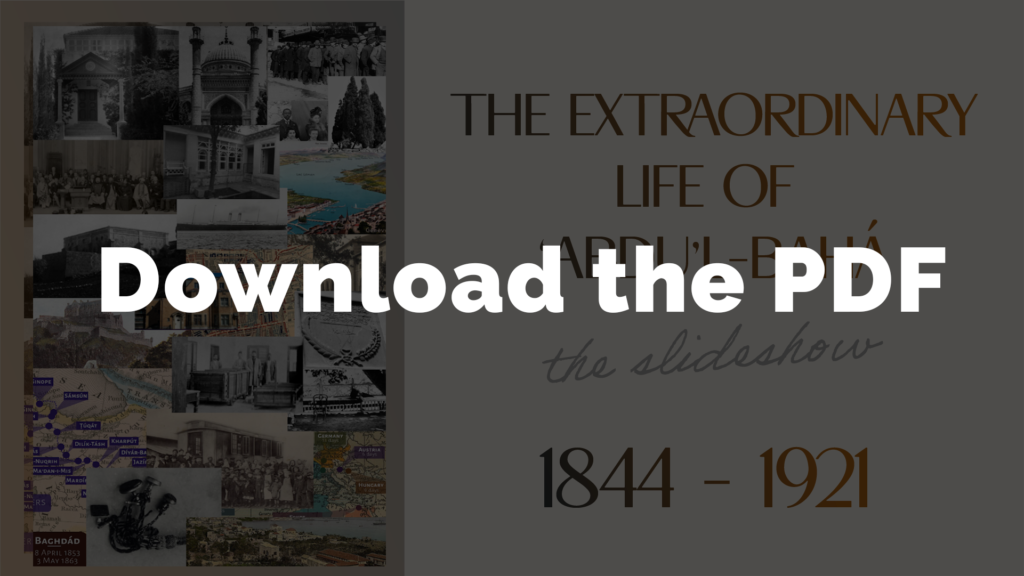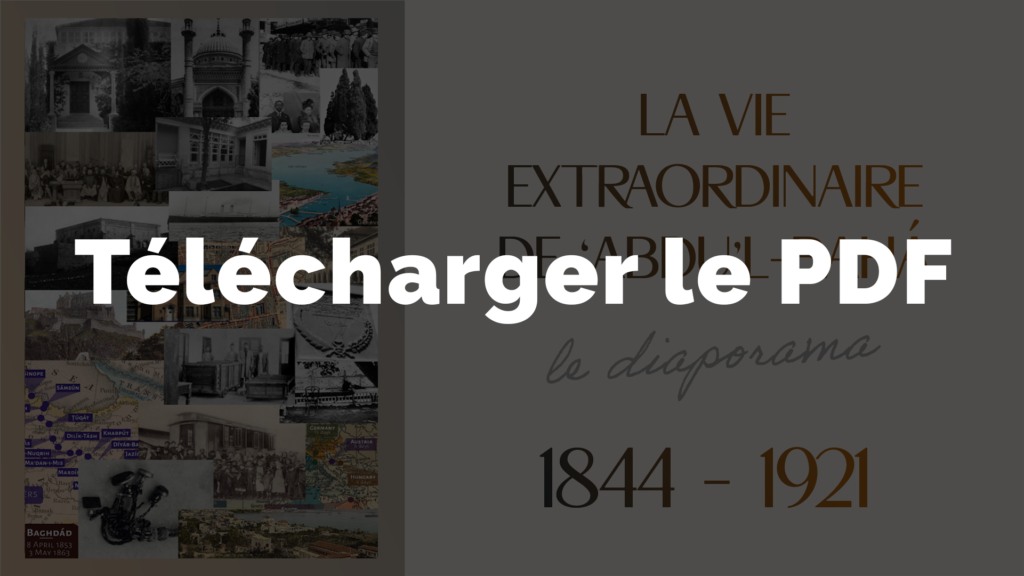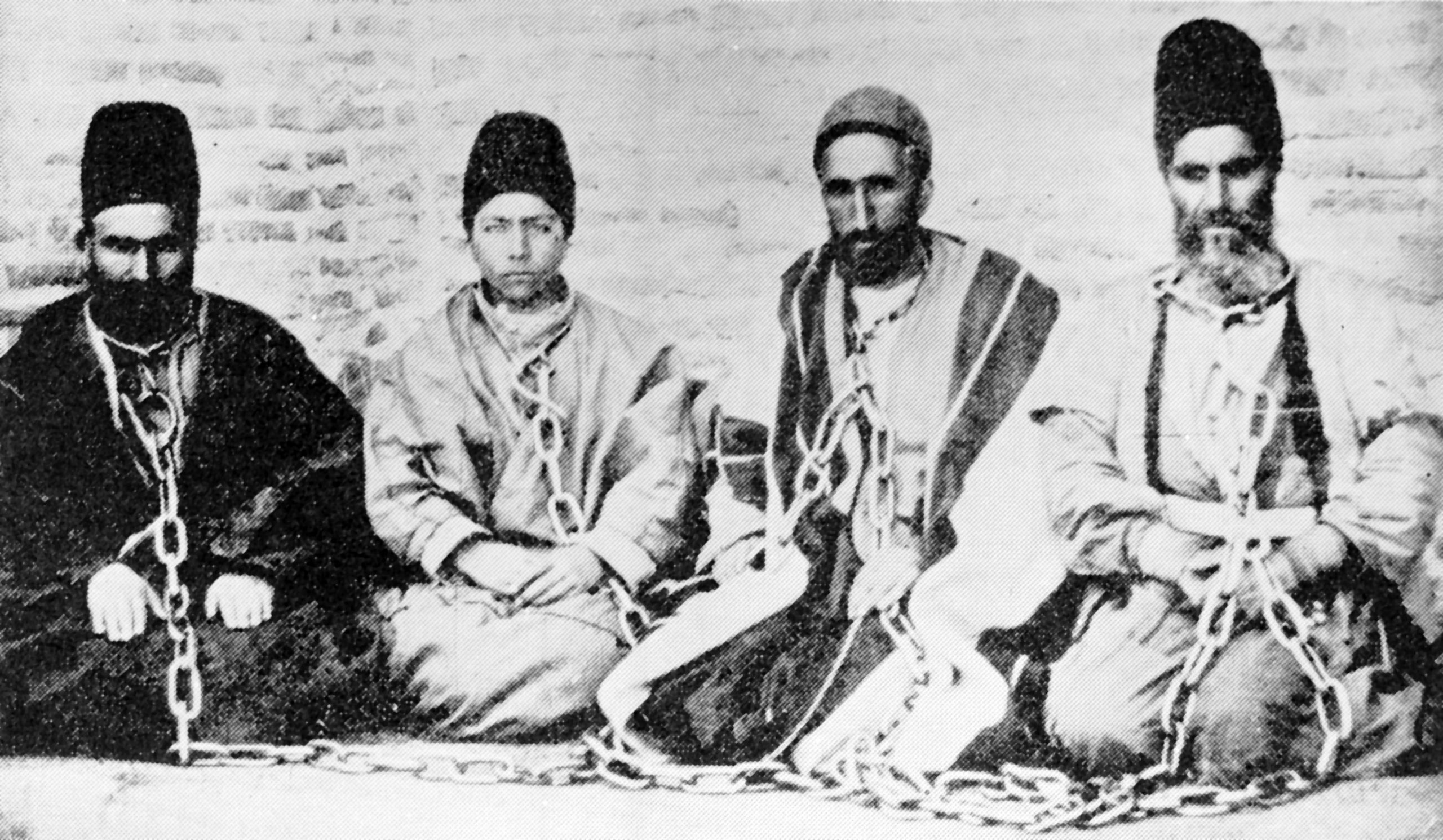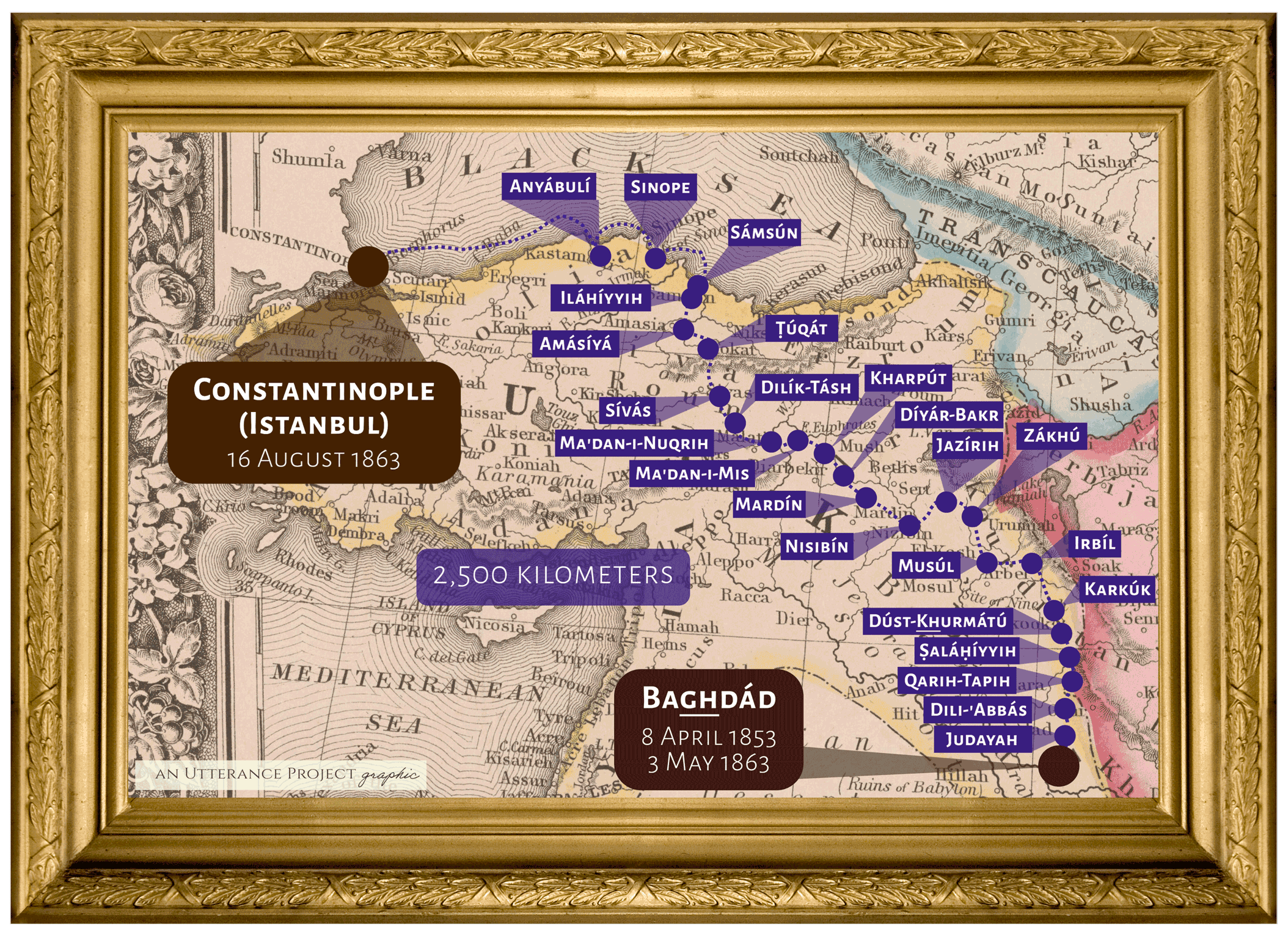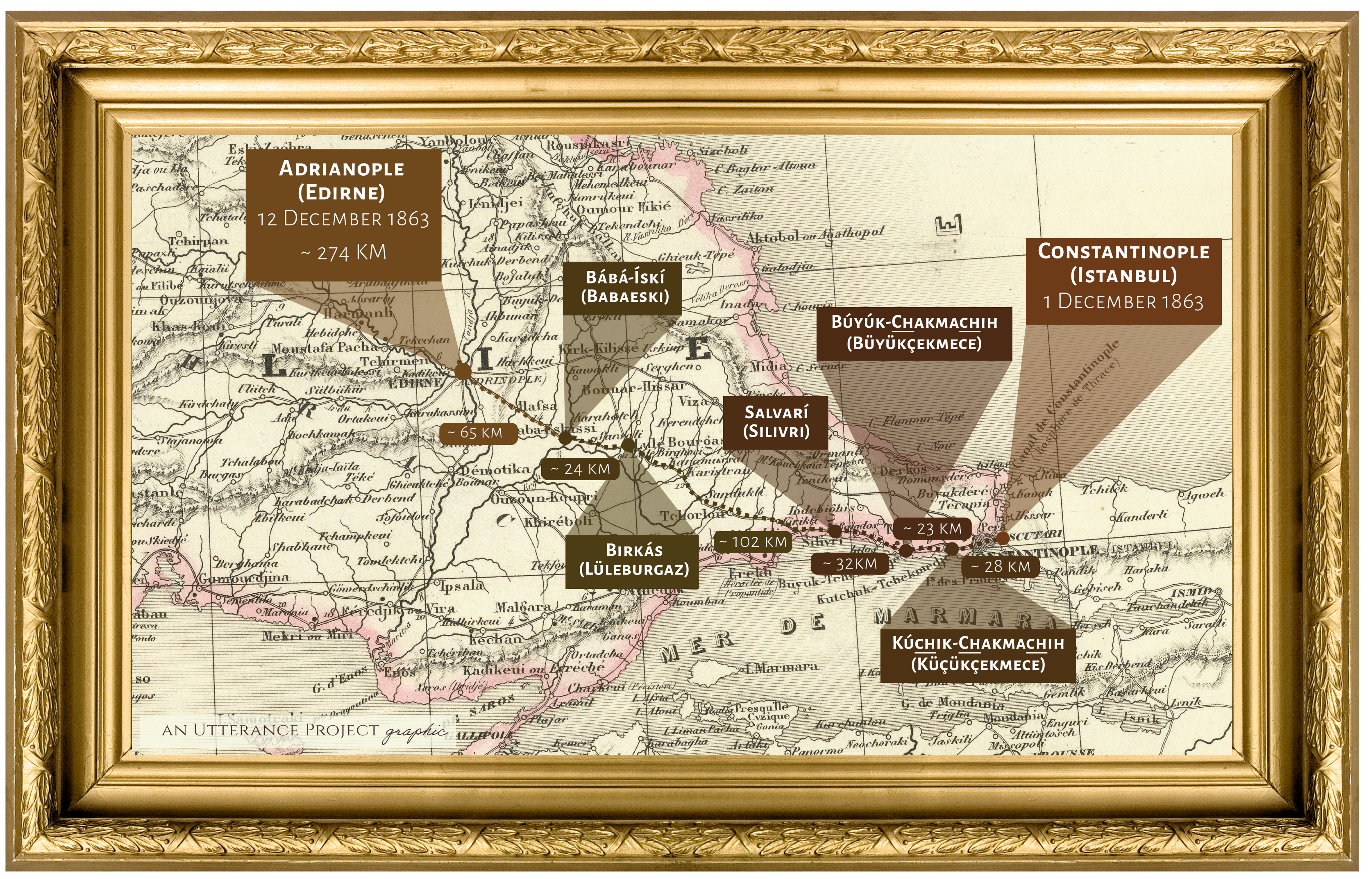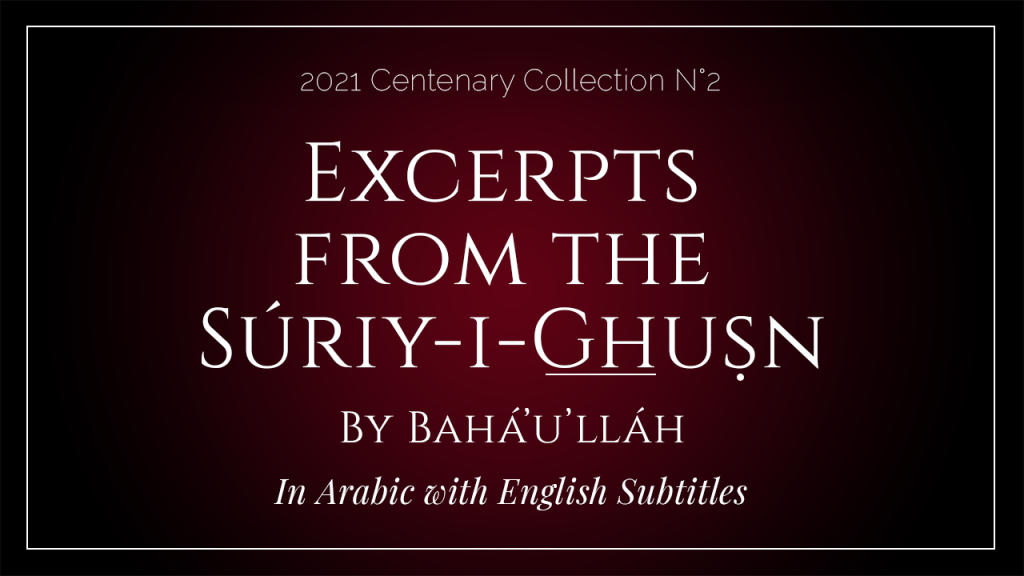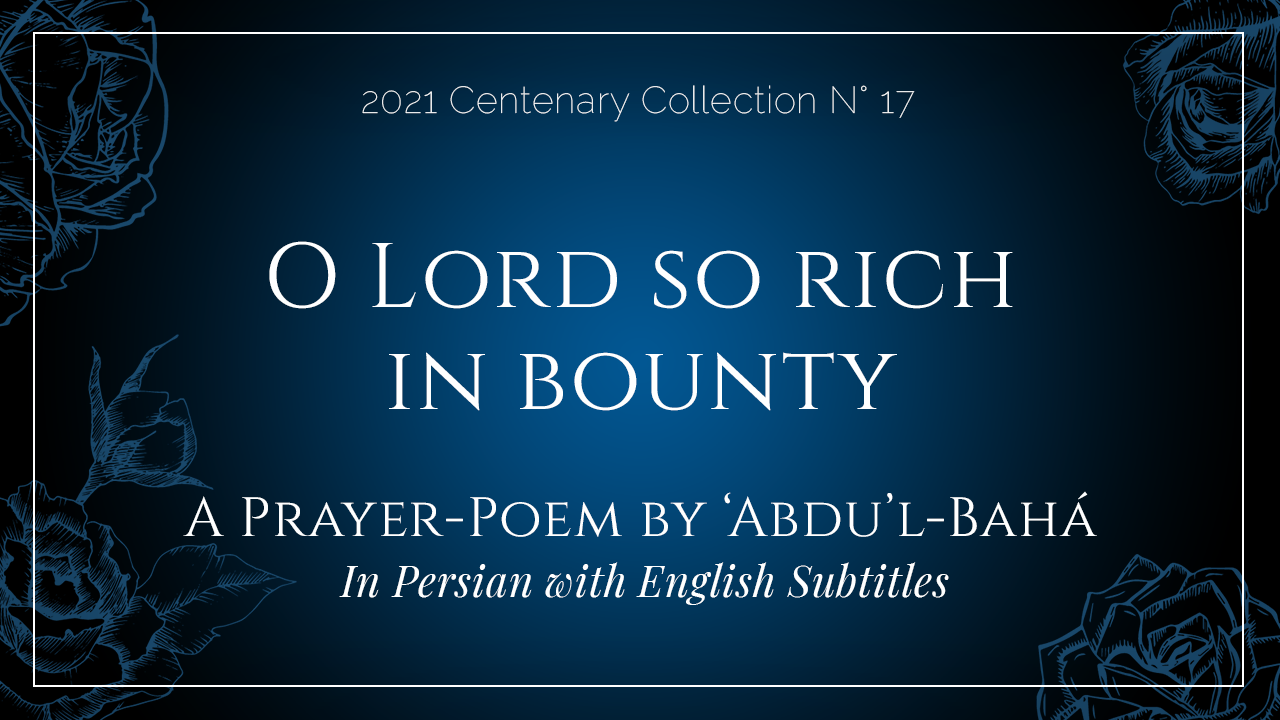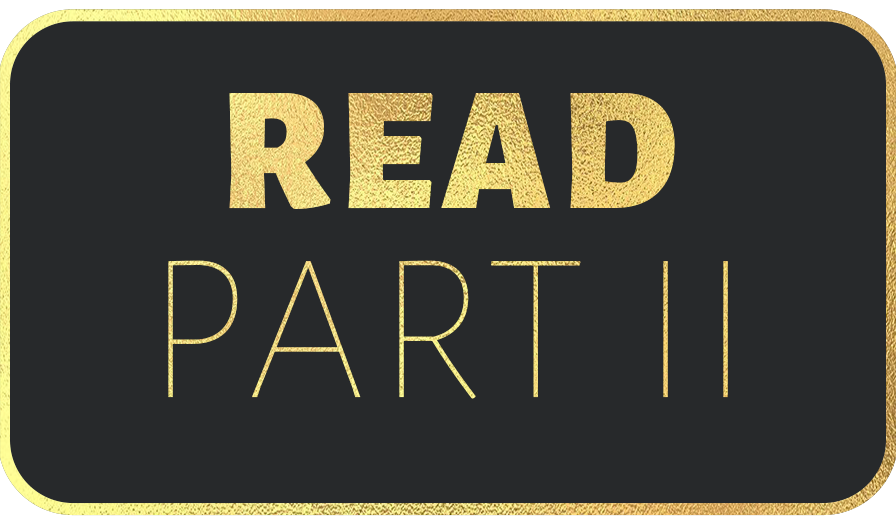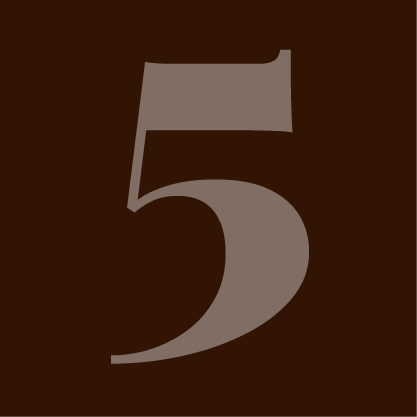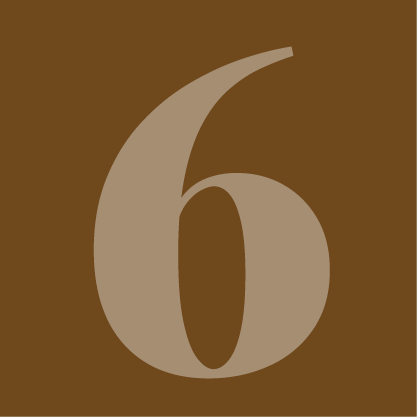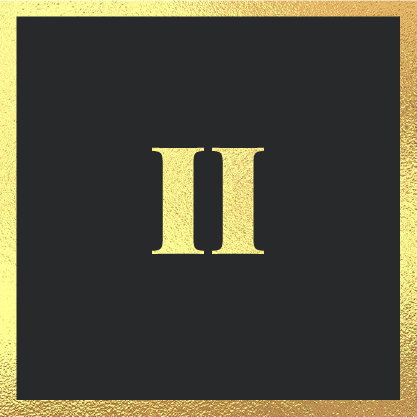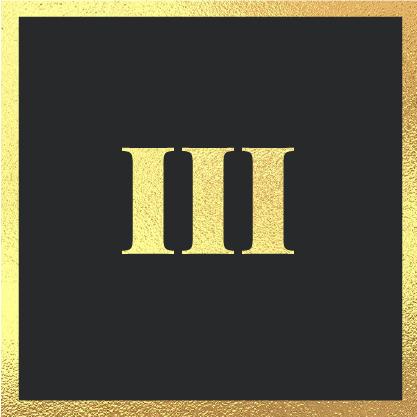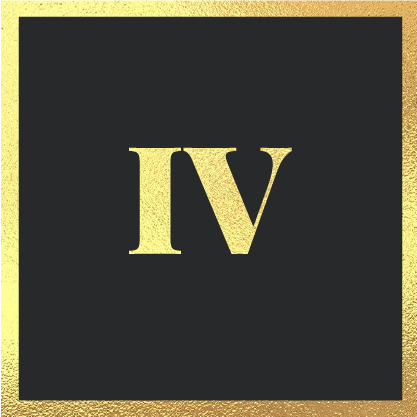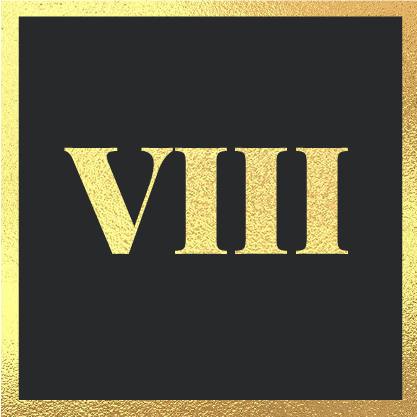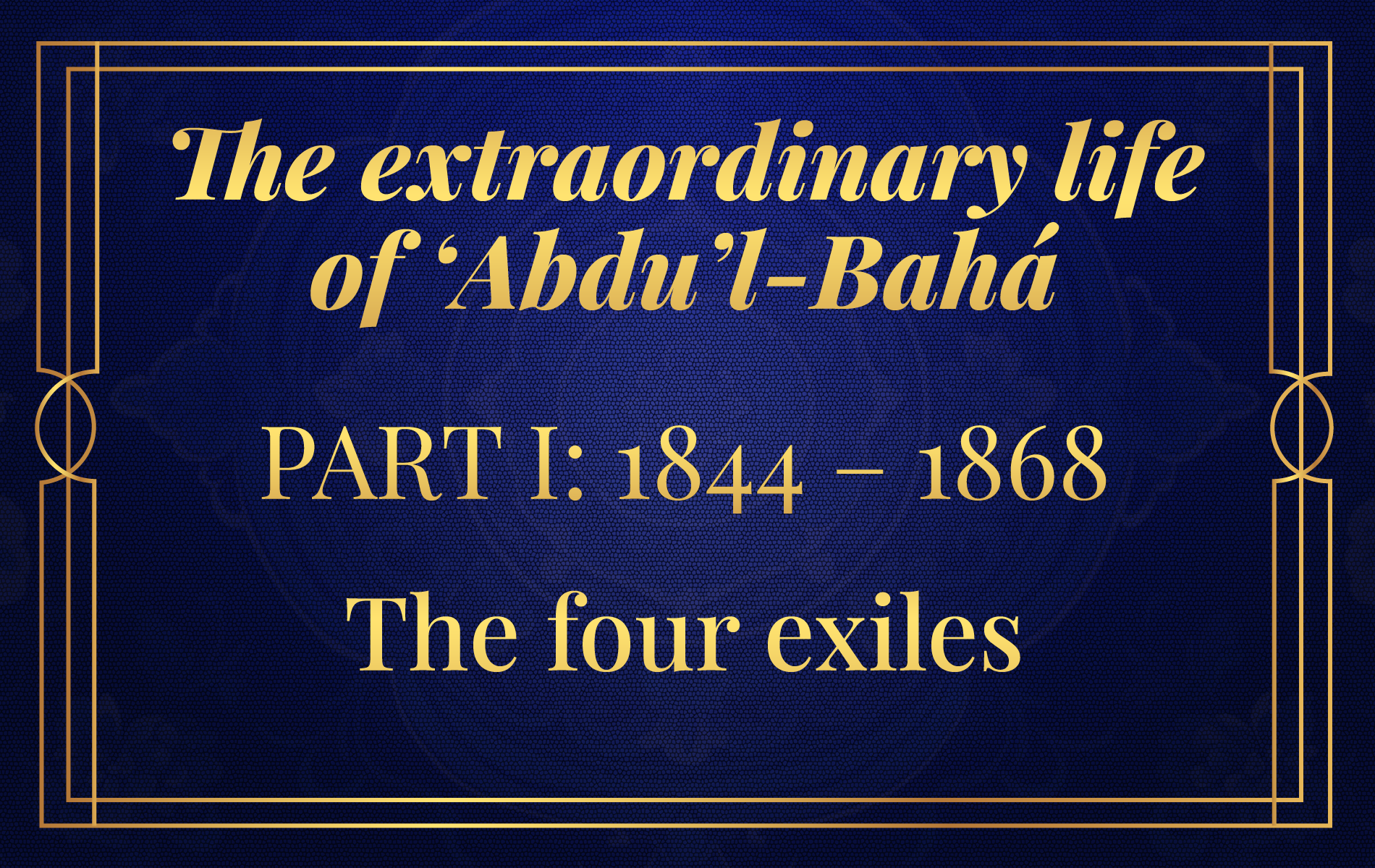
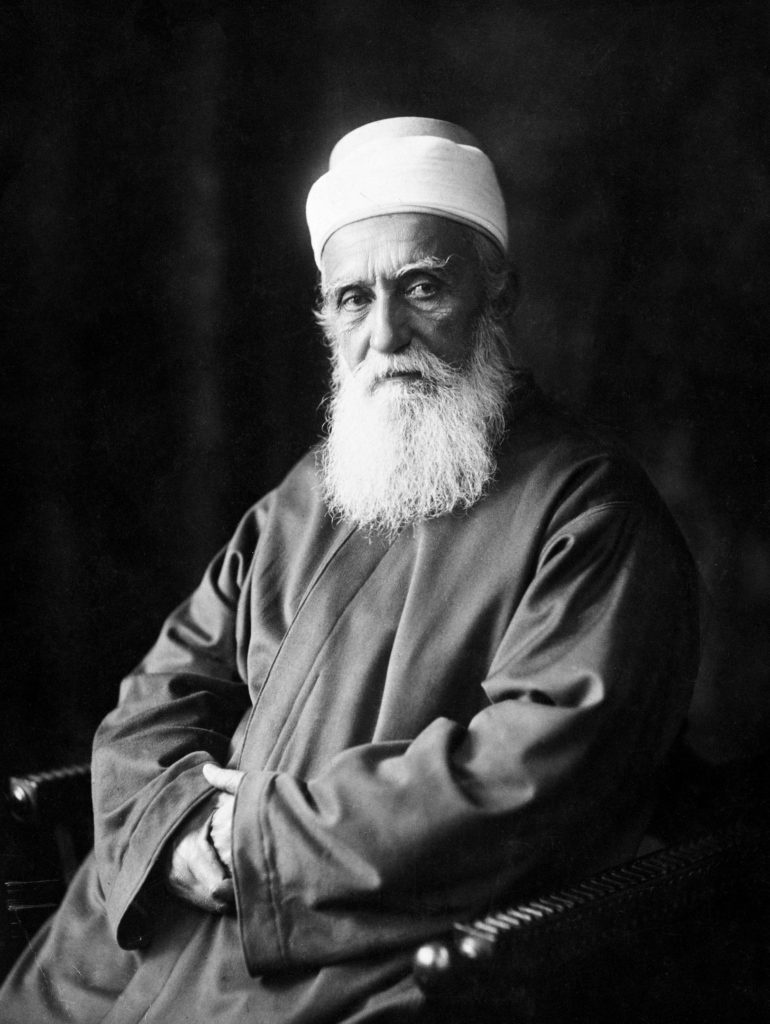
Portrait of ‘Abdu’l-Bahá taken in Paris, France, October 1911. Bahá’i Media Bank.
Download a PDF Slideshow version
of The Extraordinary Life of ‘Abdu’l-Bahá below:
Written and illustrated by Violetta Zein
“There hath branched from the Sadratu’l-Muntahá this sacred and glorious Being, this Branch of Holiness; well is it with him that hath sought His shelter and abideth beneath His shadow. Verily the Limb of the Law of God hath sprung forth from this Root which God hath firmly implanted in the Ground of His Will, and Whose Branch hath been so uplifted as to encompass the whole of creation. Magnified be He, therefore, for this sublime, this blessed, this mighty, this exalted Handiwork! Draw nigh unto Him, O people, and taste the fruits of wisdom and knowledge that have proceeded from Him Who is the Almighty, the All-Knowing.”
Bahá’u’lláh, Súriy-i-Ghuṣn, (Tablet of the Branch)
“My Name is ʻAbdu’l-Bahá, my identity is ʻAbdu’l-Bahá, my qualification is ʻAbdu’l-Bahá, my reality is ʻAbdu’l-Bahá, my praise is ʻAbdu’l-Bahá. Thraldom to the Blessed Perfection is my glorious and refulgent diadem; and servitude to all the human race is my perpetual religion. Through the bounty and favor of the Blessed Perfection, ʻAbdu’l-Bahá is the Ensign of the Most-Great-Peace, which is waving from the Supreme Apex; and through the gift of the Greatest name, he is the Lamp of Universal Salvation, which is shining with the light of the love of God. The Herald of the Kingdom is he, so that he may awaken the people of the East and of the West. The Voice of Friendship, Uprightness, Truth and Reconciliation is he, so as to cause acceleration throughout all regions. No name, no title, no mention, no commendation hath he nor will ever have except ʻAbdu’l-Bahá. This is my longing. This is my supreme apex. This is my greatest yearning. This is my eternal life. This is my everlasting glory!”
‘Abdu’l-Bahá, quoted by Shoghi Effendi in The Dispensation of Bahá’u’lláh
This chronology is optimized for tablets and computers.
To read the chronology, start from the top and read down.
To navigate the chronology, move between parts with the vertical Roman numbers menu to the left of the screen, and move between sections with the numbered vertical menu to the right of the screen.
DISCLAIMER: ONLY ‘ABDU’L-BAHÁ’S WORDS QUOTED FROM HIS HOLY WRITINGS CAN BE CONSIDERED HIS OWN; ALL OTHER REPORTED UTTERANCES OF ‘ABDU’L-BAHÁ SHOULD BE VIEWED AS PILGRIM NOTES.
This part covers the life of ‘Abdu’l-Bahá from His birth in 1844 to the age of 24 in 1868.
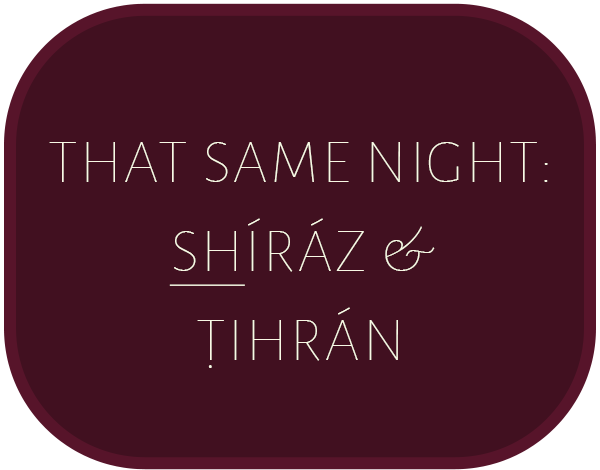
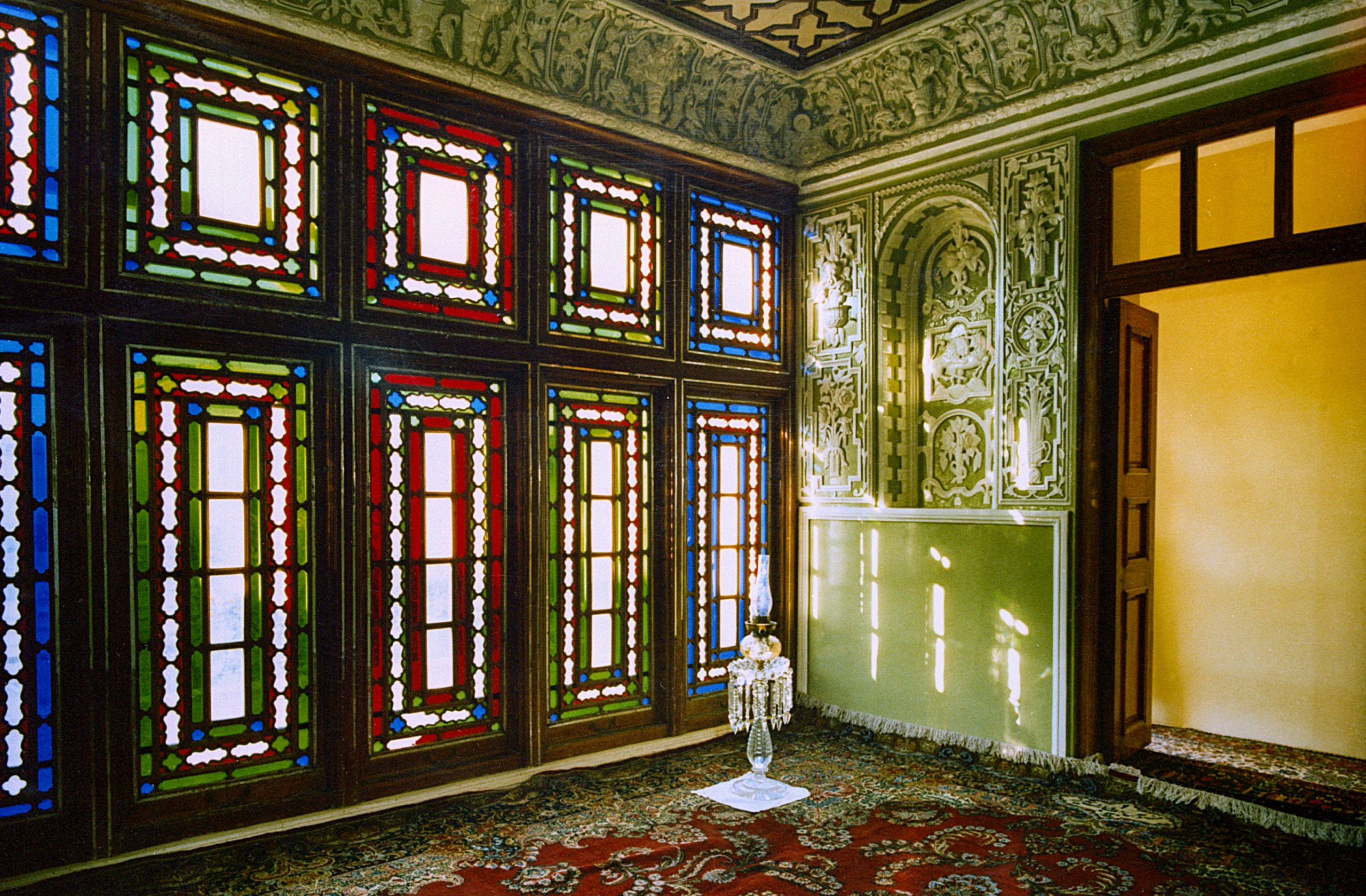
The room in the House of the Báb where the Báb declared His Mission in Shíráz, Iran, before its destruction in 1979. Bahá'í Media Bank.
Two hours after sunset, in Shíráz, a young merchant named Siyyid ‘Alí-Muḥammad announces to Mullá Ḥusayn that He is the bearer of a Message destined to transform the life of humanity. He is the Báb, and this is the night of His declaration.
O thou who art the first to believe in Me! Verily I say, I am the Báb, the Gate of God...
The Dawn Breakers
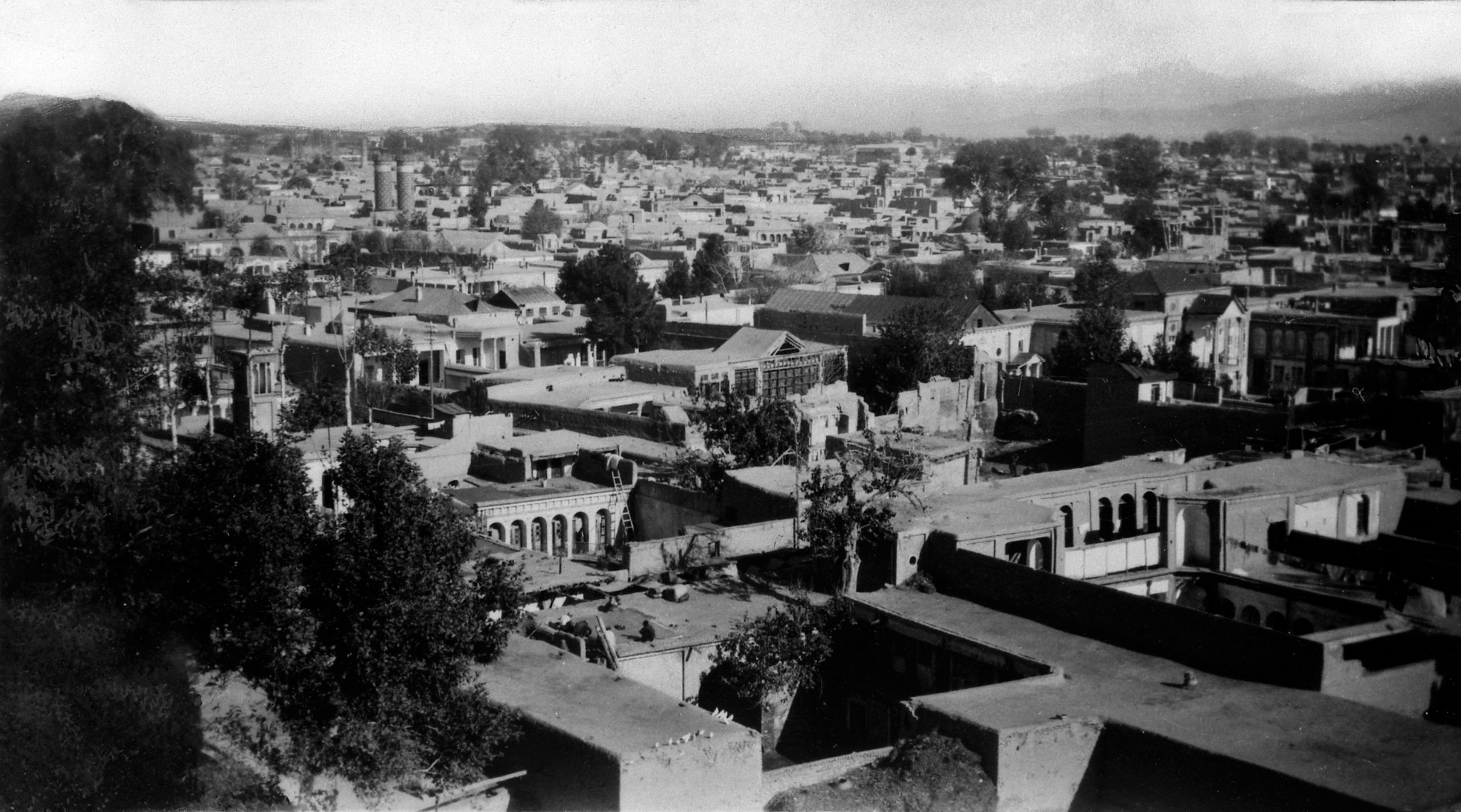
Ṭihrán, Persia, where 'Abdu'l-Bahá was born, seen here in the 1930s. Bahá'í Media Bank.
About six hours later on that same evening, at midnight, almost a thousand kilometers away in Ṭihrán, Mírzá Ḥusayn-‘Alí (later known as Bahá’u’lláh, “the Glory of God”) and His wife, Ásíyih Khánum, welcome their third child, and first boy, whom they name ‘Abbás after His grandfather. ‘Abdu’l-Bahá “The Servant of Bahá’u’lláh” and Perfect Exemplar of the teachings of the Faith is born on the same night as the Bábí-soon-to-be-Bahá’í Faith is Revealed. Bahá’u’lláh will bestow many titles on ‘Abdu’l-Bahá relating to His unique station, among which The Master, (sarkár áqá), The Most Great Branch (ghuṣn-i-aʻẓam), The Center of the Covenant (markaz-i-mítháq) and The Mystery of God (sirru’lláh).
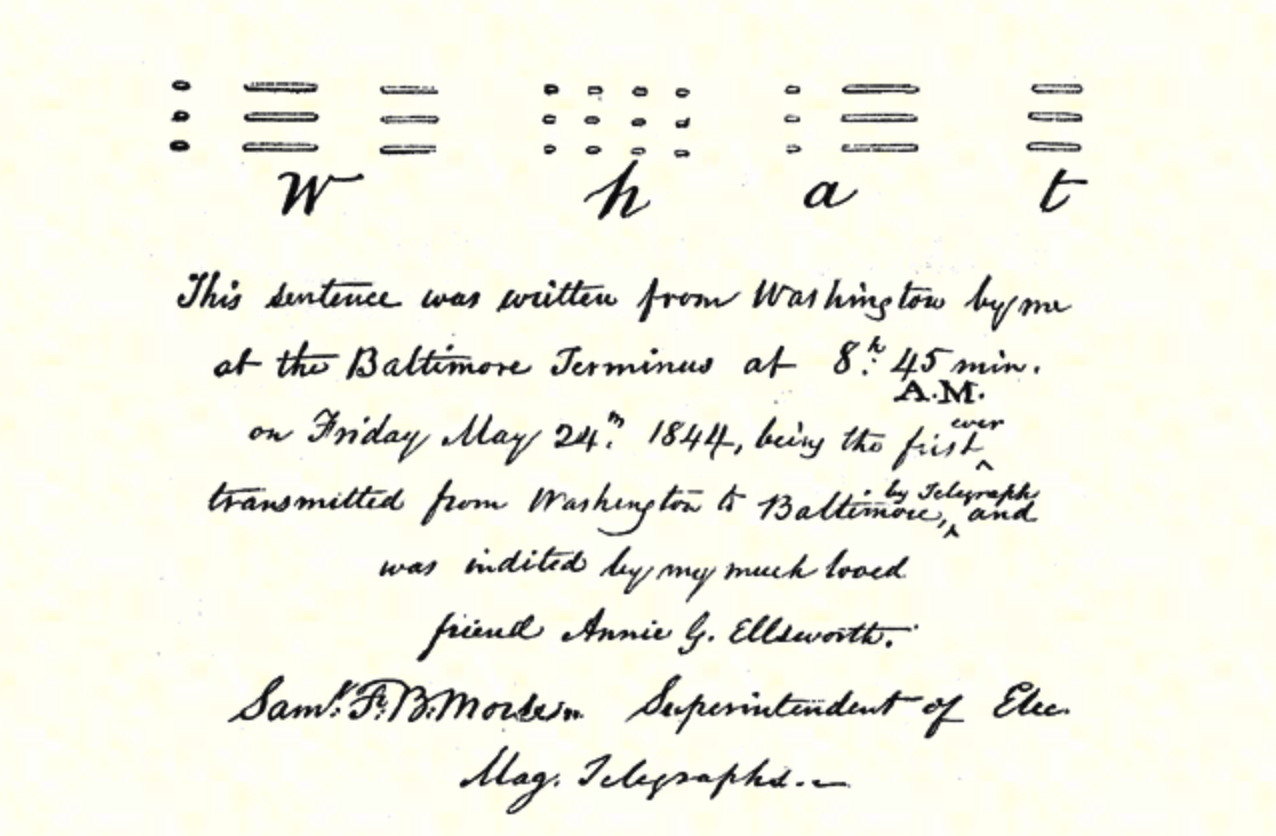
This is a copy of part of the first telegraphic message sent by Samuel Morse on May 24, 1844, with the Morse code above the first word. The complete message is in the second image below. Image from "The First Telegraph Message and Its Author" from The Electrical Engineer, August 19, 1891.
Almost exactly 24 hours later and 10,000 kilometers away after these two momentous events in mankind’s spiritual history, human history is about to experience a turning point. Samuel Morse is in Washington D.C. and sends the first telegraphic message to Baltimore, nearly 70 kilometers away. The content of the message sent is
What hath God wrought?
Two women inspired this iconic verse to Samuel Morse, and the story is very well told in this 1891 article called “The First Telegraph Message and Its Author” (italics theirs):
Miss Ellsworth now gave Morse the message suggested to her by her mother, "What hath God wrought," and that wonderfully apt sentence—a genuine inspiration—was sent in triplicate to Baltimore. It was the first message ever transmitted by a recording telegraph.
The First Telegraph Message and Its Author, The Electrical Engineer August 19, 1891

The inscription that can be read if one zooms is: This sentence was written from Washington by me at the Baltimore Terminus at 8 h 45 min A.M. on Friday, May 24th, 1844, being the first *ever transmitted from Washington to Baltimore *by Telegraph and was indited by my much loved friend Annie G. Ellsworth. Sam F.B. Morse. Superintendent of Elec. Mag. Telegraphs.
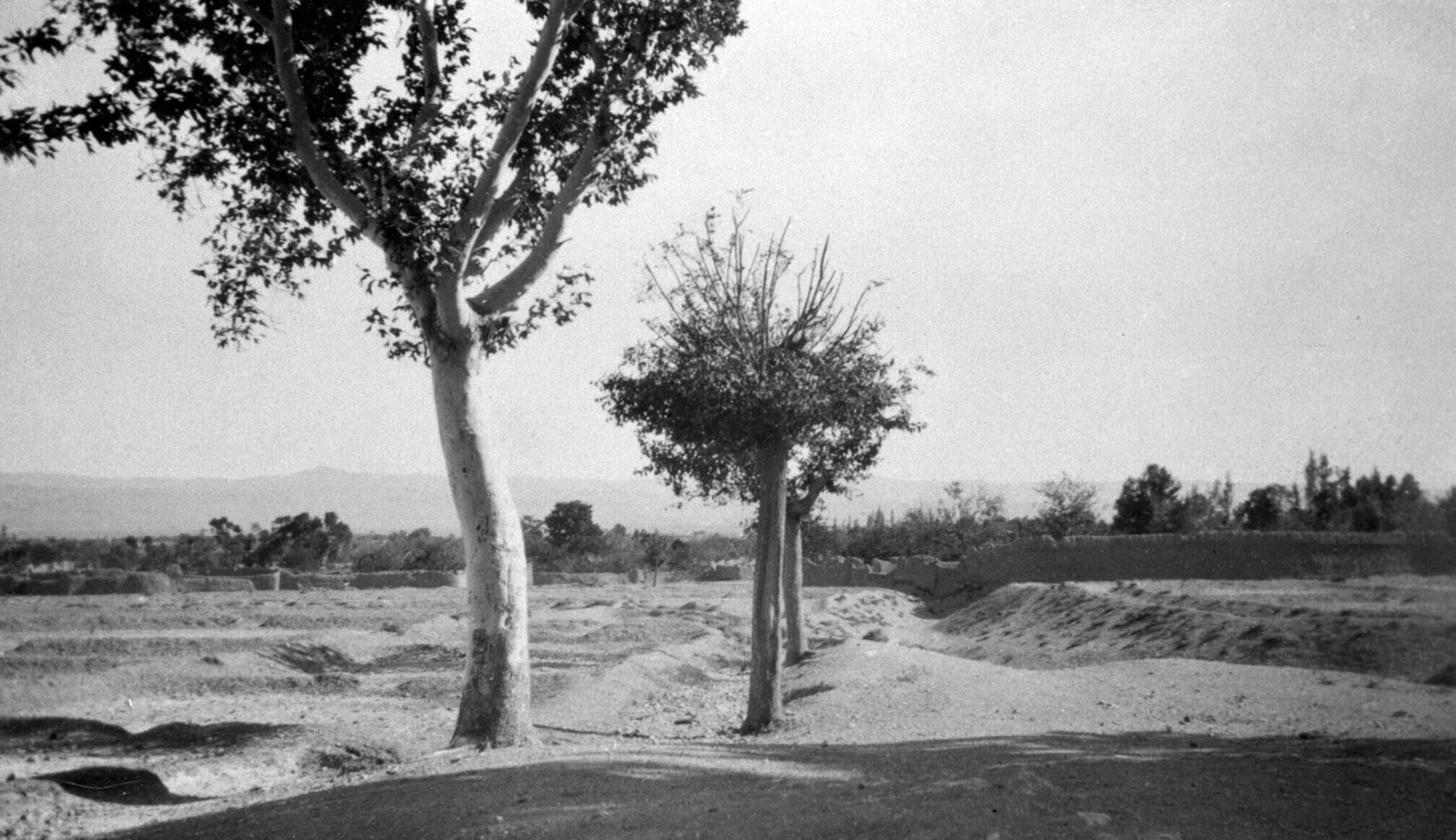
Village of Badasht, where in 1848, Bahá’u’lláh hosted a gathering of the most eminent followers of the Báb, known as Bábís. The meeting established for the growing number of believers the independent character of the Bábí religion, c. 1930. Bahá'í Media Bank.
On a mission entrusted to him by the Báb Himself, Mullá Ḥusayn delivers to Bahá’u’lláh, through an intermediary, a scroll wrapped in a piece of cloth. After He reads one page of the scroll, Bahá’u’lláh turns to Mírzá Músá and says:
Músá, what have you to say? Verily I say, whoso believes in the Qur’án and recognises its Divine origin, and yet hesitates, though it be for a moment, to admit that these soul-stirring words are endowed with the same regenerating power, has most assuredly erred in his judgment and has strayed far from the path of justice.
The Dawn Breakers
Bahá’u’lláh’s acceptance of the claim of the Báb is instantaneous and complete. Between 1844 and 1852, His life is devoted to His new Faith.
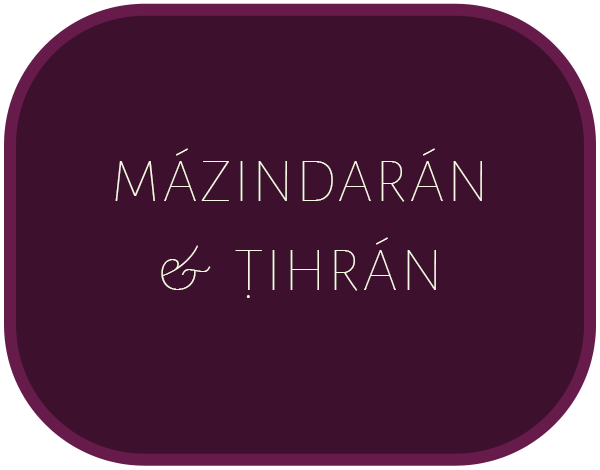

The house of Bahá’u’lláh in Takur, Mázindarán, destroyed by the government in 1981, September 1975. Left: Bahá'í Media Bank. Right: Bahá'í Historical Facts Website.
‘Abdu’l-Bahá spends His first years in an environment of privilege, wealth, and love. The family’s Ṭihrán home and country houses in Mázindarán are comfortable and beautifully decorated. ‘Abdu’l-Bahá and His younger full siblings—a sister, Bahíyyih, and a brother, Mírzá Mihdí—have every advantage their station in life can offer.
‘Abdu’l-Bahá’s childhood is shaped by the fact His father is a prominent Bábí, and He is a witness to great moments in the history of the Faith. As a child in His home in Ṭihrán, He is seated on Ṭáhirih’s lap when, in the course of her memorable interview with the celebrated Vaḥíd, she interrupts his learned discourse on the signs of the new Manifestation and vehemently urges Vaḥíd to arise and demonstrate the depth and sincerity of his faith through deeds of heroism and self-sacrifice.
Though never formally schooled, ‘Abdu’l-Bahá receives most of His education from His family and most particularly His father. He has a happy and carefree early childhood, and is very close to His younger siblings.
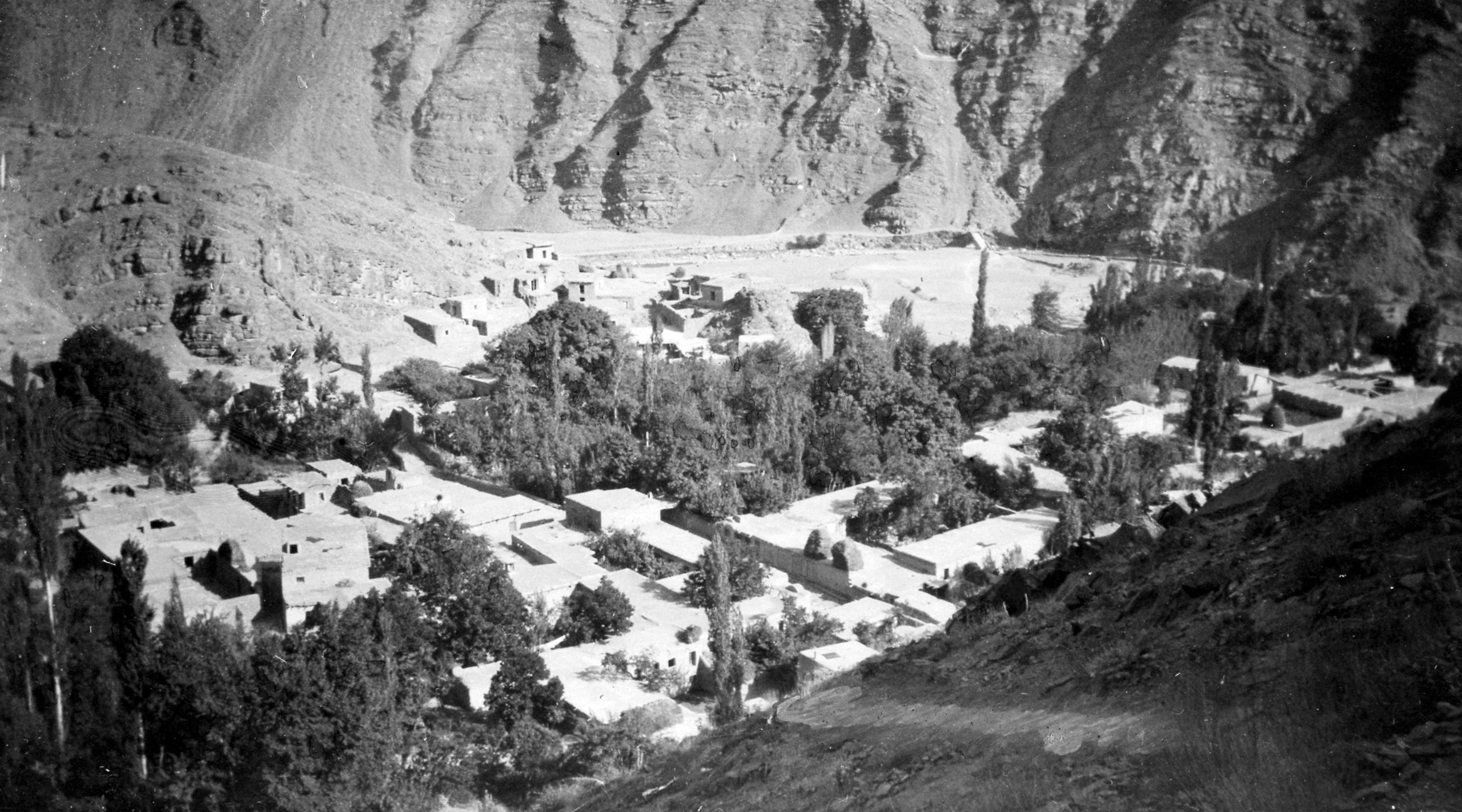
Takur, Mázindarán, in the north of Iran, where the family of Bahá’u’lláh had a house, c. 1930. Bahá'í Media Bank.
In Mázindarán, when ‘Abdu’l-Bahá is a child old enough to ride a horse, Áqá Raḥím, the overseer of Bahá’u’lláh’s shepherds and flock of four thousand sheep and goats, takes Him to a country barbecue. Eighty or so shepherds, dressed in their finest, come to greet the young ‘Abdu’l-Bahá. After the feast, the shepherds approach ‘Abdu’l-Bahá and hint that a gift from Him is customary with the landlords in these parts. Faced with a dilemma, having brought nothing with Him, ‘Abdu’l-Bahá thinks for a few moments, and the idea comes to Him to give each shepherd a few sheep from the family’s own flocks. The overseer is rather pleased with this gift, and it is immediately acted upon. Reaching the family home, ‘Abdu’l-Bahá’s act of generosity is relayed to Bahá’u’lláh—and, as ‘Abdu’l-Bahá recalls in Star of the West, volume XV, “[Bahá’u’lláh] laughed very much over it” and said to Áqá Raḥím:
We must appoint a guardian to protect Aga — master — from his own liberality; else, some day, he may give himself away.
Bahá'u'lláh, quoted by 'Abdu'l-Bahá in His recollections to Mirza Ahmad Sohrab (Star of the West Volume XV)
These prophetic words from the Blessed Beauty will perfectly describe the next seven decades of ‘Abdu’l-Bahá’s life, as He gives His life away, drop by drop, to the world and its peoples.
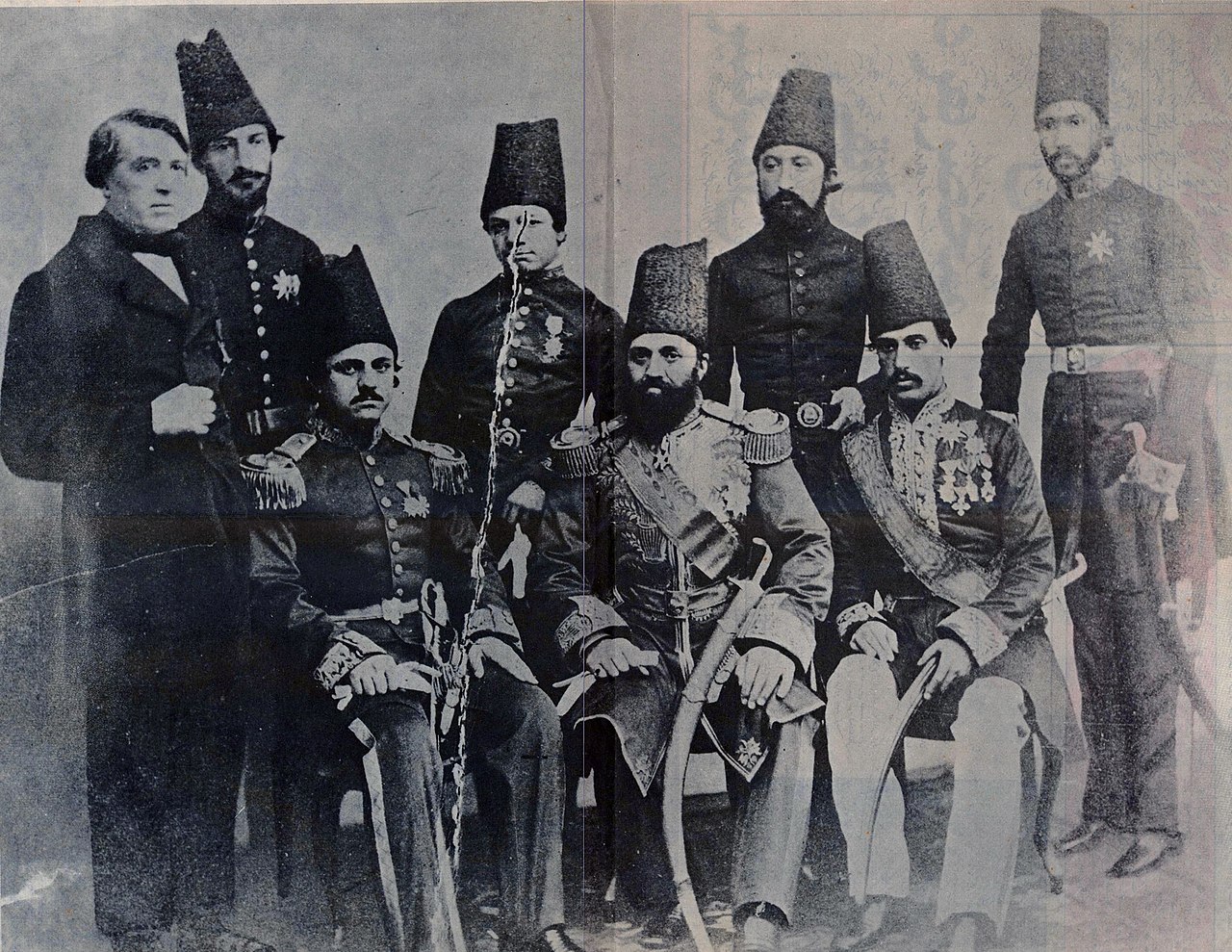
Mírzá Taqí Khán in his military uniform. Wikimedia Commons, Majlis Research Center. Etela’t Newspaper.
While on pilgrimage in Karbilá, where He remains for 10 months between 1851 and 1852, Bahá’u’lláh sends ‘Abdu’l-Bahá, then only a child of seven-and-half years old, on a critical mission to deliver a sensitive message to the Mírzá Taqí Khán, the Amír-Niẓám (general) of the Persian army 50 kilometers from Ṭihrán. Nothing is known about this confidential mission and the urgent circumstances surrounding the event, but it is without doubt that ʻAbdu’l-Vahháb Bey, the servant from Bahá’u’lláh’s Household entrusted to accompany the young ‘Abdu’l-Bahá on this mission, had strict instructions to bring the child home without delay.
One day in early winter, ʻAbdu’l-Vahháb Bey mounts his horse and lifts ‘Abdu’l-Bahá up before him on the saddle. The fifty kilometers separating them from the army are covered at great speed and without stopping once for rest or refreshment. Once at the garrison, ‘Abdu’l-Bahá is immediately brought before Mustawfíyu’l-Mamálik, who shows Him great respect and consideration, then introduces Him to the Amír-Niẓám (General of the army), Mírzá Taqí Khán, who enquires as to the nature of ‘Abdu’l-Bahá’s mission. ‘Abdu’l-Bahá then conveys the message of Bahá’u’lláh. The general listens attentively, weighing the words of ‘Abdu’l-Bahá, then issues orders based on the information that has just been conveyed to him. The Amír-Niẓám invites ‘Abdu’l-Bahá to remain in the camp overnight and return to Ṭihrán in the morning, sufficiently rested and refreshed. It is at this point that ʻAbdu’l-Vahháb Bey whisks ‘Abdu’l-Bahá back to Ṭihrán the same day. ‘Abdu’l-Bahá remembers the events clearly:
ʻAbdu’l-Vahháb Bey, however, hearing of the successful conference with the general and wishing the good news to reach my family as soon as possible resorted to a stratagem to leave the garrison at once. Knowing my love for nature and the country he came to me and said: “Little Master, I know a lovely village not very far away, why should you remain in this smokey camp! Let us go to this hamlet. It has many lovely gardens, fruit trees and flowers, and the climate is exhilarating in the extreme.”
Quoted by 'Abdu'l-Bahá in Mirza Ahmad Sohrab's unpublished diary from 1913
The young child, in front of such enthusiasm for what sounds like an extraordinary place, yields to ʻAbdu’l-Vahháb, who scoops ‘Abdu’l-Bahá up again in front of the saddle, then proceeds to lash the horse mercilessly towards Ṭihrán. ‘Abdu’l-Bahá asks ʻAbdu’l-Vahháb once in a while about the hamlet with no answer. After hours of racing, ‘Abdu’l-Bahá sees the familiar skyline of Ṭihrán, but is too tired to protest about having missed the heavenly village. Upon arrival, ‘Abdu’l-Bahá is carried into the house, asleep and numbed by the cold. He is laid to rest near the fireplace until the circulation in His limbs is restored. The mission took a grave toll on ‘Abdu’l-Bahá’s health as He Himself testifies:
That night and the following day I couId eat nothing, and for more than two weeks I was like a child whose sensitive organs and bones had been crushed to pieces.
'Abdu'l-Bahá, quoted by Mirza Ahmad Sohrab's unpublished diary from 1913
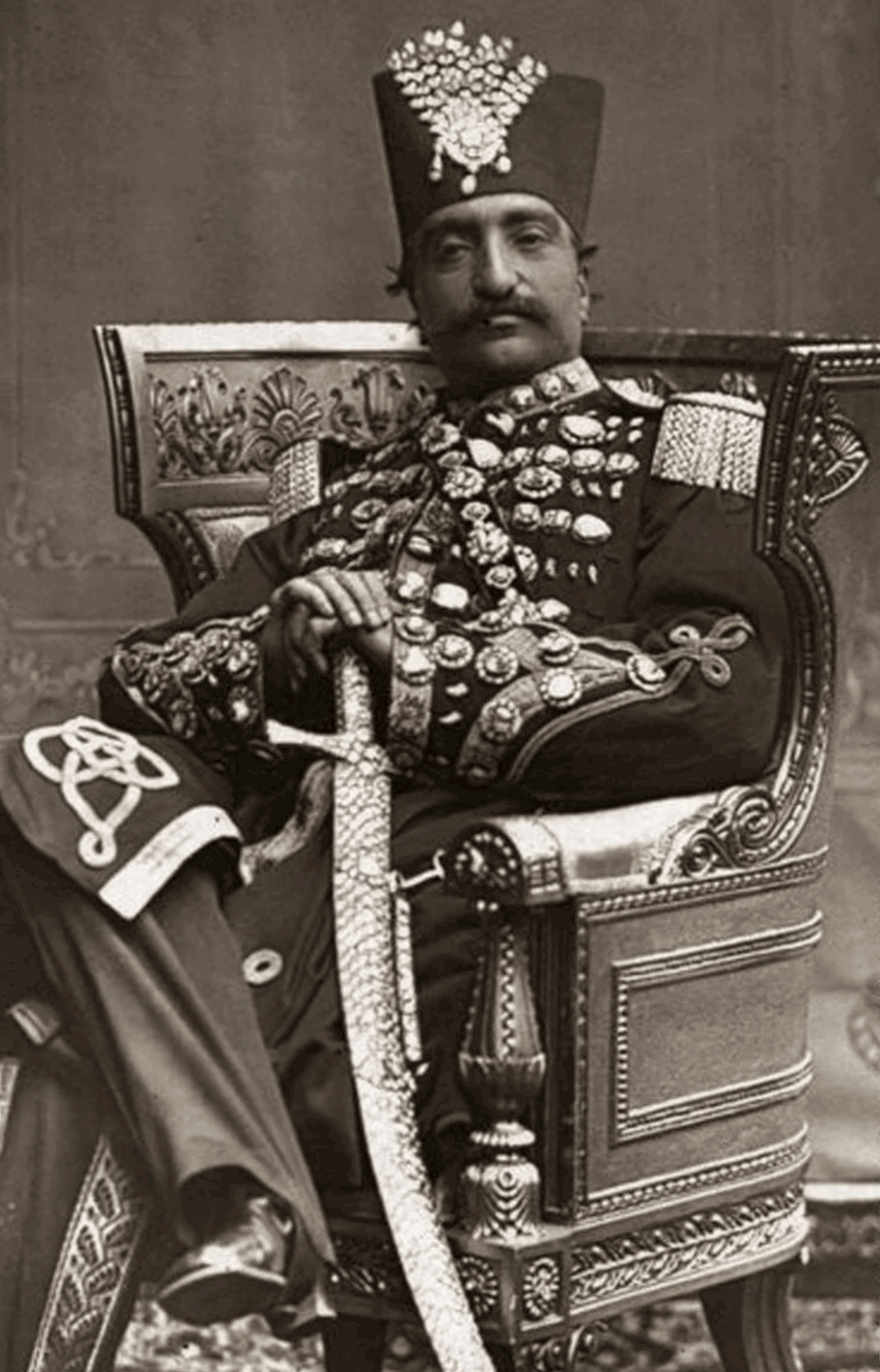
Náṣiri’d-Dín Sháh, who will banish Bahá'u'lláh. Bahá'u'lláh will later address Tablets to him. Source: Alchetron.
On August 15, 1852, three young Bábís, distraught by the execution of the Báb two years earlier, make an ill-conceived and failed attempt on the life of the Sháh. Reprisals start quickly against the Bábís.
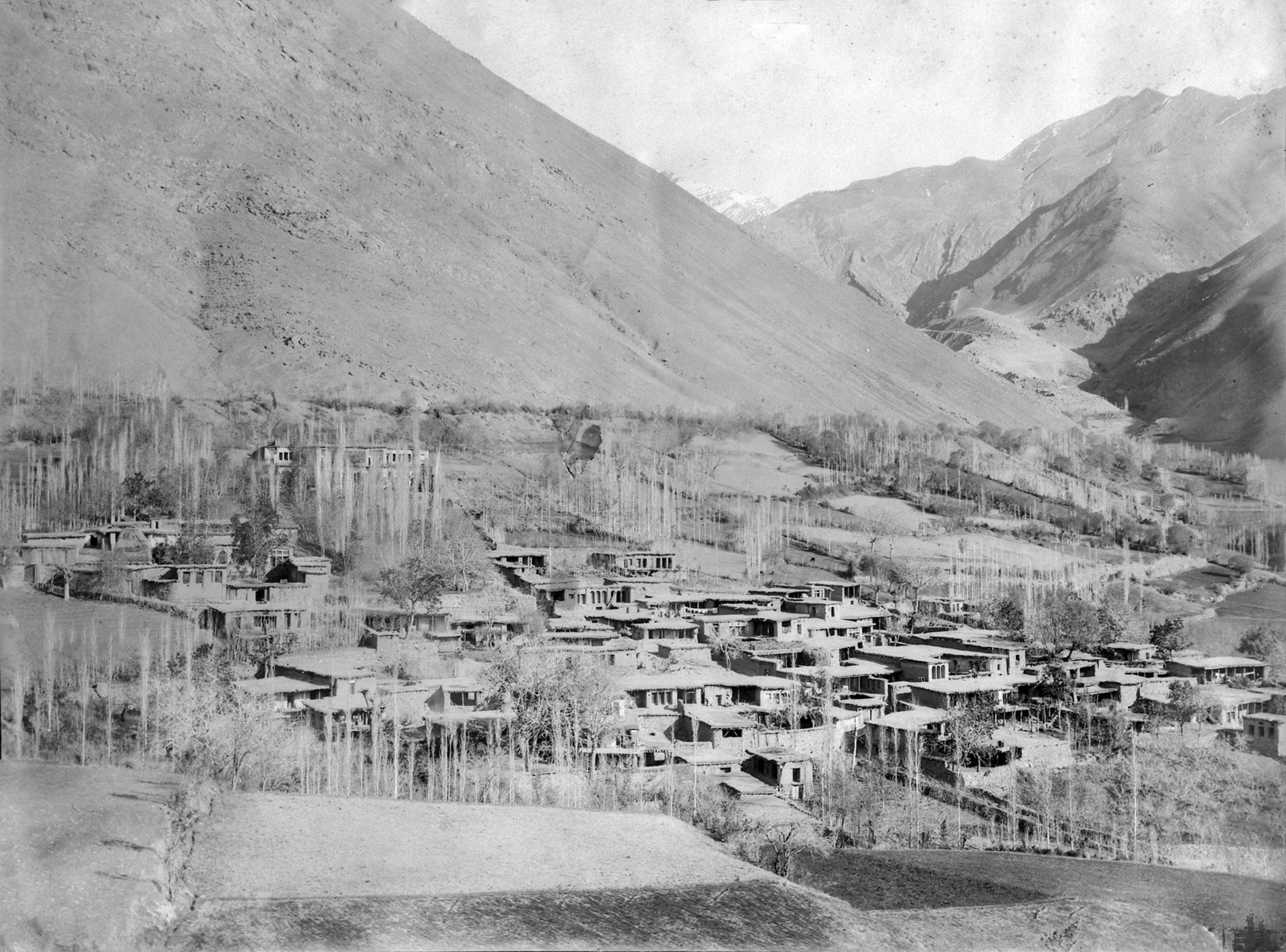
The village of Afchih, near Tehran, 1914. Bahá'í Media Bank.
Bahá'u'lláh is in Afchih, when when the attempted assassination takes place. The event causes an uproar throughout Ṭihrán, where Navváb is alone with ‘Abdu’l-Bahá, aged 8, Bahíyyih Khánum, aged 6 and Mírzá Mihdí, still a baby. All Bábís are hunted down and arrested, and a mob sacks Bahá'u'lláh’s home, stripping it of its furnishings. Navváb initially seeks shelter with an aunt, married to a government official but seeing their alarm at her presence, and not wanting to put them in danger, she returns home.
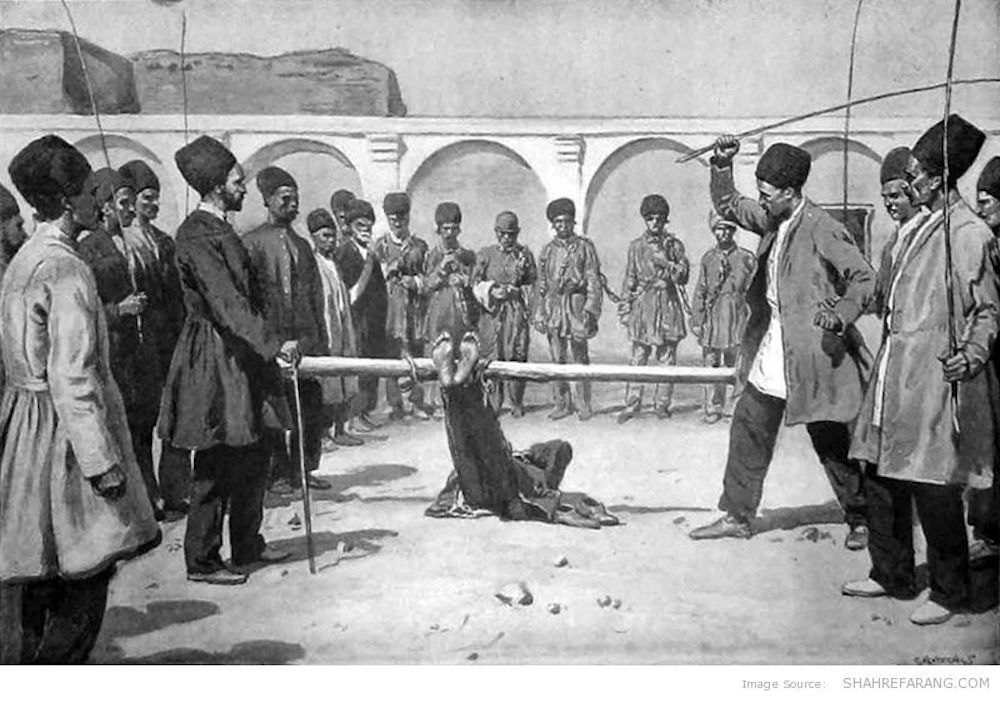
This is the most common form of torture practised in Persian/Iran until the 1920s. It is called the bastinado, performed here in Persia in the 1890s. Shahre Farang Website.
Navváb hears what has happened to Bahá'u'lláh from a distressed servant who was present with Him:
The Master, the Master, He is arrested - I have seen Him! He has walked many miles! Oh, they have beaten Him! They say He has suffered the torture of the bastinado! His feet are bleeding! He has no shoes on! His turban has gone! His clothes are torn! There are chains upon His neck!
The Greatest Holy Leaf, quoted by Lady Blomfield in The Chosen Highway
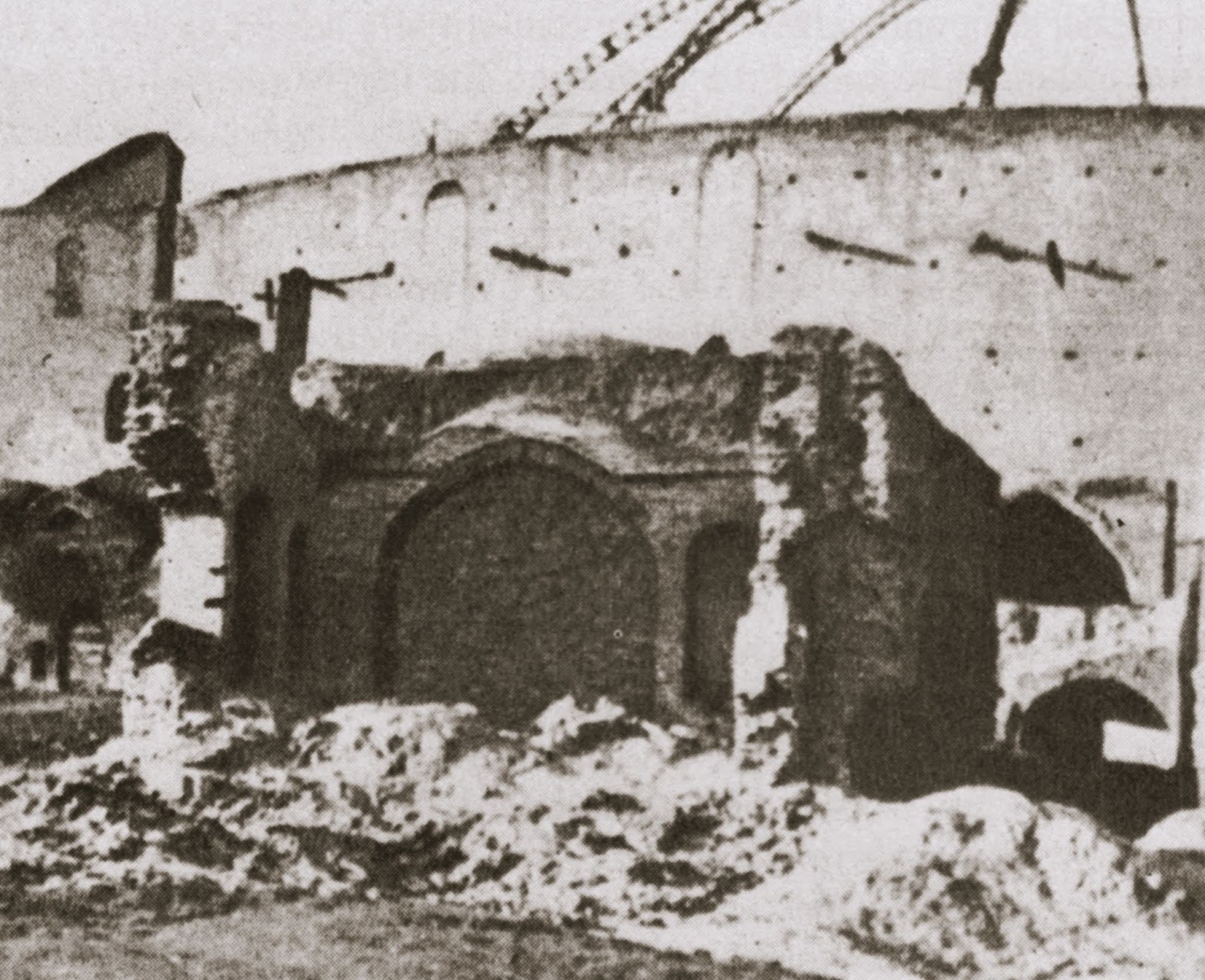
Entrance to the Siyáh-Chál. Bahá'í Historical Facts.
'Abdu'l-Bahá tells the story:
One day I happened to be walking alone through the market on My way to My uncle’s house. As I was looking behind Me, I found a band of little ruffians running fast to overtake Me. They were pelting Me with stones and shouting menacingly, ‘Bábí! Bábí!’ To intimidate them seemed to be the only way I could avert the danger with which I was threatened. I turned back and rushed towards them with such determination that they fled away in distress and vanished. I could hear their distant cry, ‘The little Bábí is fast pursuing us! He will surely overtake and slay us all!’ As I was directing My steps towards home, I heard a man shouting at the top of his voice: ‘Well done, you brave and fearless child! No one of your age would ever have been able, unaided, to withstand their attack.’ From that day onward, I was never again molested by any of the boys of the streets, nor did I hear any offensive word fall from their lips.’
The Dawn-Breakers, p. 616.
Mírzá Músá, helps Navváb and the children escape into hiding. The garments of the Holy Family’s clothes’ buttons are of gold, and Navváb manages to sell these in order to pay the prison guards and allow her to bring Bahá'u'lláh some food, as well as defray other expenses. The family now lives in a small house, not far from the Síyah-Chál for the next four months.
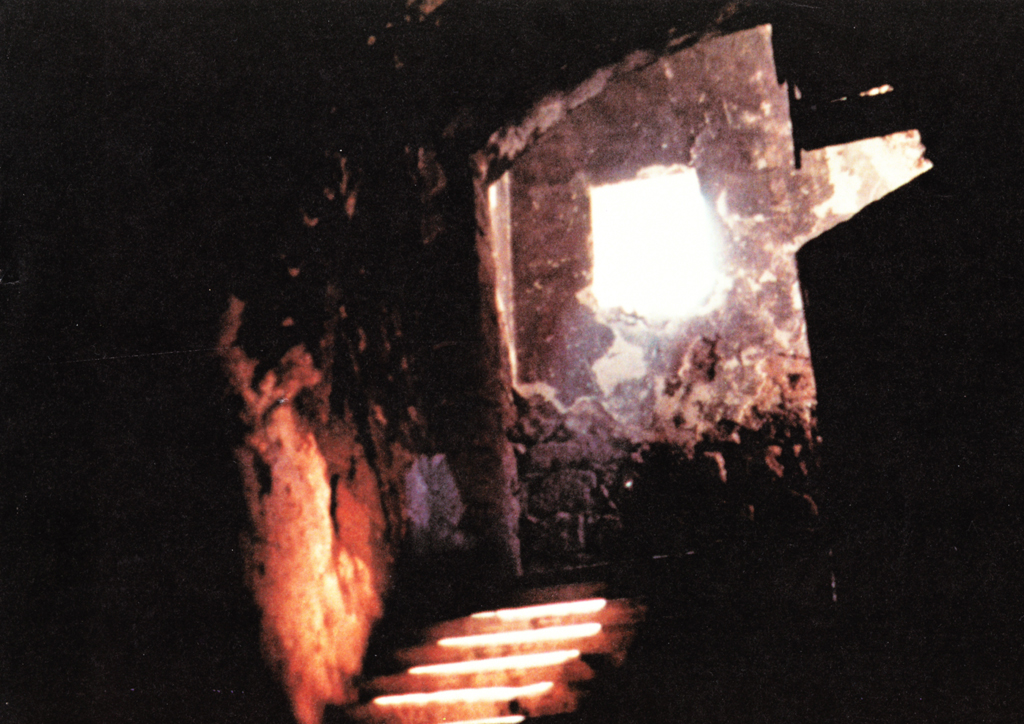
The entrance to the Siyáh-Chál. Bahá'í Historical Facts Website.
Insistent on seeing His father, the eight-year-old ‘Abdu’l-Bahá goes to the Siyáh-Chál. He is carried on the shoulders of a servant along a narrow corridor, through a small doorway and down two steps. He describes the abominable, inhumane dungeon reserved for Persia’s most hardened criminals.
'Abdu'l-Bahá describes the abominable, inhumane dungeon reserved for Persia’s most hardened criminals:
I saw a dark, steep place. We entered a small, narrow doorway, and went down two steps, but beyond those one could see nothing. In the middle of the stairway, all of a sudden we heard His [Bahá’u’lláh’s]…voice: ‘Do not bring him in here’, and so they took me back. We sat outside, waiting for the prisoners to be led out. Suddenly they brought the Blessed Perfection [Bahá’u’lláh] out of the dungeon. He was chained to several others. What a chain! It was very heavy. The prisoners could only move it along with great difficulty. Sad and heart-rending it was.
H.m. Balyuzi, 'Abdu'l-Bahá: The Centre of the Covenant of Bahá'u'lláh, page 12
Mírzá ʻAlí-Muḥammad Varqá (in black on the left) and Rúhu'lláh Varqá, his son (next to him), in heavy chains and fetters after being arrested with fellow Bahá’ís, in a photograph taken around 1896. Both were subsequently executed. Bahá'u'lláh's chains were similar, but much larger and heavier, from the replica available at the Bahá'í World Center exhibit. Bahá'í Media Bank.
'Abdu'l-Bahá further describes the conditions in which Bahá'u'lláh was kept in vivid detail:
“A heavy chain,” ‘Abdu’l‑Bahá Himself has testified, “was placed about His neck by which He was chained to five other Bábís; these fetters were locked together by strong, very heavy, bolts and screws. His clothes were torn to pieces, also His headdress. In this terrible condition He was kept for four months.”
Quoted by Shoghi Effendi in God Passes By
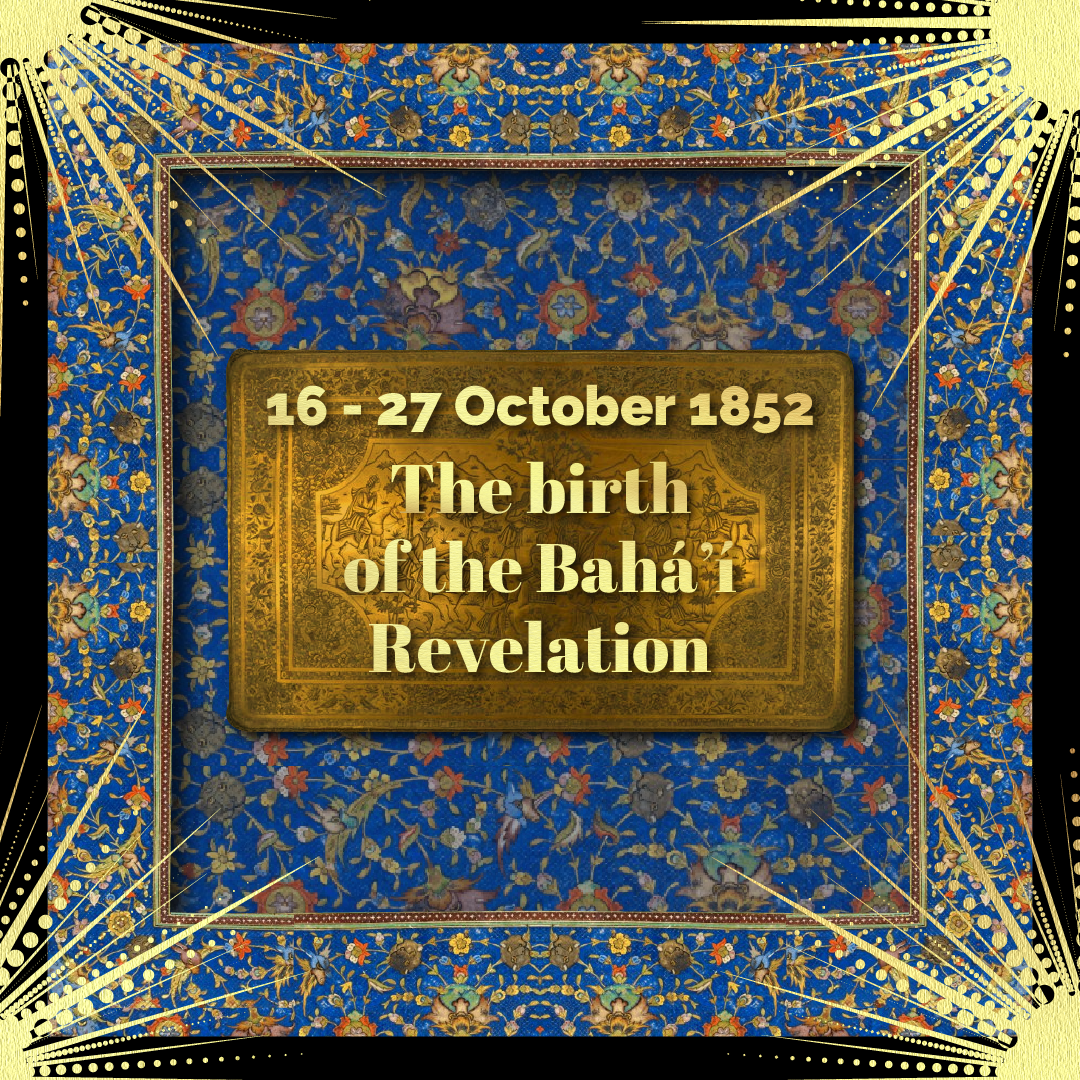
© Violetta Zein.
It is in the Siyáh-Chál, this worst of all places, a dark, icy, humid filled with fetid air, surrounded by the worst criminals of Persia, His feet in stocks and a mighty chain weighing down His neck, that Bahá'u'lláh receives the Revelation from God, disclosing to Him that He is the One Promised by the Báb.
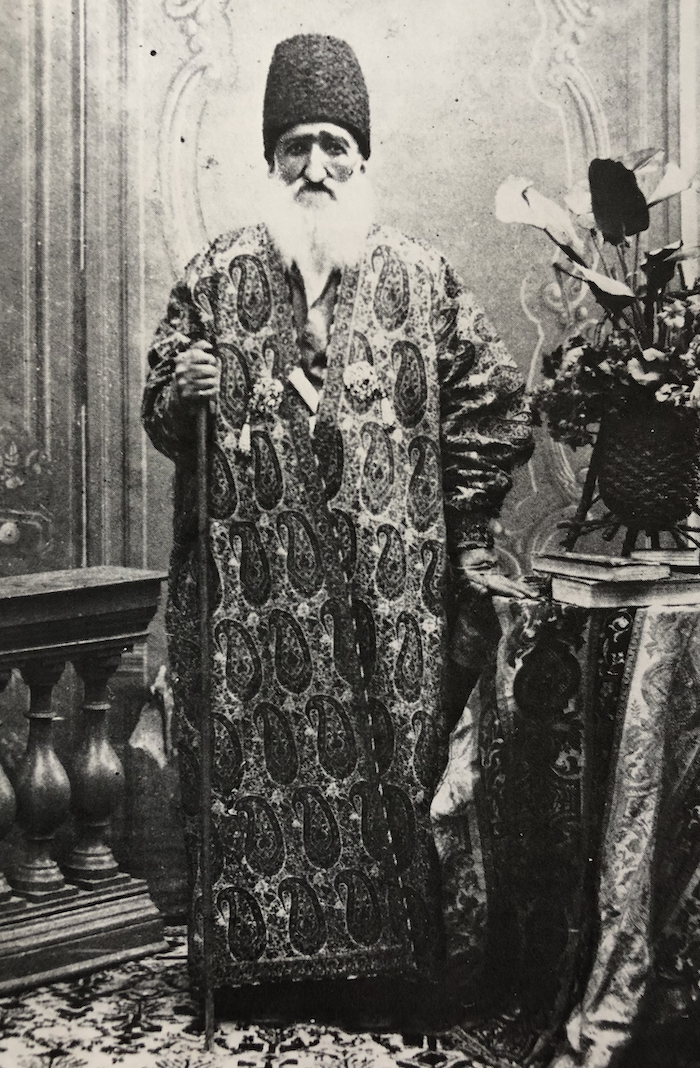
Mírzá Riḍá Qulí, the half-brother of Bahá'u'lláh and husband of the wonderful Maryam. Source: H.M. Balyuzi, Bahá'u'lláh: The King of Glory, page 103.
When Bahá’u’lláh is released from prison—stripped of His possessions; His back bent by the weight of the fetters; His neck swollen and injured, and His health impaired—He tells no one about the Revelation He received. Those close to Him, however, behold in Him a transformation of spirit, a new power and radiance, that they have never seen before. Bahá’u’lláh spends the month preceding His exile in the house of His half-brother Mírzá Riḍá-Qulí, a physician, and his wife Maryam, a cousin of Bahá’u’lláh and a faithful and sincere believer. With great care and affection, Maryam—together with Ásíyih Khánum, the wife of Bahá’u’lláh—nurse Bahá’u’lláh until His condition improves and, although not fully recovered, He has gathered sufficient strength to enable Him to leave Ṭihrán for ‘Iráq.

Map of the journey of the HOly Family from Ṭihrán to Baghdád based on information from H.M. Balyuzi’s “Bahá’u’lláh: The King of Glory,” page 105.Original graphic by Violetta Zein. Base map: 1850 map of Persia, Arabia and Afghanistan by Samuel Augustus Mitchell. Wikimedia Commons.
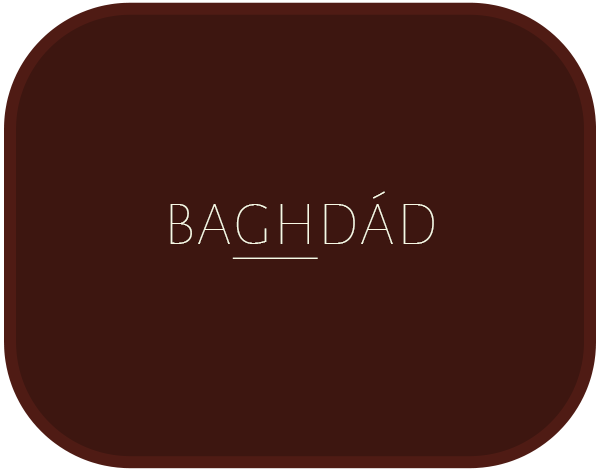
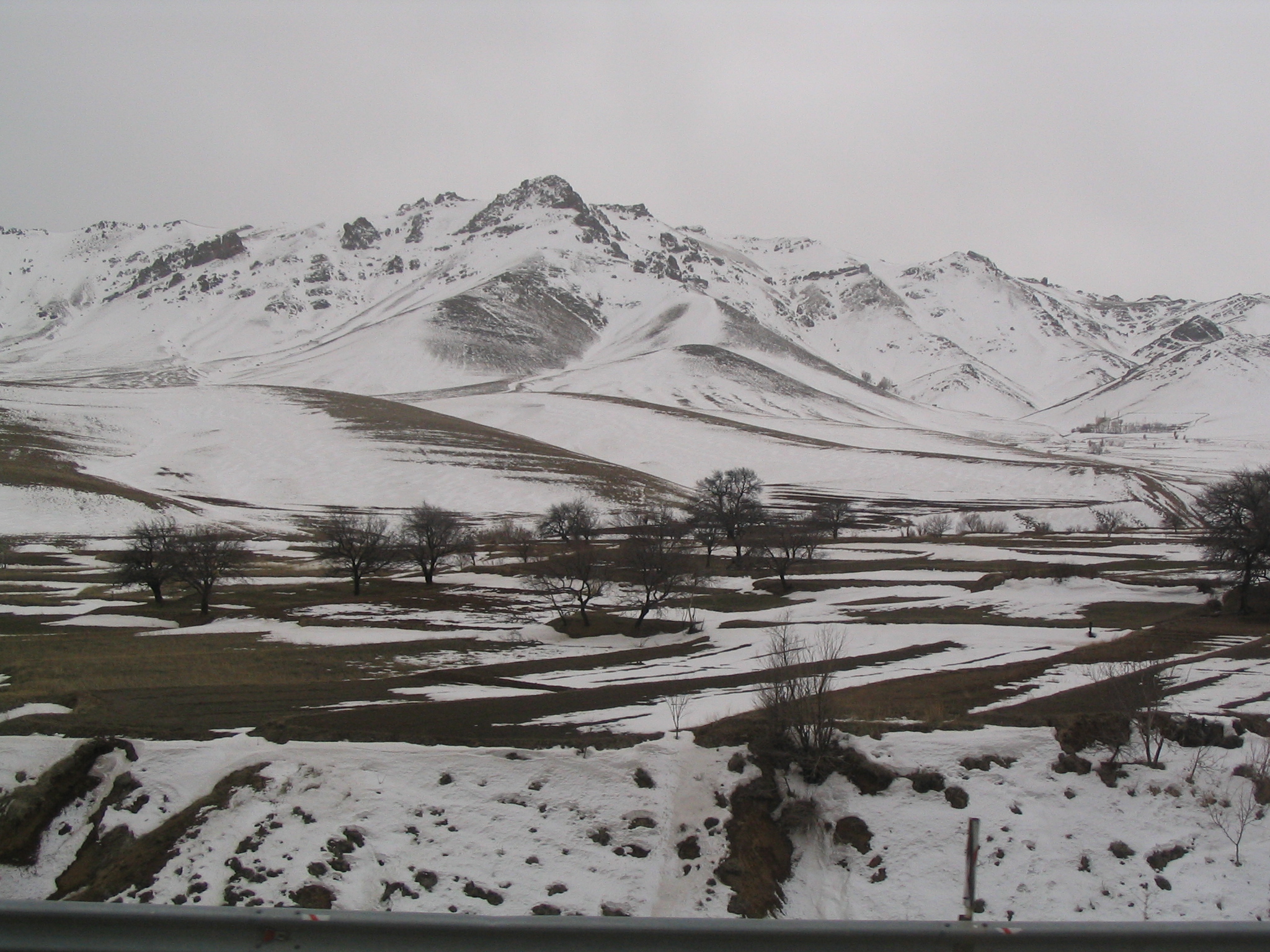
The Zagros Mountains between Iran and Iraq. © Livius.org | Jona Lendering. Used with permission.
Bahá’u’lláh, His wife Navváb, pregnant at the time, ‘Abdu’l-Bahá, aged eight-and-a-half, their daughter Bahíyyih Khánum, aged seven, and two of Bahá’u’lláh’s brothers, Mírzá Músá and Mírzá Muhammad-Qulí are exiled to Baghdád in the middle of a harsh winter. They are escorted by an officer of the Persian imperial bodyguard and an official representing the Russian legation. Very thinly clad, His feet, hands, ankles and wrists exposed to the bitter cold, Abdu’l-Bahá suffers frostbite, which causes Him great pain. The Holy Family grieves the separation from Mírzá Mihdí, too young and delicate to endure this journey. The family reaches Baghdád in Bahíyyih Khánum's words "in a state of great misery, and also of almost utter destitution." and exhausted. ‘Abdu’l-Bahá will never see His native land again.
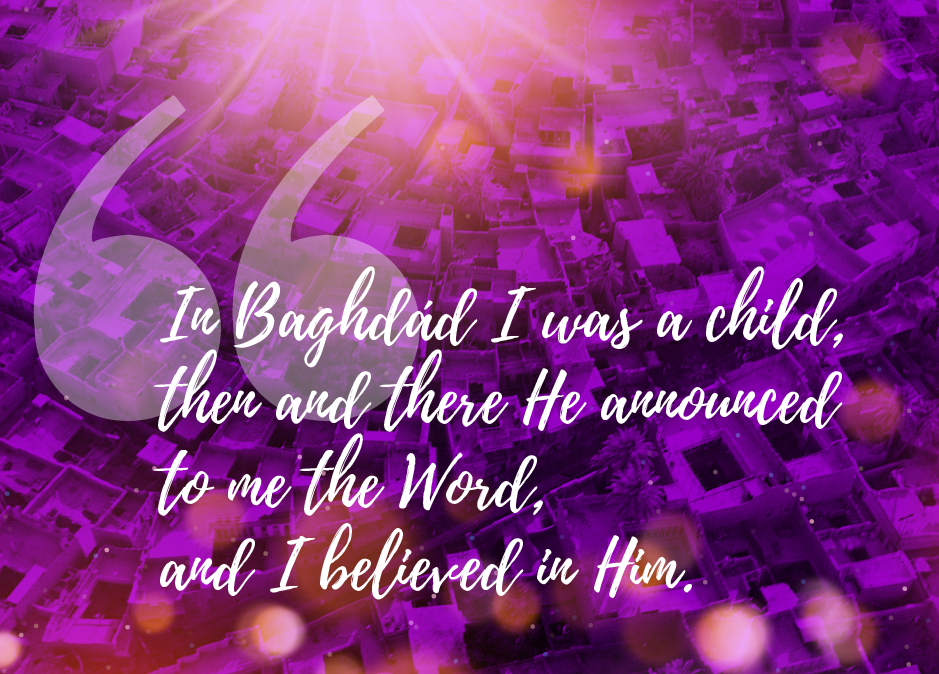
'Abdu'l-Bahá's words about His childhood acceptance of Bahá'u'lláh overlaid on a 1920-1934 aerial photograph of the Old City of Baghdád, taken by the American Colony of Jerusalem. Source: Library of Congress.
Ten years before Bahá'u'lláh openly declares His Mission, 'Abdu'l-Bahá’s keen insight at nine years of age leads Him to recognize intuitively that Bahá'u'lláh is the Promised One that all Bábís are awaiting. Sixty years later, 'Abdu'l-Bahá remembers the moment where this deep conviction overwhelmed Him:
I am the servant of the Blessed Perfection. In Baghdád I was a child, then and there He announced to me the Word, and I believed in Him. As soon as He proclaimed to me the Word, I threw myself at His Holy Feet and implored and supplicated Him to accept my blood as a sacrifice in His Pathway. Sacrifice! How sweet I find that word! There is no greater Bounty for me than this! What greater glory can I conceive than to see this neck chained for His sake, these feet fettered for His love, this body mutilated or thrown into the depths of the sea for His Cause! If in reality we are His sincere lovers—if in reality I am His sincere servant, then I must sacrifice my life, my all at His Blessed Threshold.
'Abdu'l-Bahá quoted in the Diary of Mírzá Aḥmad Sohrab, January 1914
– Excerpted from Bahá’u’lláh and the New Era by J.E. Esslemont
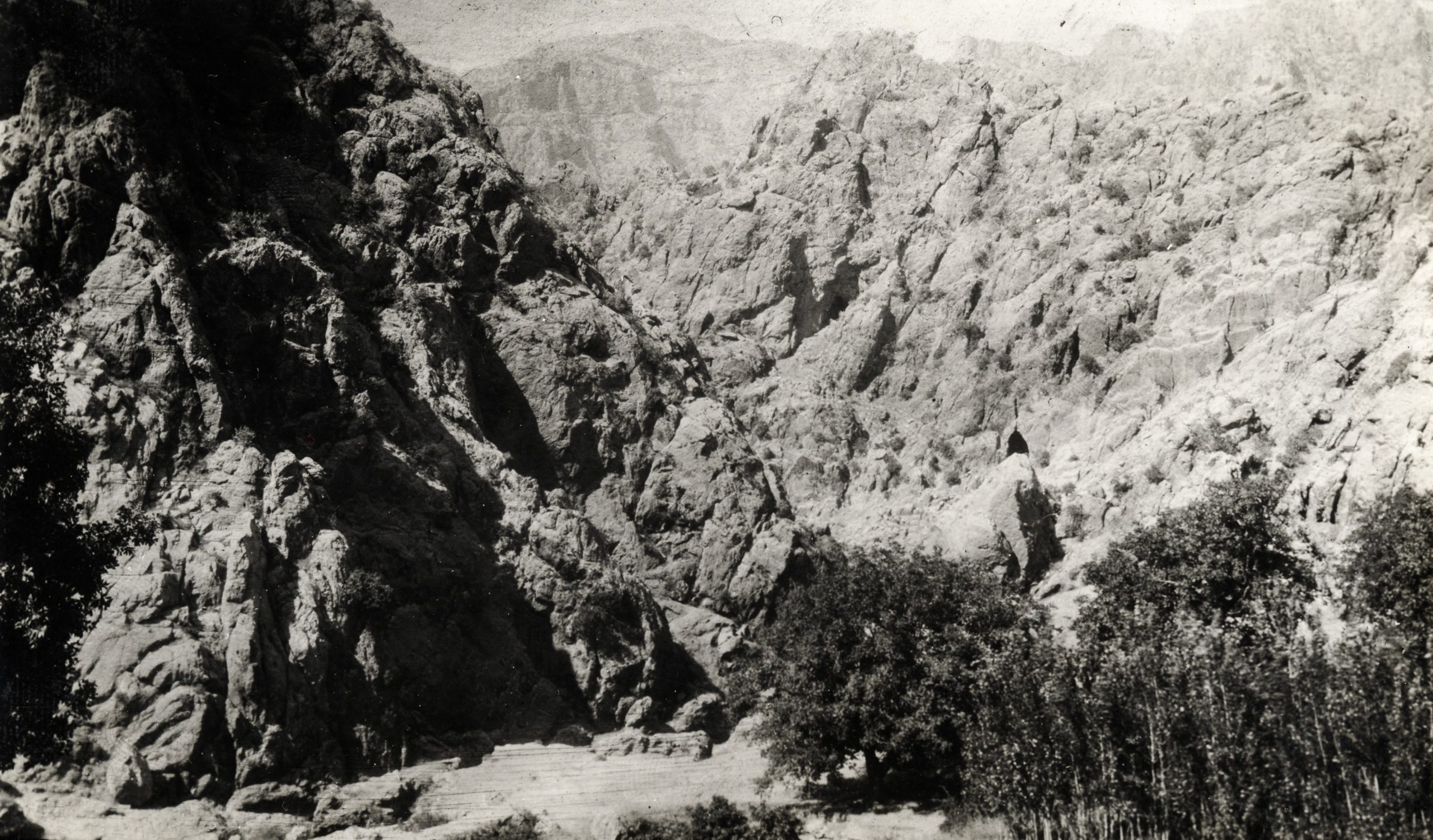
View of the mountains where Bahá’u’lláh stayed in Sulaymáníyyih between 1854 and 1856, circa 1940, Bahá'í Media Bank.
Nearly one year passes in Baghdád. After Bahá'u'lláh has recovered from the aftermath of the Siyáh-Chál, He begins to teach, encourage, and exhort the Bábís around Him. The machinations of Mírzá Yahyá, however, rise to such a point, that, when Abdu’l-Bahá’s is ten years old, suddenly, and without informing a single member of His own family, Bahá'u'lláh leaves Baghdád for Kurdistán, where He will remain for two years.
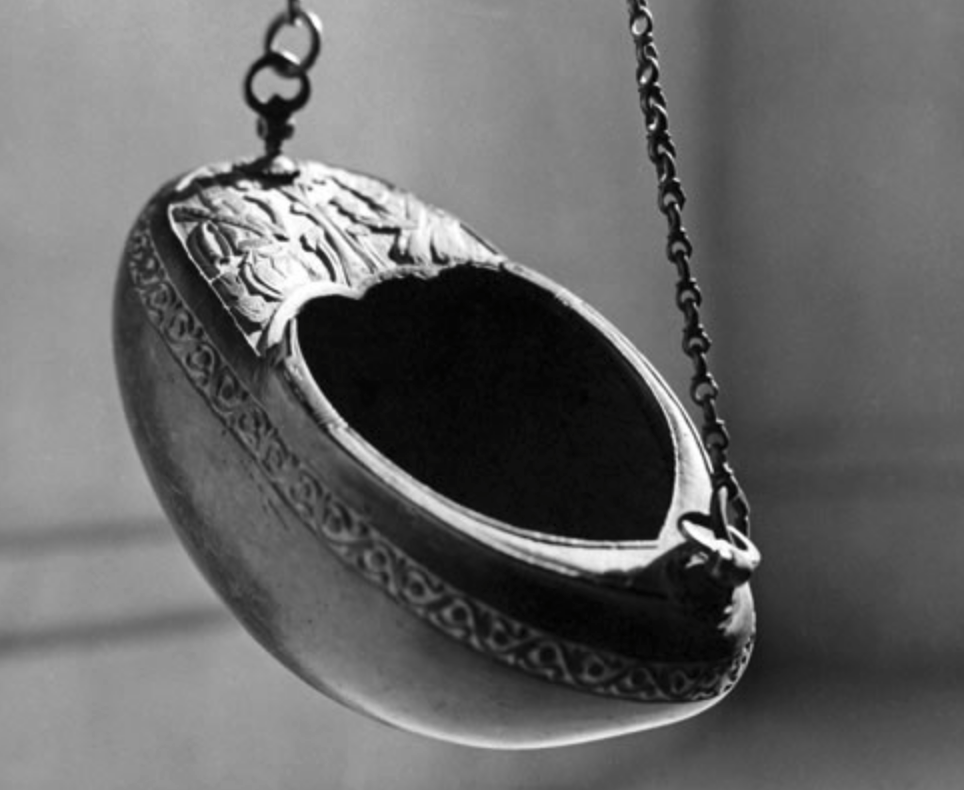
The kashkul (alms bowl) Bahá’u’lláh used as He traveled through the mountains of Sulaymaniyyih as a dervish from 1854 to 1856. The Life of Bahá'u'lláh: A Photographic Narrative Website. Photo Credit: Ted Cardell, 1952.
His only companion, to whom Bahá'u'lláh had given a sum of money is murdered, and Bahá’u’lláh is left entirely alone in His wanderings, under the name of Darvísh Muḥammad, attired in the garb of a traveler with coarse clothes and with His kashkúl (alms-bowl) and a change of clothes as His only possessions.
The Blessed Beauty retires in utter solitude to a mountain named Sar-Galú, where He encounters other people only twice a year. During this period, Bahá'u'lláh reveals and composes in both Arabic and Persian and chants aloud. These are two years of profound contemplation and meditation for Bahá'u'lláh.
When Bahá'u'lláh first arrives in Sulaymáníyyih, He is reserved and silent, and no one is aware of His learning and wisdom. Not long after arriving in Kurdistán, a sample of His exquisite calligraphy betrays His knowledge. Bahá'u'lláh meets a number of Shaykhs and wins their hearts. Bahá'u'lláh willingly answers any abstruse question posed to Him, elucidates the most obscure passages they can find over the course of several interviews, resolves their perplexities, expounds the doctrines of the authors, even reveals for them a 2,000-verse poem according to specific meter and rhyme.
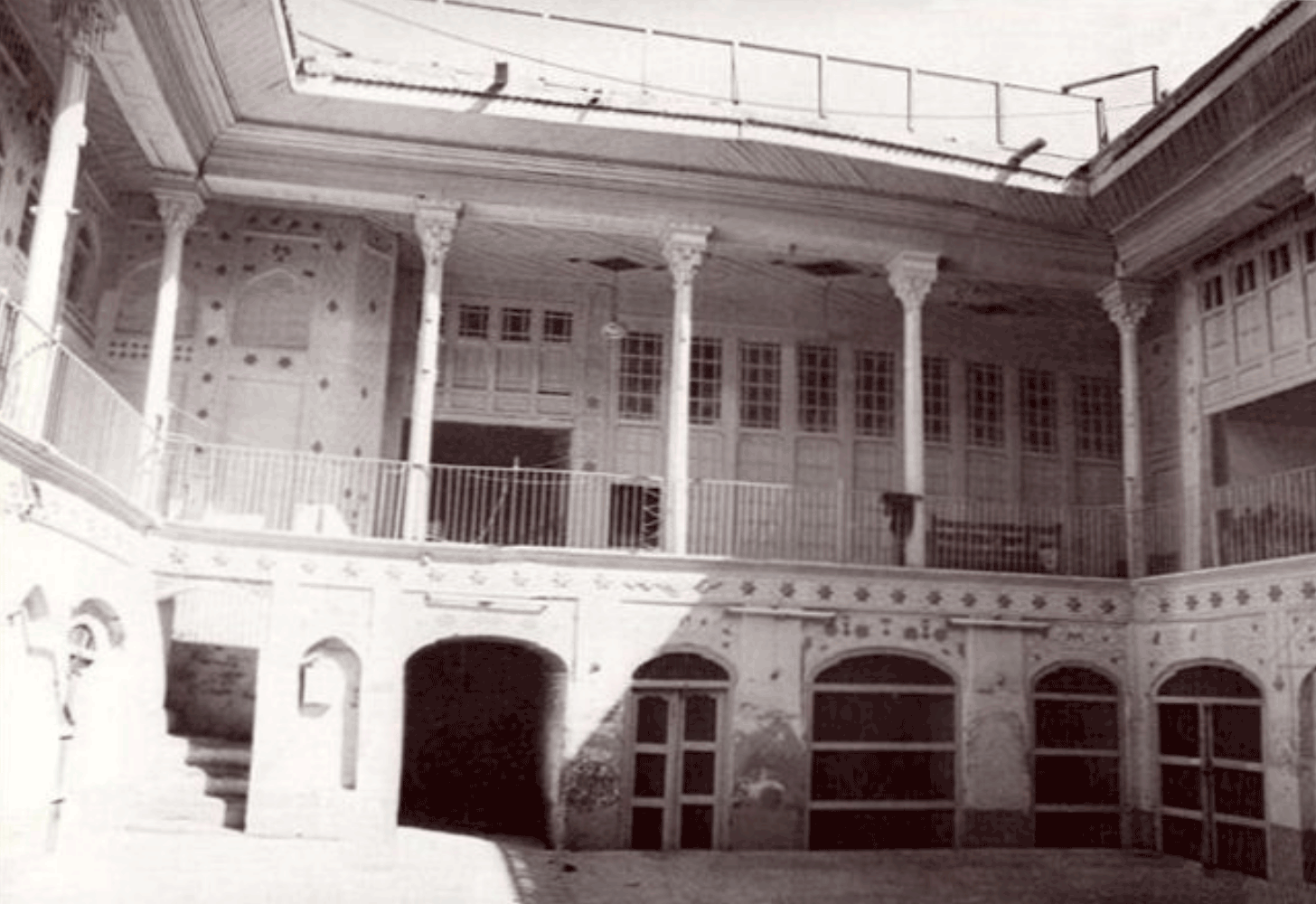
The House of Bahá'u'lláh in Baghdád. Taazakh Khabar News.
The sudden departure of His beloved Father, takes a heavy toll on 10-year-old 'Abdu'l-Bahá. He will later tell Nabíl in a conversation recorded for Nabíl's Narrative that grief and loneliness so consumed His soul that He had "in [His] boyhood grown old".
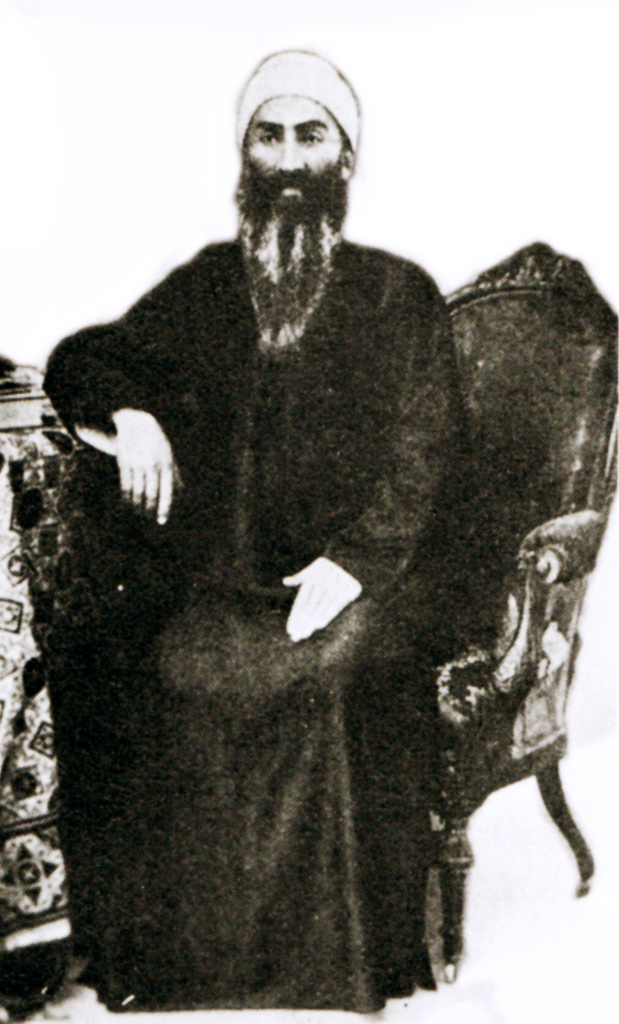
Mírzá Músá, Bahá'u'lláh's faithful brother and 'Abdu'l-Bahá's uncle. Bahá'u'lláh, the Glory of God Website.
For two years ‘Abdu’l-Bahá is occupied with reading avidly, memorizing and copying the writings of the Báb by hand (at the time, hand-copied scriptures are the only means of publication). ‘Abdu’l-Bahá spends much of His time in solitary meditation. Mírzá Músá, Bahá’u’lláh’s devoted younger brother, manages the day-to-day affairs of the family with help from ‘Abdu’l-Bahá, mature for His years.
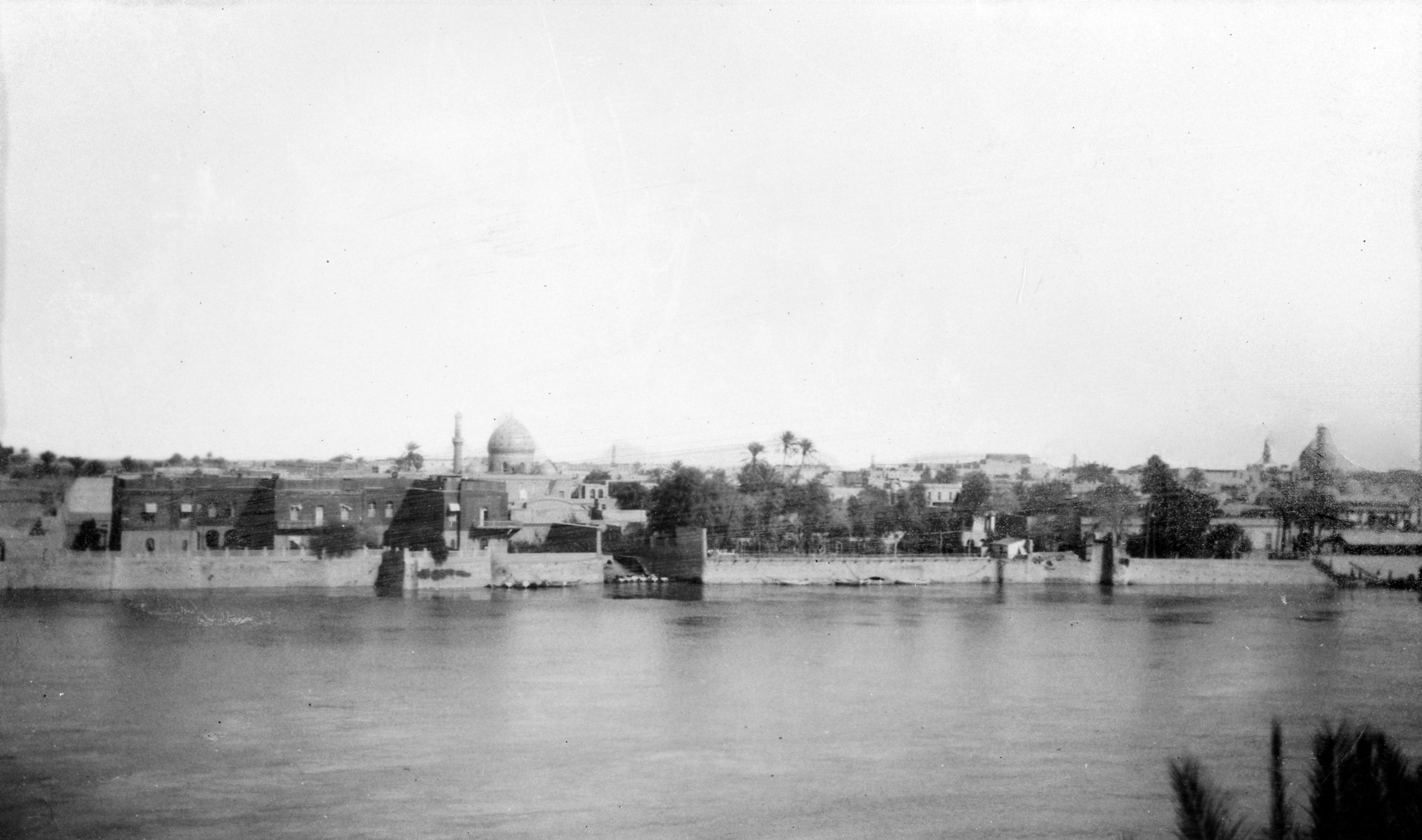
Historical view of Baghdád, Iraq, c. 1930. Bahá'í Media Bank.
The fame of a renowned ‘Darvísh Muḥammad’ spreads beyond the remote mountains of Kurdistán, and news of His innate greatness and knowledge reaches Baghdád nearly 400 kilometers away. Abu’l-Qásim-i-Hamadání, Bahá’u’lláh’s servant in His seclusion, is murdered on his way from Hamadán to Baghdád. He lives just long enough to say that the money the murderers stole belonged to Darvísh Muḥammad in Sulaymáníyyih. The murder is reported in an Iranian newspaper that ‘Abdu’l-Bahá and Mírzá Músá see one day at the Iranian embassy. They instantly recognize that Darvísh Muḥammad can be none other than Bahá’u’lláh. At the insistence of 'Abdu'l-Bahá, a mere 12 years old, and of Mírzá Músá, three Bábís are dispatched to Kurdistán to beg Him to return. Bahíyyih Khánum remembers the day that Bahá'u'lláh returned to their home:
At last! At last! As my mother, my brother, and I sat in a breathless state of expectancy, we heard a step. It was a dervish. Through the disguise we saw the light of our beloved one’s presence! Our joy cannot be described as we clung to him. I can see now my beloved mother, calm and gentle, and my brother holding his father’s hand fast, as though never again could he let him go out of his sight, the lovely boy almost enfolded in the uncouth garment of the dervish disguise. I could never forget this scene, so touching and so happy.
Lady Blomfield, The Chosen Highway, pp. 53-54.
When Bahá'u'lláh returns to Baghdád from His exile in Kurdistán, so does the fame He had acquired as the renowned ‘Darvísh Muḥammad.’ Bábís and many other people come to hear His teachings. Acording to 'Abdu'l-Bahá, after His return, Baha’u’llah makes strenuous efforts to educate and train the Baghdád community, reform its manners, regulate its affairs and rehabilitate its fortunes. Soon peace and tranquility return to the community. 'Abdu'l-Bahá is further quoted by Shoghi Effendi:
When these fundamentals were established in the hearts of this people, they everywhere acted in such wise that, in the estimation of those in authority, they became famous for the integrity of their character, the steadfastness of their hearts, the purity of their motives, the praiseworthiness of their deeds, and the excellence of their conduct.
Shoghi Effendi, God Passes By, p. 133.
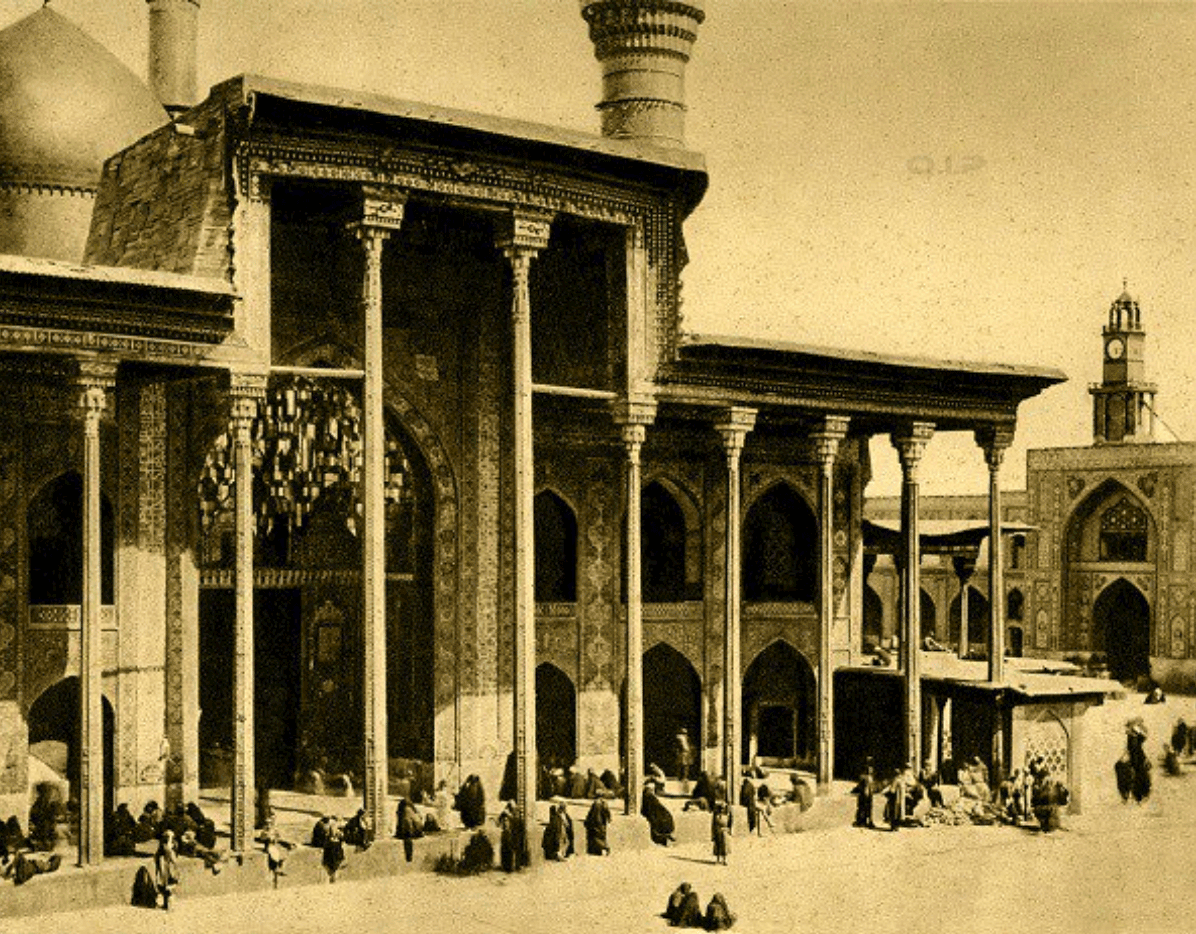
What a mosque would have looked liked during the time 'Abdu'l-Bahá visited them in Baghdád. This is a photograph of the gate of the mosque and the shrine of Imám Músá Ibn Jaʻfar in the city of Káẓimíyyih in Baghdad circa 1880s-90s. Old Iraqi Pictures Twitter Account.
From the moment Bahá'u'lláh returns, 'Abdu'l-Bahá is overwhelmed with joy and becomes His father’s closest companion and, in fact, protector. Although 'Abdu'l-Bahá is still a teenager, He demonstrates astonishing wisdom and perceptiveness. He takes on the task of interviewing Bahá'u'lláh’s numerous visitors, admitting only the genuine seekers, and protecting Bahá'u'lláh from insincere visitors. 'Abdu'l-Bahá frequently answers questions and resolves problems posed by visitors of Bahá'u'lláh. Now aged 14, ‘Abdu’l-Bahá has reached the “age of maturity” in Middle Eastern society. He is a remarkably fine-looking young man, admired and loved for His charity and friendliness. He becomes revered in circles beyond His Father’s followers. 'Abdu'l-Bahá regularly visits mosques in Baghdád and discusses theological matters with doctors and the learned. 'Abdu'l-Bahá’s favorite recreation during this time is horseback riding, and 'Abdu'l-Bahá is a fine horseman.
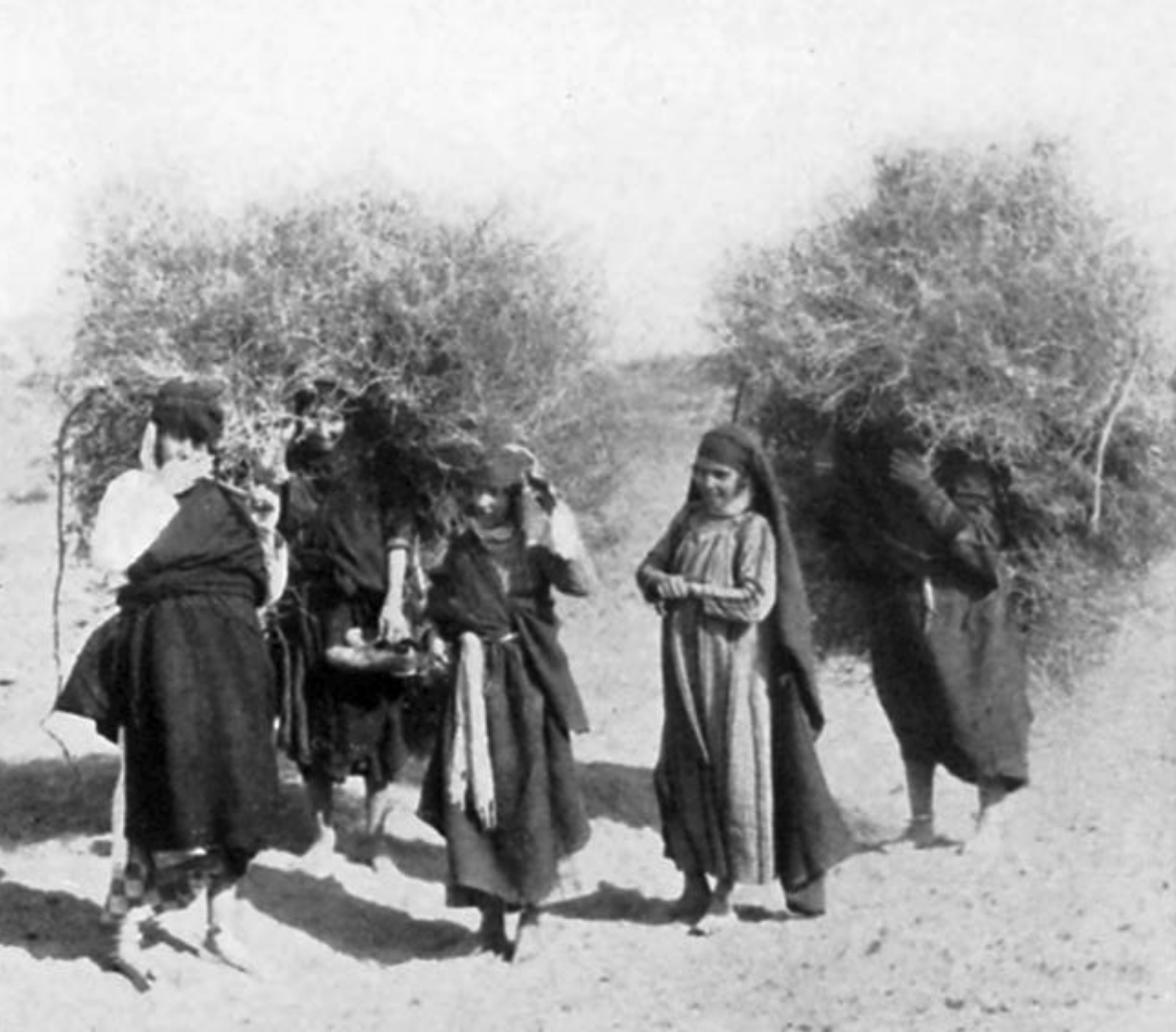
Thorn-pickers in Iráq in the 1930s. Photograph contributed by Ismael Velasco. (source)
There is no exact date for this story, but 'Abdu'l-Bahá recounts this story to Juliet Thompson in Thonon-les-Bains in August 1911. Tamaddunu'l-Mulk, 'Abdu'l-Bahá's interpreter, hands Him a booklet of Warwick Castle. The Master laughs, pushes the book aside and remembers a castle of much greater importance, the hut of a thorn-picker during his childhood or teenage years in Baghdád. In Baghdád, and throughout the arid Middle-East, all the way to Egypt, among the poorest of the poor, are thorn-pickers. These individuals and families are so poor, that they make a living picking thorn-bushes, like camel-thorn, that can be dried, and either stored and used or sold to burn in winter for fuel. Picking thorn-bushes is exceedingly painful and only the poorest, those who no longer have any choice, will become thorn-pickers. These humblest of people are whom 'Abdu'l-Bahá walks 12 miles (19 kilometers) to see, a distance that takes 4 hours at a walking pace, on a "very hot" day, which in Baghdád means anywhere around mid-40s degrees Celsius (111 degrees Fahrenheit). Now, we can start to paint a picture in our mind of exactly how much 'Abdu'l-Bahá loved the poor.
What do I care about it [the Castle of Warwick]? If a good believer lived in it, that would be different! Once, when I lived in Baghdád, I was invited to the house of a poor thorn-picker. In Baghdád the heat is greater even than in Syria; and it was a very hot day. But I walked twelve miles to the thorn-picker's hut. Then his wife made a little cake out of some meal for Me and burnt it in cooking it, so that it was a black, hard lump. Still that was the best reception I ever attended.
'Abdu'l-Bahá, quoted in "The Diary of Juliet Thompson"
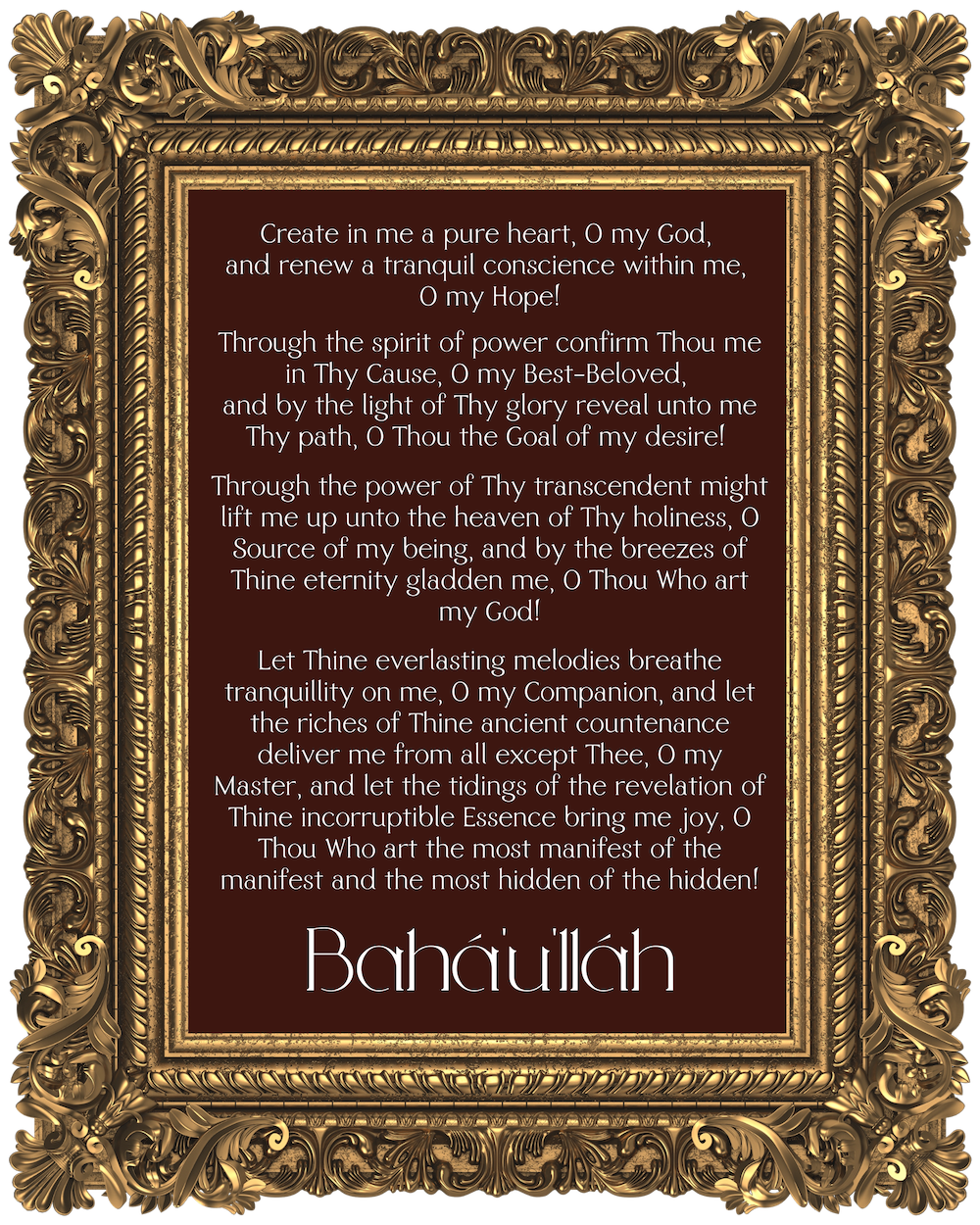
Upon Bahá'u'lláh's return from Kurdistán, He returns with Tablets revealed during His self-imposed exile. Among them, is this universally-beloved prayer, "Create in me a pure heart." 'Abdu'l-Bahá's first experience of this prayer, in His own words, is very moving:
When, for the first time, I read this Tablet, I wept openly.
Quoted in “Stories of Bahá’u’lláh” by ‘Alí-Akbar Furútan
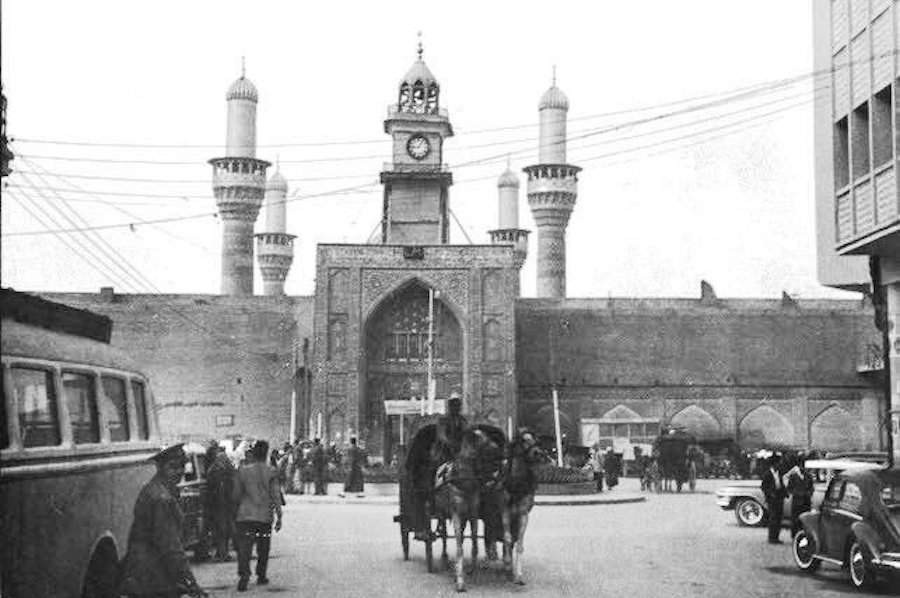
This is Al-Khadimiya mosque, a well-known mosque of Baghdád also near the Tigris River, but probably not the mosque from Bahá'u'lláh's story, circa 1962. Wikimedia Commons.
At some point after Bahá'u'lláh has returned to Baghdád, He visits the Mosque of Qamarí, near their home and close to the Tigris River. He meets the imám, whose name is 'Abdu's-Salám Effendi, whom, according to Bahá'u'lláh, is a man of good character and conversant with many branches of knowledge. The imám starts to regularly pay visits to Bahá'u'lláh who arranges for the imám to meet 'Abdu'l-Bahá on certain mornings and afternoons to discuss academic questions. One day the imám remarks:
I have taught and studied for over thirty years and yet, when students question me, I am obliged to refer to my books. Your accomplished child, on the other hand, is able to give explanations which have never occured to me.
Nabíl quoted in Stories of Bahá’u’lláh by ‘Alí-Akbar Furútan
Bahá'u'lláh then explains to the imám that his consternation has to do with the mysterious faculties 'Abdu'l-Bahá is endowed with, by virtue of His station:
The essence of the Most Great Branch is indicative of the essence of God. The Most Great Branch effortlessly comprehends scientific matters and perceives realities which others are incapable of fathoming; even as the Báb, Who, with only a few pages of practice, was able to produce such exquisite handwriting, and although He spent no more than a few days in school, prolific was the divine knowledge which flowed from His heart. In the same way, as soon as some aspect of knowledge comes to the attention of the Most Great Branch, He comprehends it to a degree that no scholar, however competent, can ever match.
Nabíl quoted in Stories of Bahá’u’lláh by ‘Alí-Akbar Furútan
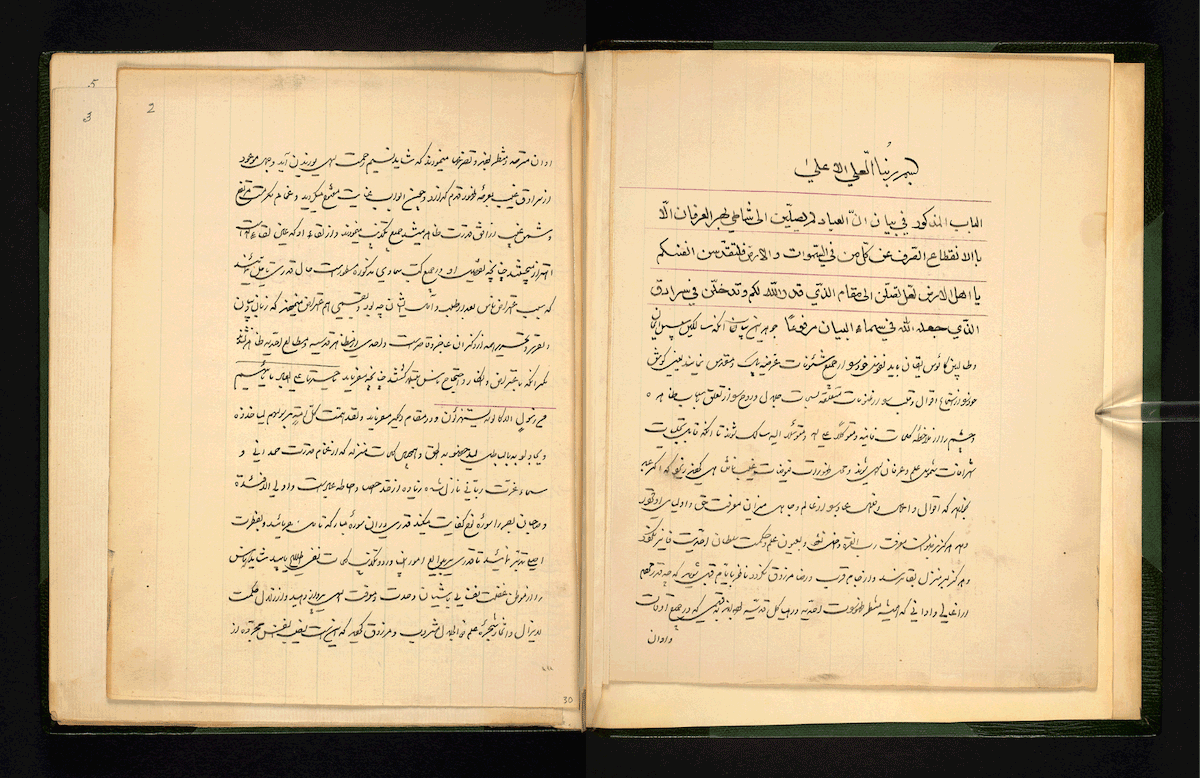
Manuscript of the first two pages of the Kitáb-i-Íqán (unknown calligrapher), copied prior to 1886, when it was purchased by the Austrian orientalist and politician Alfred von Kremer. British Library. Kitab-i Iqan (‘Book of Certitude’), a major Baha’i work by Baha’u’llah.
Bahá'u'lláh reveals the Kitáb-i-Íqán in a mixture of Persian and Arabic in 48 hours, in response to questions by an uncle of the Báb. The original manuscript, in the handwriting of 'Abdu'l-Bahá (at the time, the Master was 17 years-old), with marginal additions in the hand of Bahá'u'lláh Himself is preserved in the Archives of the Bahá'í World Center in Haifa, Israel.

The Governor of Baghdád, Námiq-Páshá (also known as Muhammad Najib Pasha or Gürcü Mehmet Necip Paşa or Necib Pasha). Wikimedia Commons.
Towards the end of the exile in Baghdád, the Governor of Baghdád himself, Námiq-Páshá, so impressed with esteem and veneration in which Bahá'u'lláh is held by so many, decides to call on Him to pay his personal respects. At this point, after conquering the hearts of the people, peasants and scholars alike, of Kurdistán, Bahá'u'lláh has conquered the hearts of the people of Baghdád. One on occasion where Bahá'u'lláh delegates 'Abdu'l-Bahá and Mírzá Músá to visit Námiq-Páshá, the Governor entertains them with such an elaborate ceremony that the Deputy-Governor states that, to his knowledge, no notable of the city had ever received so courteous a reception on the part of a Governor.
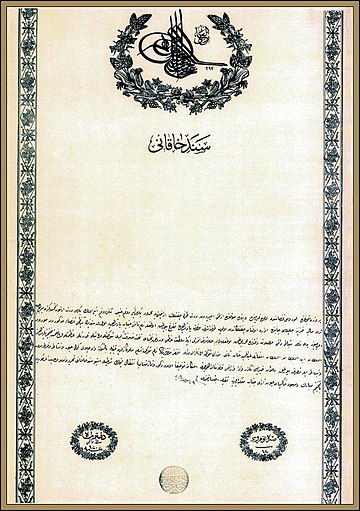
This is what an Ottoman decree signed by the Sultan looks like thirty years later. This is not the decree exiling Bahá'u'lláh a second time. Wikimedia Commons.
Governor Námiq Páshá requests that Bahá’u’lláh come to see him. Bahá’u’lláh refuses to go the Governor’s office. Námiq Páshá, unwilling to face Bahá'u'lláh, sends a deputy to Bahá'u'lláh’s house requesting a meeting at the Court House. Bahá'u'lláh replies:
My mission is not with the rulers of this world, neither with their statesmen, nor their officials. For what reason, therefore, should I enter their Court House?
Lady Blomfield, The Chosen Highway, p. 82
Bewildered, the Governor thinks to invite Bahá'u'lláh to the mosque, as it is a House of God, in order for the Farman to be read to Bahá'u'lláh. Bahá'u'lláh consents. The Farman is read to Bahá'u'lláh at the mosque, and the letter, though couched in courteous language, orders Bahá'u'lláh to go to Constantinople, as a guest of the Ottoman government, with funds and a mounted escort.
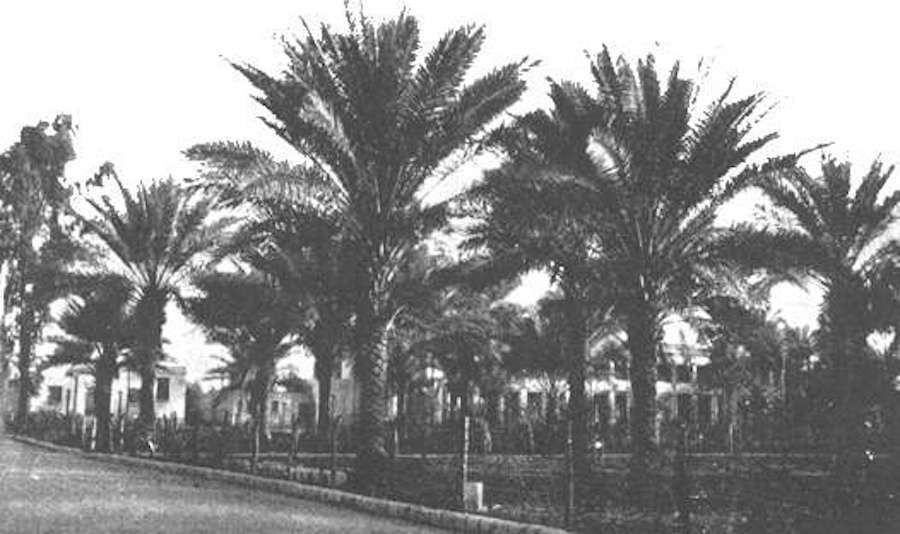
The garden of Riḍván in Baghdád. Wikimedia Commons.
Map of Baghdád in the 1850s. The garden is located at the left of this map, above the "v" in the River Tigris. Wikimedia Commons.
Accompanied by ‘Abdu’l-Bahá, Mirzá Mihdí, and a handful of followers, Bahá’u’lláh crosses the Tigris river to what we now know as the Garden of Riḍván. Shortly after the afternoon call to prayer, Bahá’u’lláh declares His station as the Manifestation of God, the One promised by the Báb to His companions and announces the inauguration of the Festival of Riḍván, which lasts for twelve days.
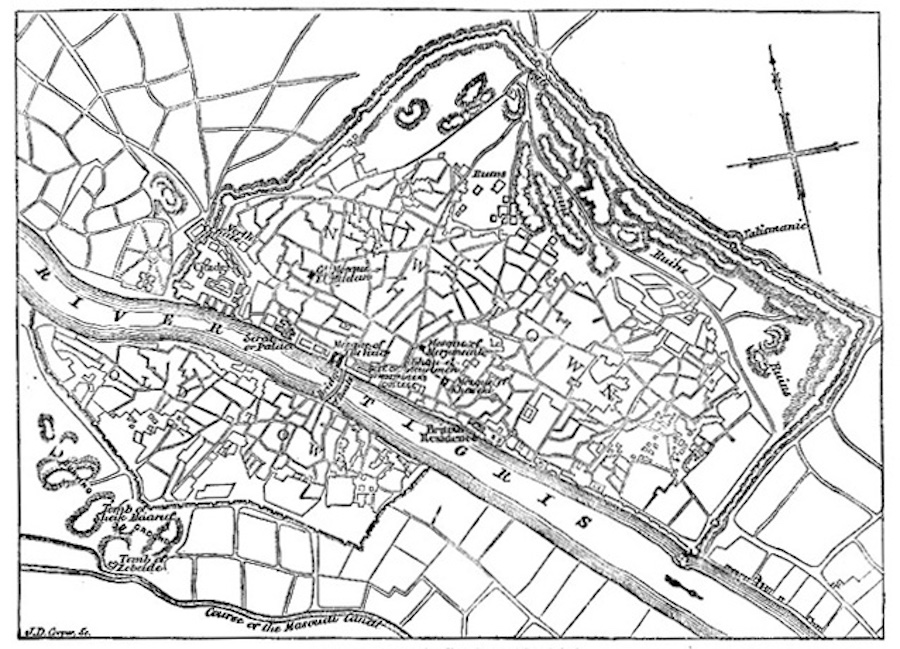
Garden of Ridvan, Baghdad, where Bahá'u'lláh declared his mission in April 1863. Source: Wikimedia Commons.
Crowds gather to bid farewell to Bahá’u’lláh and His family, exiled still farther to Constantinople (now Istanbul). Mounted on a red roan stallion of the finest breed, Bahá'u'lláh leaves behind Him a multitude of fervent admirers. Watching Bahá'u'lláh leave Baghdád fills the crowd with distress. Cries of “‘Alláh-u-Akbar” ring out again and again, and people throw themselves in the path of Bahá'u'lláh’s horse. Nabíl recounts:
Numerous were the heads, which, on every side, bowed to the dust at the feet of His horse, and kissed its hoofs, and countless were those who pressed forward to embrace His stirrups.
Shoghi Effendi, God Passes By
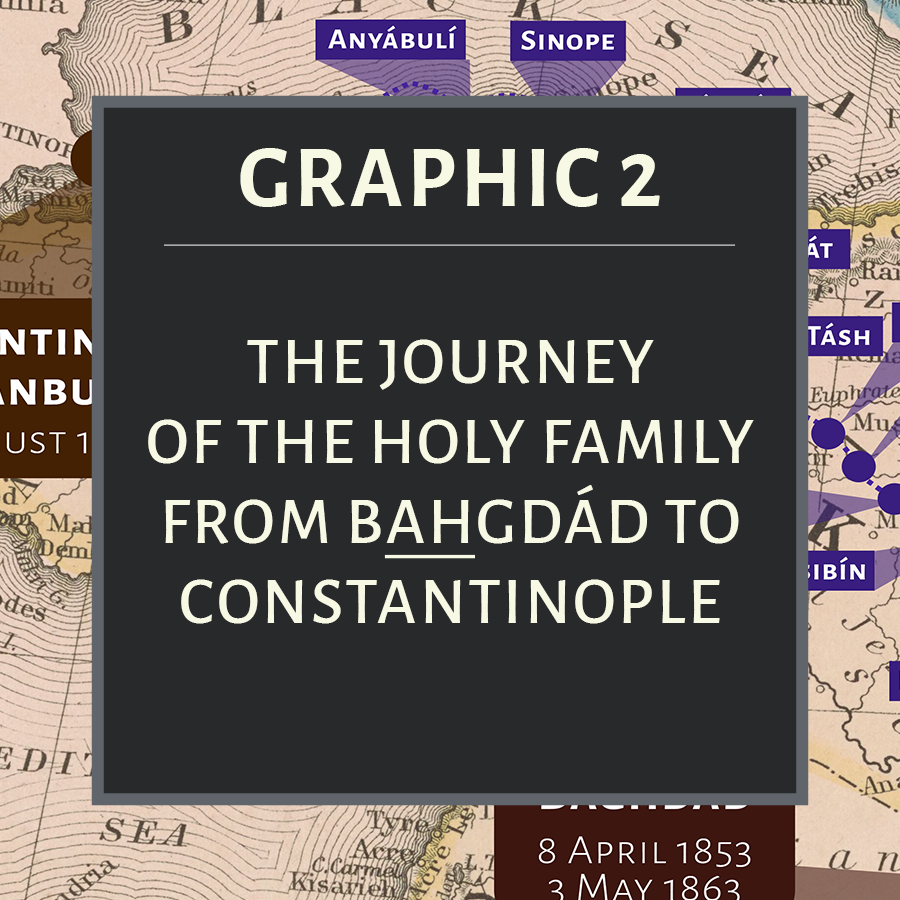
Map of the journey of the Holy Family from Baghdád to Constantinople based on the map on page 110 of H.M. Balyuzi’s “Bahá’u’lláh: The King of Glory.” Original graphic by Violetta Zein. Base map: 1860 map of Persia, Turkey in Asia, Afghanistan, and Beloochistan by Samuel Augustus Mitchell . Wikimedia Commons.
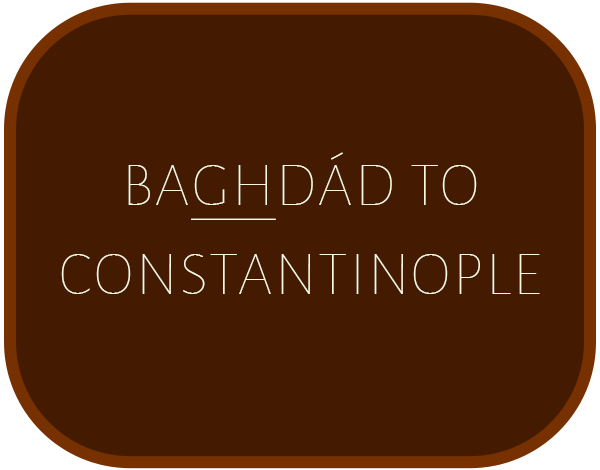
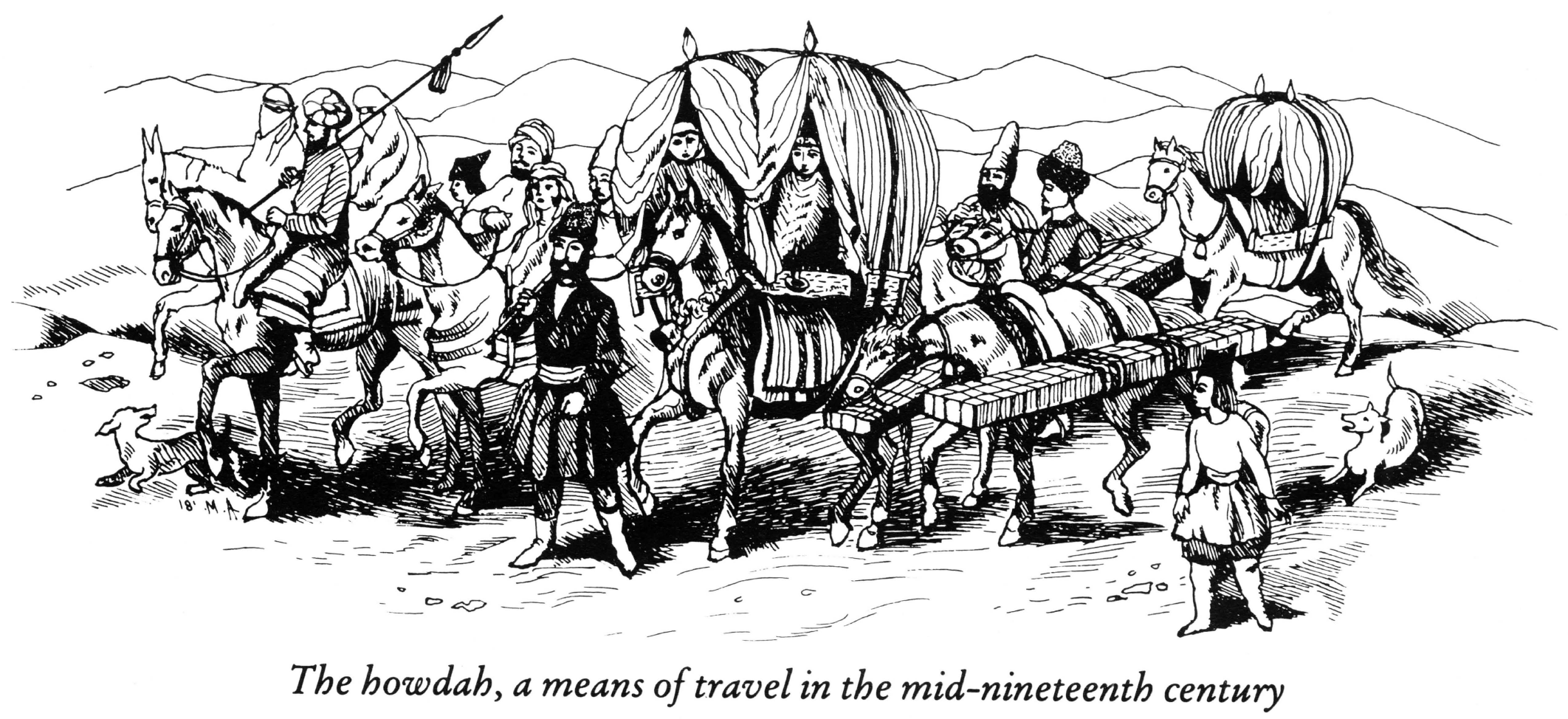
Persian howdah. You can clearly see the cloth covering and the wooden base, as well as the two compartiments seating one person each. There were seven such howdahs in Bahá'u'lláh's caravan. The Dawn-Breakers.
As the Holy Family leaves Baghdád, the caravan is assembled. It consists of horses, pack mules, some loaded with baggage and seven howdas, each surmounted by four parasols. They are accompanied by ten soldiers and an officer. Howdas consist of two wooden compartments, arched, covered with cloth and each spacious enough for one person.During the journey, Bahá’u’lláh sometimes rides His thoroughbred, a red roan stallion, alongside the caravan, and sometimes rests in a howdah reserved for His use.
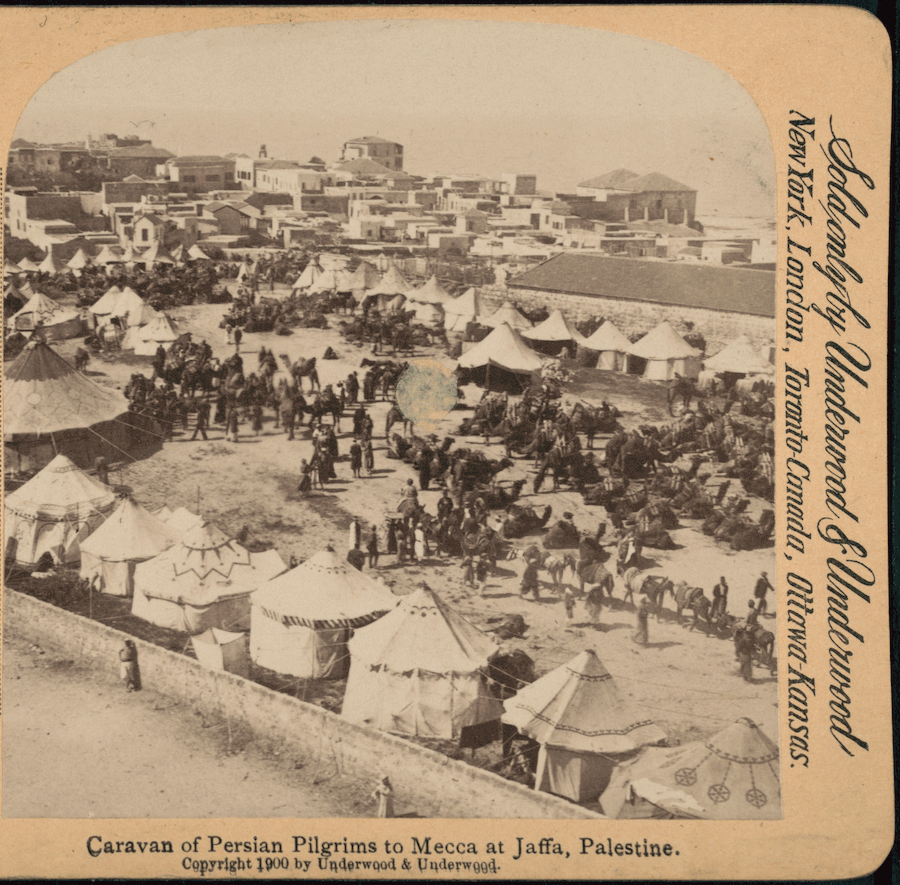
Caravan of Persian pilgrims to Mecca at Jaffa, Palestine, J.F. Jarvis, publishers, c1900. This photograph gives a good idea of the number of animals (though there were horses and no camels in the Holy Family's caravan) a few decades after the Holy Family's long exile. Library of Congress.
‘Abdu’l-Bahá makes the arrangements for the difficult journey across ‘Iráq and Anatolia. H.M. Balyuzi describes His role during the 110-day journey:
Abdu’l-Bahá was then a youth of nineteen, handsome, gracious, agile, zealous to serve, firm with the willful, generous to all. He strove hard to make the toil of a long journey less arduous for others. At night He was among the first to reach the halting-place, to see to the comfort of the travelers.
Balyuzi, H.M. 'Abdu'l-Bahá: The Centre of the Covenant of Bahá'u'lláh. Page 17
Wherever provisions were scarce, He spent the night in search of food. And at dawn He rose early to set the caravan on another day’s march. Then the whole day long He rode by the side of His Father, in constant attendance upon Him. 'Abdu'l-Bahá Himself remembers His role during the journey:
I appointed myself at the head of the commissariat department. As soon as we reached the end of one stage, I would go all alone in the villages and amongst the wild tribes of Kurds and Arabs and with the greatest amount of persuasion, I would make them sell me the necessary provisions for horses and men. I always first thought about the feed for the animals.
Often from afternoon till midnight I was going from one village to another, trying to find food and provision and on my return, I was so tired that I could not stand on my feet. Then I had to supervise the division of the provision for the animals so that no one may take more than his share. By this time I was so tired that I would go to sleep without eating anything.
The Diary of Ahmad Sohrab, 26 April 1913, pp. 19-22
The journey is arduous. Each night they stop, they are given a mounted escort for security, but still thieves manage to steal items from Bahá’u’lláh’s tent one night. Most of the stopping places of the caravan are along the Tigris and 'Abdu'l-Bahá bathes in the river.
Although the circumstances are vastly different between this caravan of Persian pilgrims and the Holy Family's caravan as exiles, we can see tents in the foreground, and the number of people and animals in close proximity can help us more fully visualize how uncomfortable the conditions must have been like for the Holy Family.
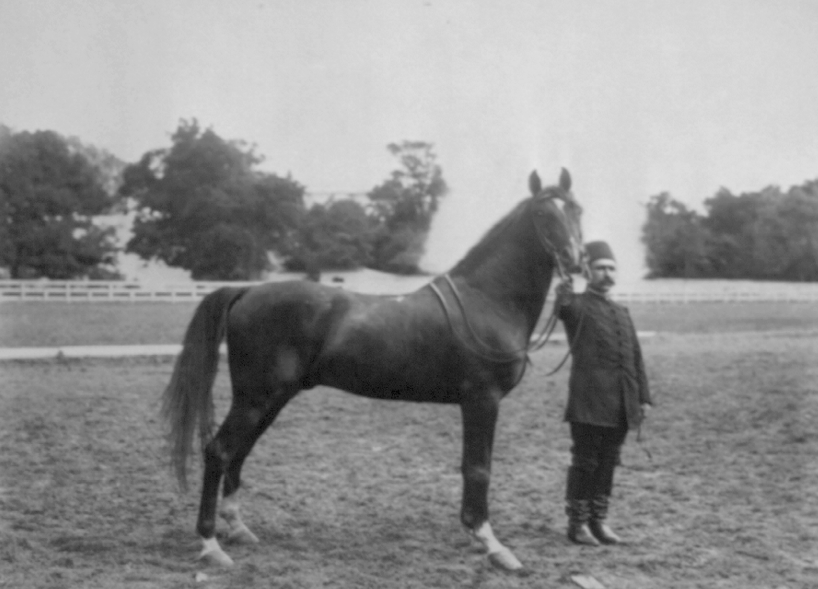
A black Arabian horse named Behim in Constantinople, around exactly the time this story takes place with 'Abdu'l-Bahá and his "fine" Arabian horse. Photograph by Abdullah Frères 1880/1893. Library of Congress.
'Abdu'l-Bahá’s horse is a very fine Arabian, so wild and spirited no one but 'Abdu'l-Bahá can ride him. The fiery horse, in 'Abdu'l-Bahá’s Hands, however, is docile and gentle as a lamb. 'Abdu'l-Bahá does not rest much during this arduous journey, owing to His many self-imposed duties, such as watching over the animals and the caravan, caring for the travelers, and ensuring the safety of Bahá'u'lláh’s safety at all times. He devises an ingenious method of catching small increments of sleep by riding swiftly ahead of the caravan at a considerable distance, then dismounting, and resting on the ground, His head resting on the neck of His horse. As the caravan approaches, His horse awakes 'Abdu'l-Bahá with a kick and he remounts.
The photograph above was taken 12 years after 'Abdu'l-Bahá rode out of Baghdád towards Constantinople on an Arabian. It gives us an idea of the type of horse breed that 'Abdu'l-Bahá and Bahá'u'lláh would have ridden as the photograph is also taken in that region, in Constantinople, more specifically.
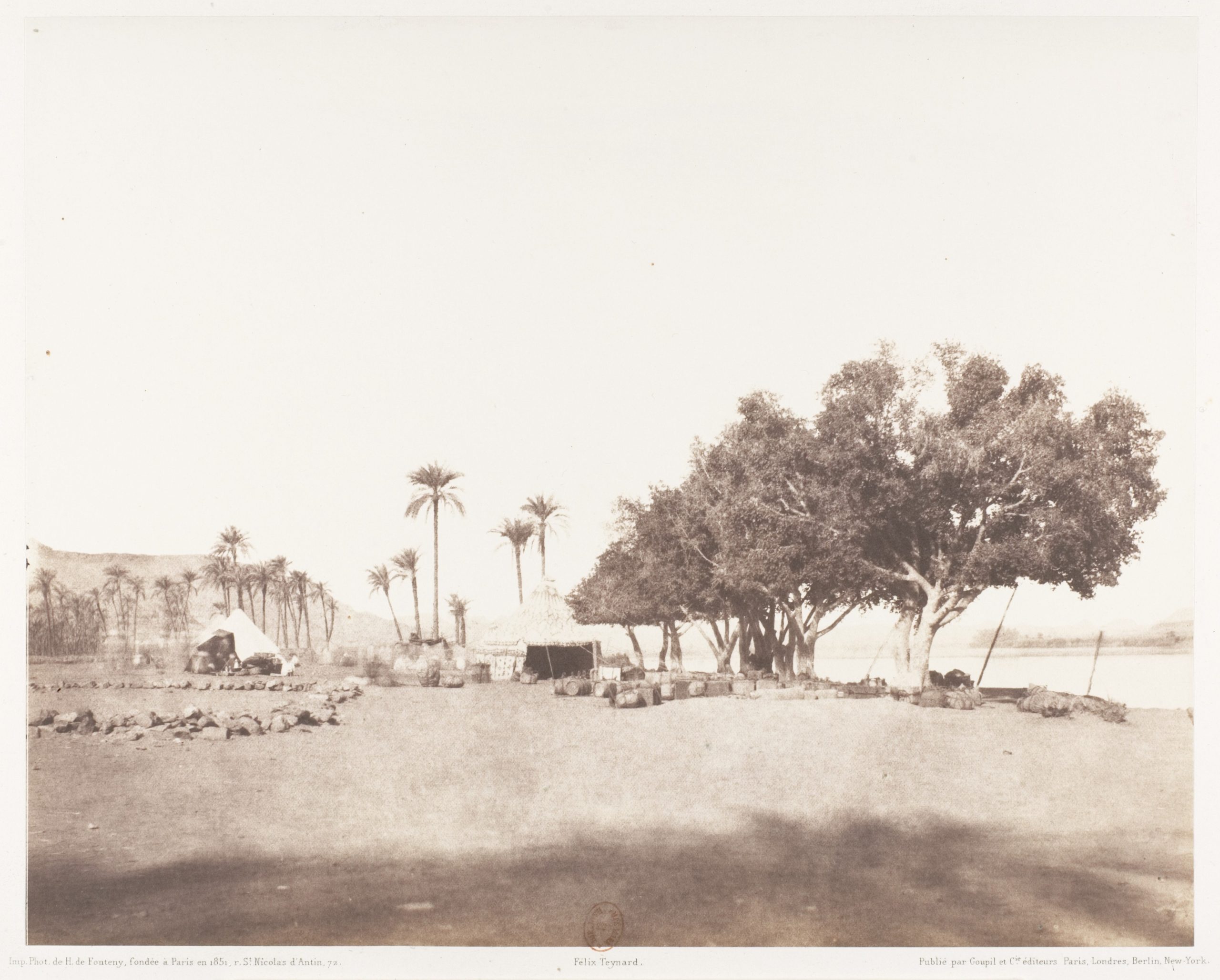
This is a 1851/1852 photograph of an encamped tent in Egypt, headed for the Sennar, by Félix Teynard, a French photographer. The tents in the background help us form an image of the kind of tent Bahá'u'lláh and His Family were in when He cooked this sweet dish for His loved ones. Source: The Met.
One day, after a long and cold march, 'Abdu'l-Bahá procures bread, rice and milk. Bahá'u'lláh uses these to prepare, with His own Hands a pudding by boiling the ingredients together and adding some sugar. This dish, which Bahá'u'lláh sometimes made for Himself during His sojourn in Kurdistán, was the only warm food He had during that time, dependent as He was on whatever people would be willing to give Him.
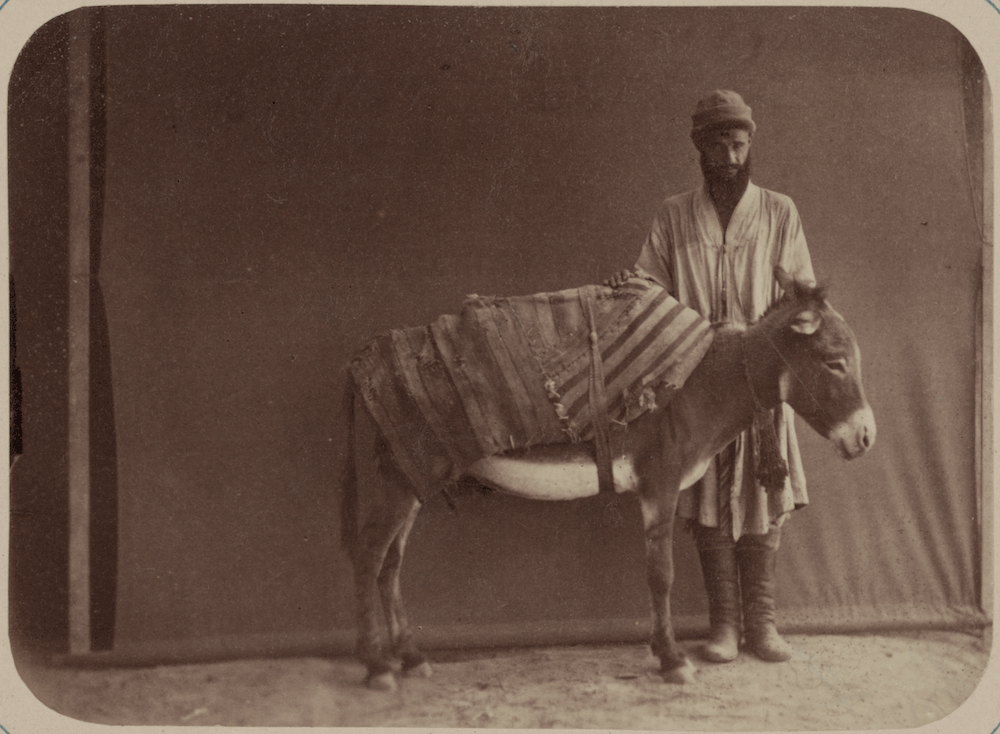
Man standing next to a mule fitted with a pack saddle. A pack saddle can be filled with items to carry, then ridden upon, making double use of the animal. Photograph taken between 1865 and 1872. Library of Congress Photographs.
As the caravan makes its way through a heavily-wooded area, it becomes apparent a mule has been lost along the way. The officer accompanying the caravan offers his own mule in replacement, stating nothing lost in this area is ever recovered. But the mule is carrying cases of writings and other important objects, so 'Abdu'l-Bahá, with the permission of Bahá'u'lláh, sets off on horseback in the dead of night with a search party. 'Abdu'l-Bahá instructs his companions:
Relying on God, let us divide into several groups to search the paths in the forest. Whoever finds the mule should inform the others by calling out or by lighting a fire.
'Abdu'l-Bahá quoted in "Stories of Bahá'u'lláh by 'Alí-Akbar Furútan
'Abdu'l-Bahá’s strategy works, and by sunrise the mule has been found. By noon, the elated search party rejoins the caravan and Bahá'u'lláh compares 'Abdu'l-Bahá’s efforts to recover the lost mules with His Own reaction earlier on in the journey in Mardín when He insisted several mules be returned to an Arab muleteer from whom they had been stolen.
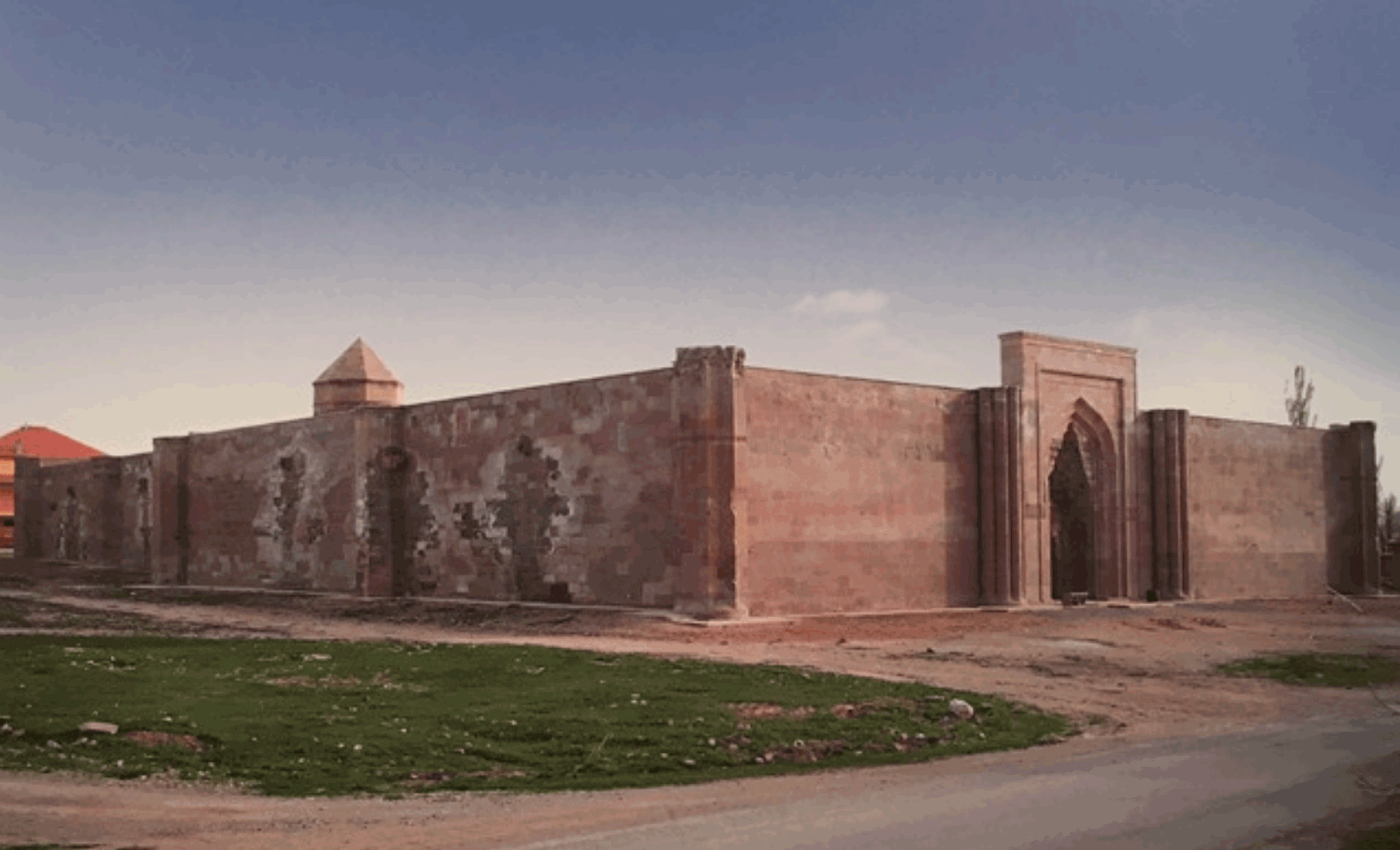
Tuzhisar Kayseri Sultan Han (Han meaning Caravanserai in Turkish). One of the most beautiful Caravanserais ever built, akin to a five-star hotel of its day with a mosque inside. This caravanserai is near the route Bahá'u'lláh would have taken, and is only shown as a visual example of what caravanserais look like. Most would have been very humble. Turkish Han Website.
At each encampment, crowds gather to see the “leader of the Bábís”. Remembering this relentlessly strenuous journey to His secretary, Mirza Ahmad Sohrab, 'Abdu'l-Bahá recounts that the caravan would cover 40 to 50 kilometers by day or by night. No sooner they would reach a caravanserai (resting area for caravans), then everyone would like down and go to sleep from sheer exhaustion, so depleted they could no longer move.
'Abdu'l-Bahá however would not rest during these stops as He would see that this large party of 36 horses and mules and 72 people were supplied with food and daily necessities. Two extraordinarily devoted believers accompanied this caravan. They were, in the words of 'Abdu'l-Bahá “kindled by the spirit of God” and served Bahá'u'lláh with “rare faithfulness”. Their names were Áqá Riḍá and Mírzá Maḥmud-i-Kashání. These two men served as cooks, and, accompanying the caravan were so devoted that they too, would never rest. All day they would guide Bahá'u'lláh’s howdah, an arduous job, and when the caravan reached a stop, they would immediately start cooking for the large party. When the meal was ready for those who had rested would eat, then return to rest. The two cooks would then wash the dishes and repack them. In the words of 'Abdu'l-Bahá:
By this time, they would be so tired that they could have slept on even a hard boulder.
Star of the West,Volume XIII, No. 10, pp. 277–278. “Exiled From Bagdad: A story from the words of Abdul Baha”
During the journey to Constantinople, a famine was raging in the country. When they reached a station, 'Abdu'l-Bahá and Áqá ‘Abdu’l-Ghaffár would ride on horseback from one village to another or from one Arab or Kurdish tent to another, trying to gather food, straw, barley for people and animals. At times, they would ride until midnight. One day, they happen upon a Turk who is harvesting. 'Abdu'l-Bahá tells the story:
Seeing his large pile of straw we thought we had come to the end of our search. I approached the Turk politely, and said, "We are your guests and one of the conditions of (religious) Faith is to honor the newly arrived guests. I have heard that you are a very liberal people, very generous, and that whenever you entertain a guest you kill and cook for him a whole sheep. Now, we desire such and such a thing, and are ready to pay any price that you demand. We hope this is sufficiently reasonable." He thought for a moment, and then said, "Open your sack." Mirza ]afar opened it and he put into it a few handfuls of straw. I was amused, and said, "Oh, young friend! What can we do with this straw? We have thirty-six animals and we want feed for every one of them."
Star of the West, Volume XIII, Number 10, pages 277-278.
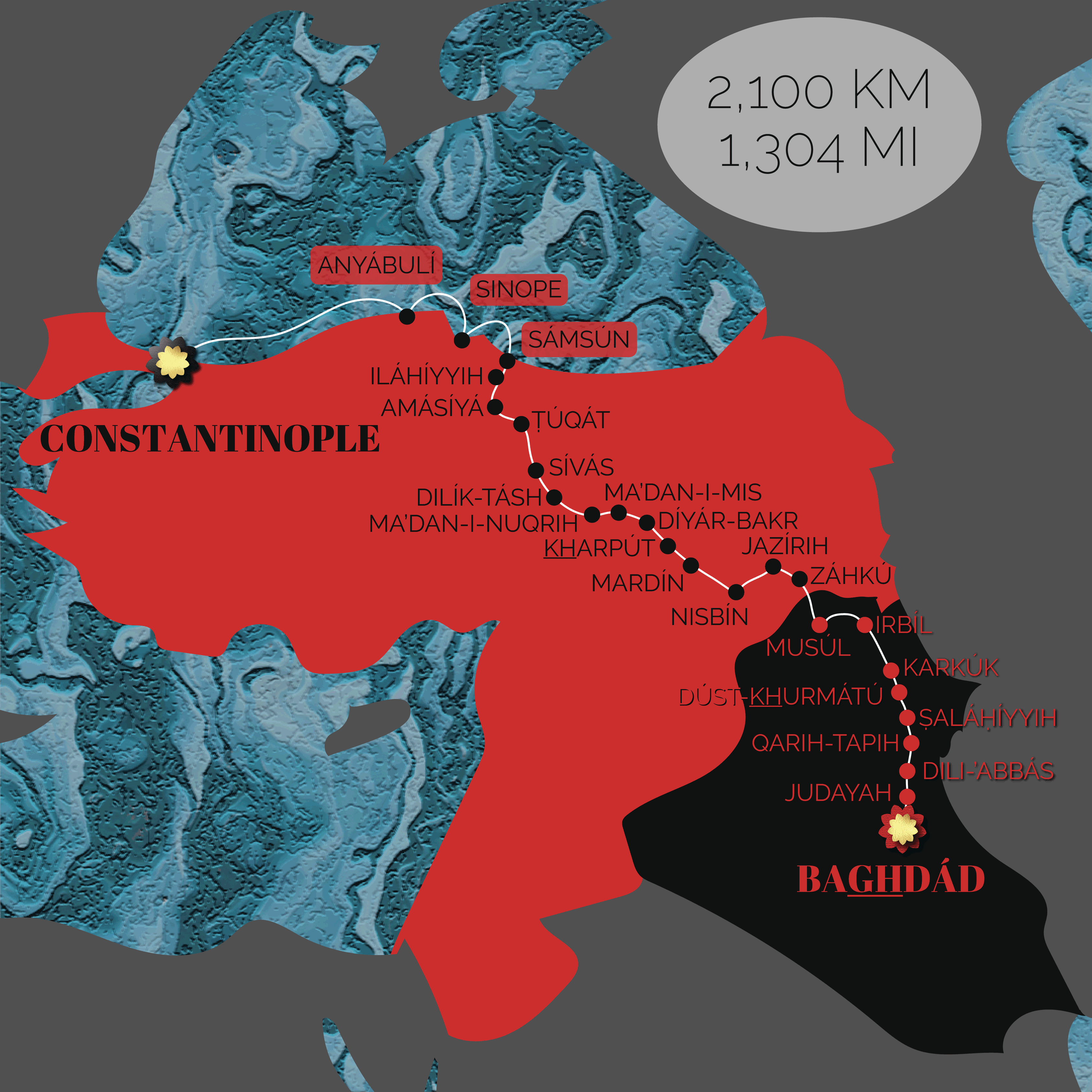
Map indicating only a small fraction of the stops made by Bahá'u'lláh's caravan between Baghdád and Constantinople, from 3 May to 16 August 1863. Source: H.M. Balyuzi, Bahá'u'lláh: The King of Glory, page 180. © Violetta Zein.
Among the great many places the caravan stops during journey, just to name a few are Mosul and Kirkúk with ten stops in between. Mosul and Kirkúk are separated by 173 kilometers, yet the caravan of the Holy Family stopped ten times in crossing this distance. At an average of 17 kilometers before each stop, this journey must have been extremely arduous. In His memories related to Mirza Ahmad Sohrab, 'Abdu'l-Bahá mentions the caravan would cover between 40 to 50 kilometers a day, then stop for rest. The total distance (overland) of the exile from Baghdád to Samsun is nearly 1,600 kilometers. One cannot estimate the number of encampments, but between the Mosul-Kirkúk stops every 17 kilometers and the average daily distance mentioned by 'Abdu'l-Bahá, the Holy Family would have had to camp perhaps between 30 and 100 times to cover this journey. The journey is the longest the Holy Family will make in their successive four exiles.
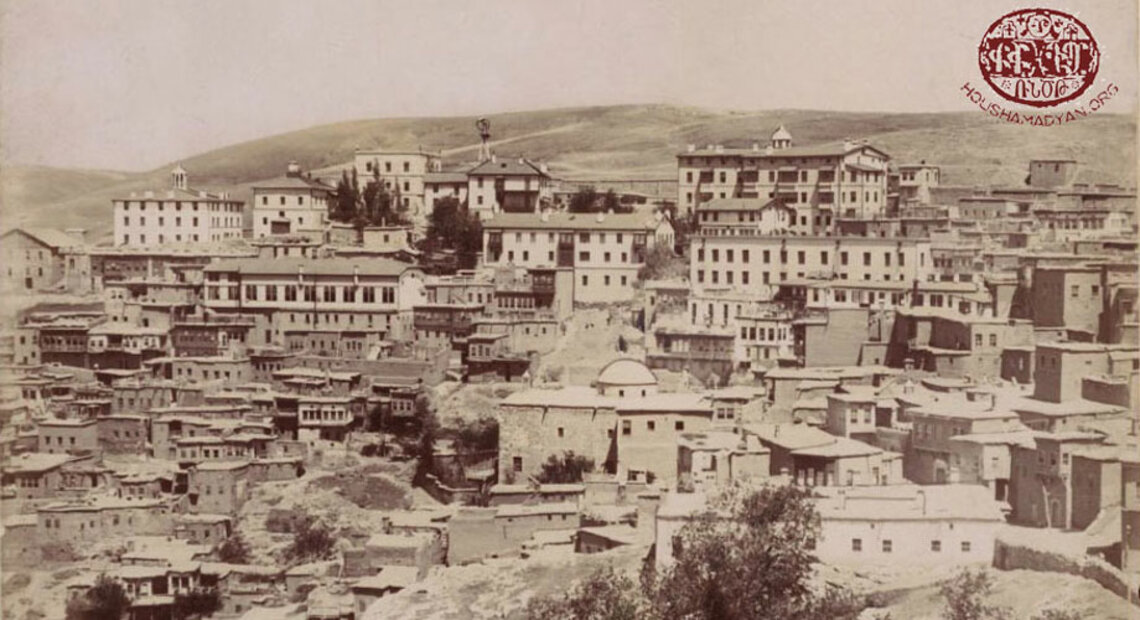
A Panorama of the City of Harput. From Housham Dayan Website. Harput şehrinden bir panorama (Kaynak: Harvard University, Houghton Library)
The animals, by this stage of the ordeal had become lean and walked with great difficulty. At Harput, the Acting Governor-General ʻIzzat Páshá calls on Bahá'u'lláh and brought with him as a gift ten car-loads of rice, ten sacks of barley, ten sheep, several baskets of rice, several bags of sugar, many pounds of butter, and other things. After the ordeal of the journey, and how difficult it had been to obtain anything from farmers along the road, these gifts seemed to 'Abdu'l-Bahá as if they had been sent from God and were gladly accepted. Utterly spent, 'Abdu'l-Bahá sleeps for two days and two nights in Harput. Bahá'u'lláh and the Holy Family rested in Harput for one week, then continued on to Samsun.
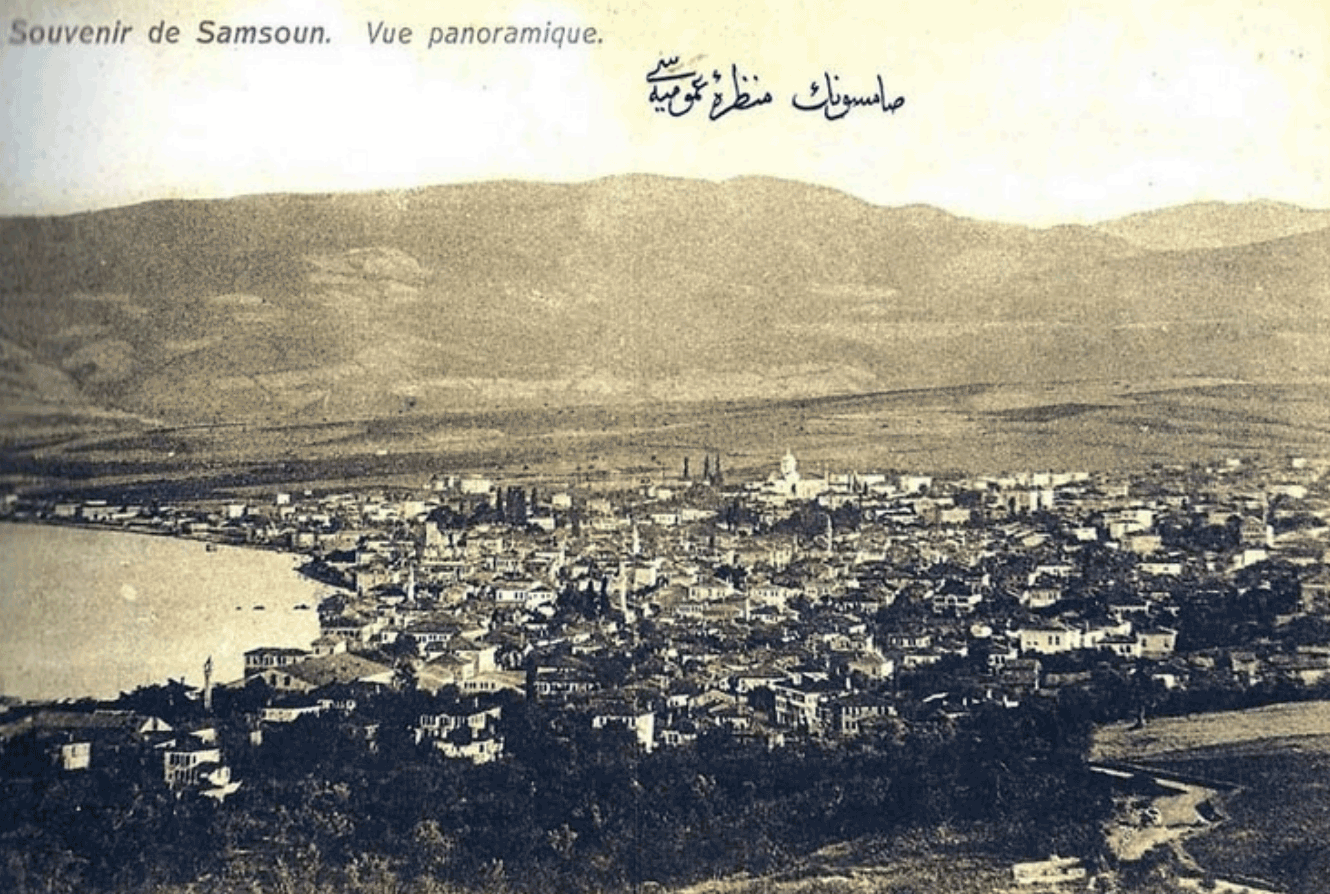
The general view of Samsun city between 1870-1884. Samsun 2019 Website. Samsun From Past to Present.
Bahá’u’lláh and the Holy Family, arrive in the port city of Samsun on the shores of the Black Sea, after a grueling 1,600-kilometer journey overland from Baghdád. In Samsun, they board a steamship and complete the remaining roughly 800 kilometers of their journey over two and a half days.
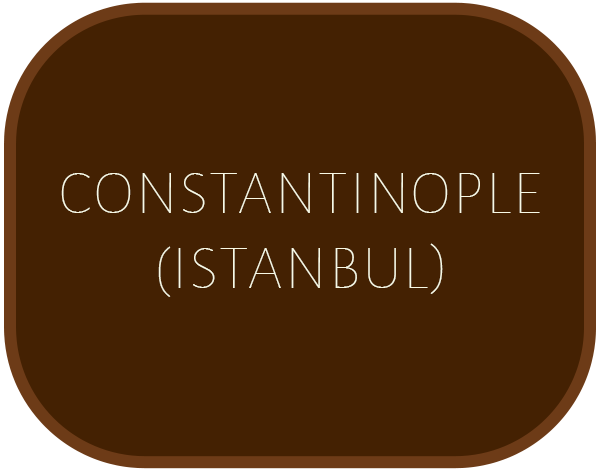
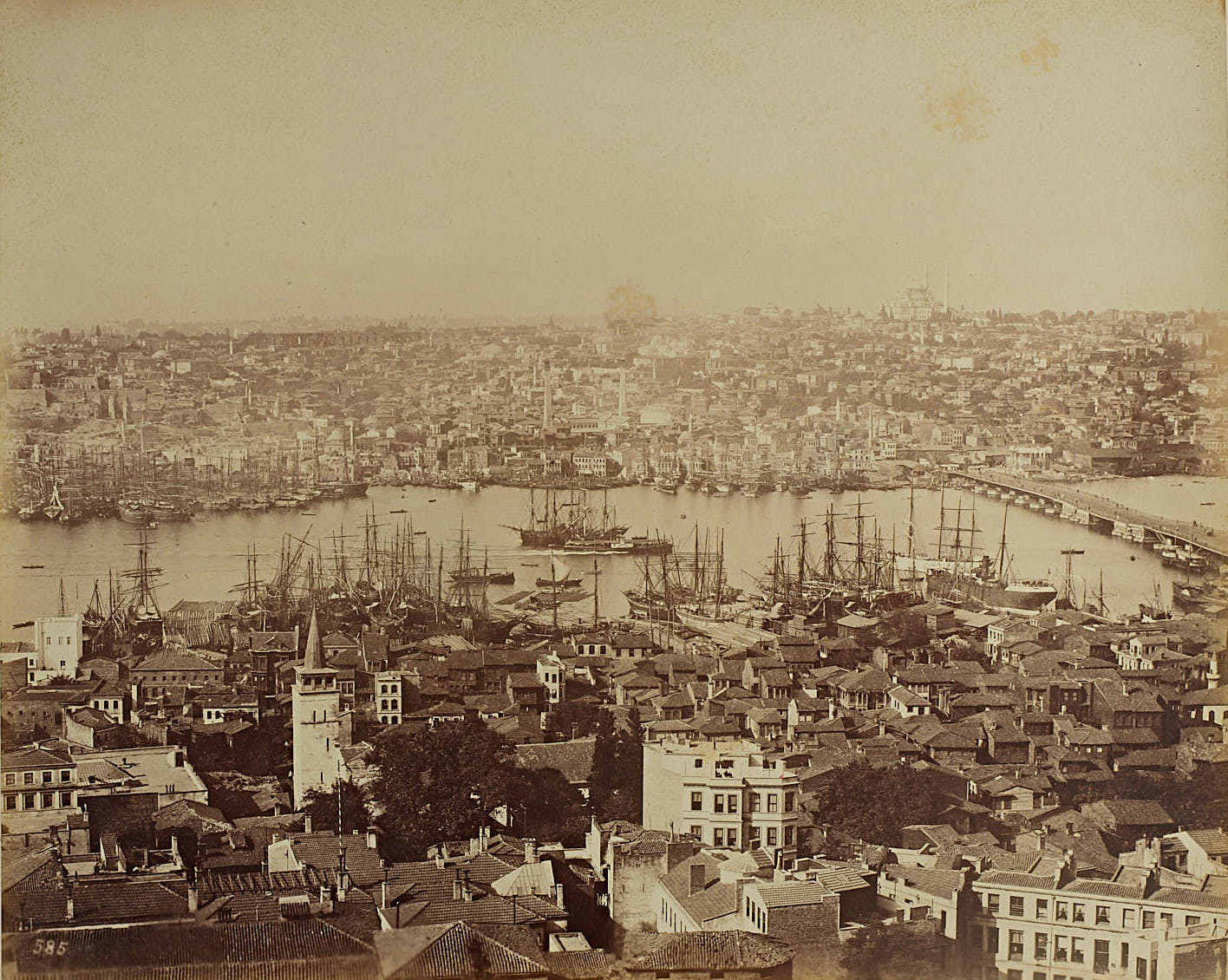
The Old Port of Constantinople, by Abdullah Frères, late 19th century. Photo courtesy of Istanbul Üniversitesi, Nadir Eserler Kütüphanesi
Bahá’u’lláh and His family arrive in Constantinople on August 16, 1863. The baggage and horses are unloaded and the Holy Family settles into the government guest house where they stay for fifteen days. On the ground floor of this inn, there is a pleasant, vast room which ‘Abdu’l-Bahá visits every day.
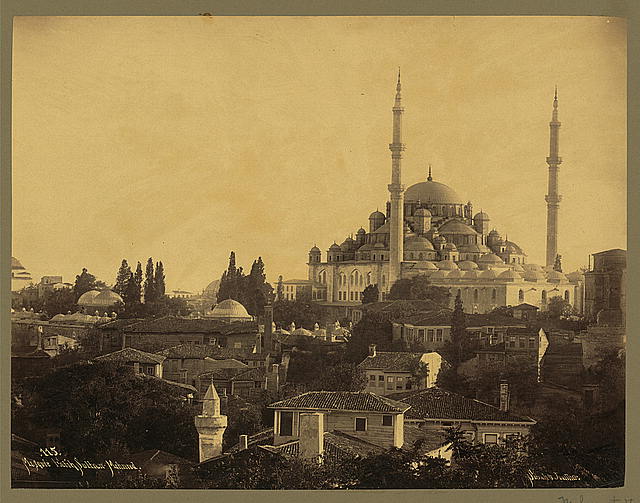
The Fatih Mosque, known in the time of Bahá’u’lláh as the Mosque of Sulṭán Muḥammad, between 1888 and 1910, where Bahá'u'lláh went daily for noon prayer. Sebah & Joaillier, photographer. Wikimedia Commons.
About two weeks after their arrival, the Holy Family moves out of the government apartments into a stately house, which they rent. During His sojourn in Istanbul, Bahá'u'lláh visits the Mosque of Sulṭán Muḥammad for the noonday prayer. This mosque is now called the Fatih Mosque, after Sultan Mehmed II, also known as Fatih, the Father of Conquests). In Istanbul, Bahá'u'lláh calls on no one, but visits the mosque and the bathhouse. People come to Bahá'u'lláh and He converses with them.
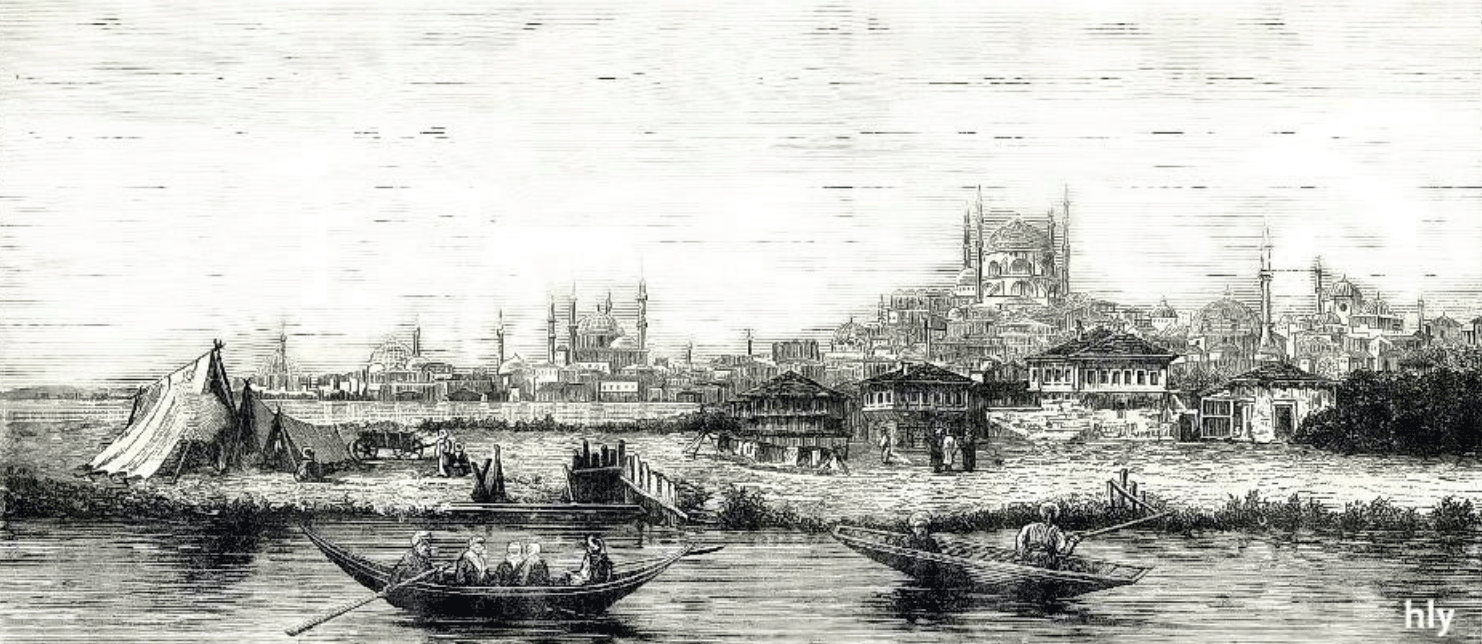
Edirne, 1880. Andrianou Personal Blog.
Four months later, the Ottoman Government informs the Holy Family they are to be banished a third time, to Adrianople (now Edirne) in the middle of winter.
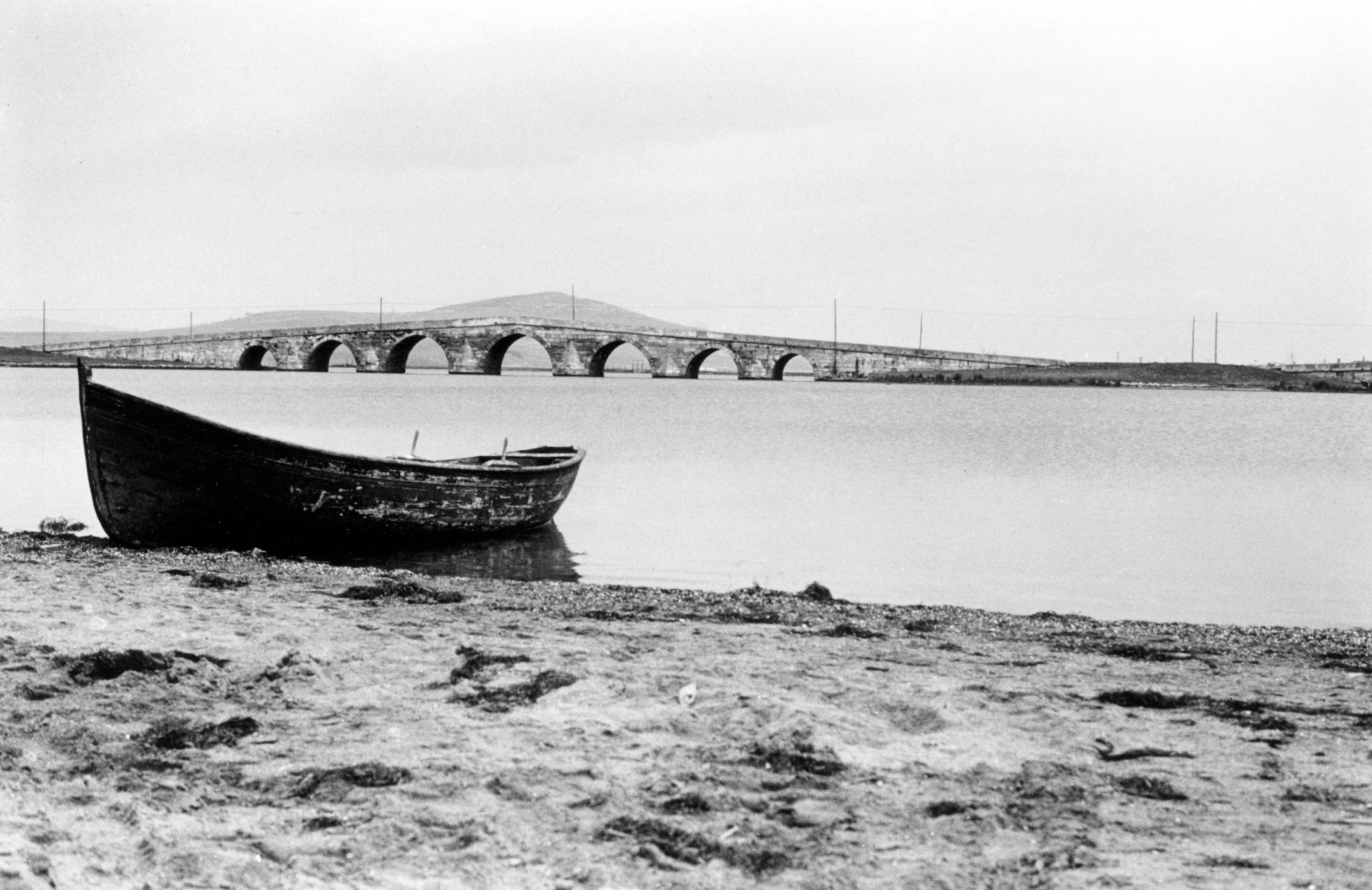
The bridge at Büyükçekmece, Turkey, which Bahá’u’lláh and His companions crossed on their way from Constantinople to Adrianople in December 1863. Bahá'í Media Bank.
The arduous journey to Adrianople lasts 12 days and takes place during the coldest winter in 40 years. ‘Abdu’l-Bahá’s feet are once again frozen during this ordeal, to the cruelty of which Bahá’u’lláh Himself testifies in heartbreaking detail in the Súriy-i-Mulúk:
Know, then, that We came unto thy city at thine own behest, and entered therein with conspicuous honour. They expelled Us, however, from thy city with an abasement with which no abasement on earth can compare, if thou be of them that are well-informed. They made Us journey until We reached the place [Adrianople] which none entereth except such as have rebelled against the authority of the sovereign, and as are numbered with the transgressors. All this, notwithstanding that We had never disobeyed thee, though it be for a single moment, for when We heard thy bidding We observed it and submitted to thy will. In dealing with Us, however, thy ministers neither honoured the standards of God and His commandments, nor heeded that which hath been revealed to the Prophets and Messengers. They showed Us no mercy and committed against Us that which no one among the faithful hath ever wrought against his fellow, nor any believer inflicted upon an infidel. God knoweth and is a witness unto the truth of Our words.
When they expelled Us from thy city, they placed Us in such conveyances as the people use to carry baggage and the like. Such was the treatment We received at their hands, shouldst thou wish to know the truth. Thus were We sent away, and thus were We brought to the city which they regard as the abode of rebels. Upon our arrival, We could find no house in which to dwell, and perforce resided in a place where none would enter save the most indigent stranger. There We lodged for a time, after which, suffering increasingly from the confined space, We sought and rented houses which by reason of the extreme cold had been vacated by their occupants. Thus in the depth of winter we were constrained to make our abode in houses wherein none dwell except in the heat of summer. Neither My family, nor those who accompanied Me, had the necessary raiment to protect them from the cold in that freezing weather.
(…) By the righteousness of God! The tribulations We have sustained are such that any pen that recounteth them cannot but be overwhelmed with anguish. No one of them that truly believe and uphold the unity of God can bear the burden of their recital. So great have been Our sufferings that even the eyes of Our enemies have wept over Us, and beyond them those of every discerning person.
Bahá'u'lláh - The Summons of the Lord of Hosts
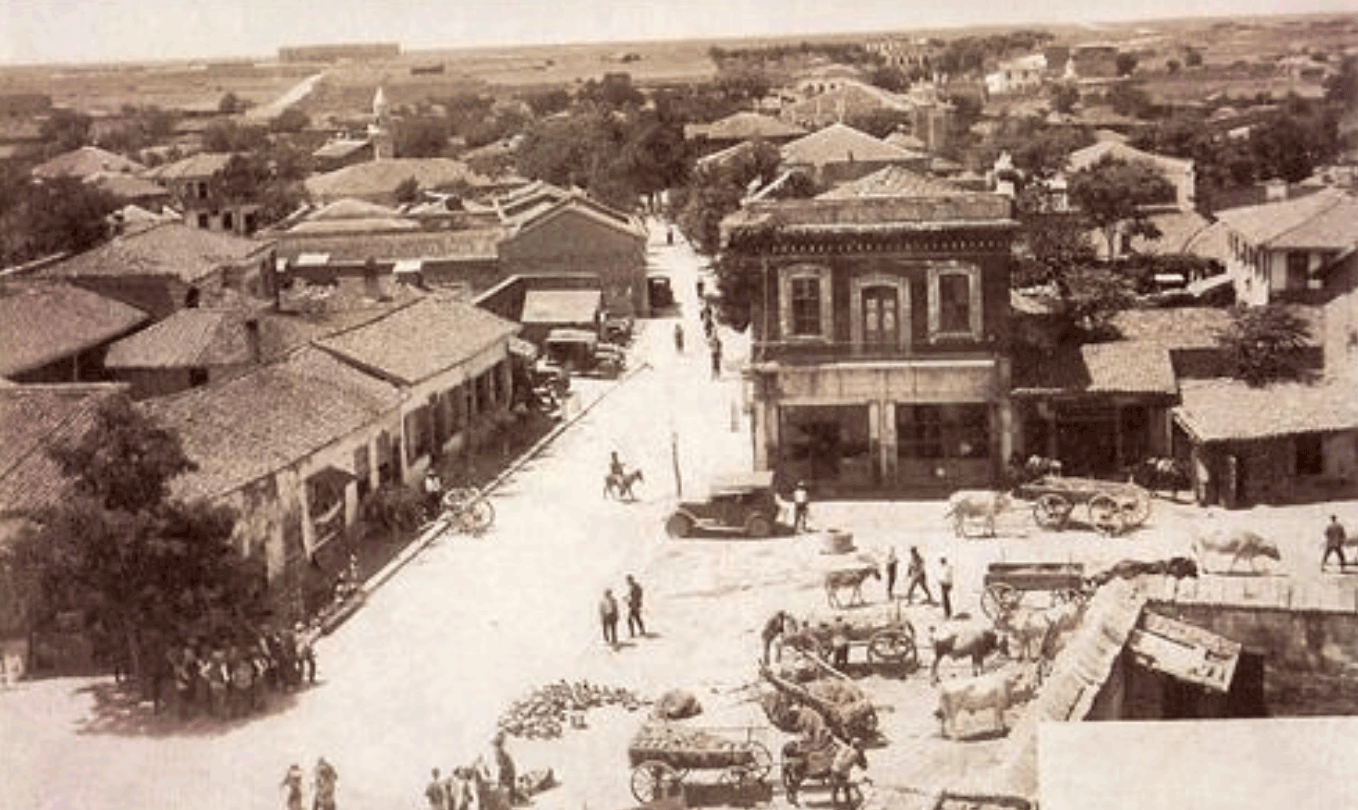
Bábá Ískí (Babaeski), Turkey in the 1930s, one of the stops in the journey from Constantinople to Adrianople, mentioned by Shoghi Effendi in God Passes By. Kendingez Website.
Remembering this inhumane journey, Bahíyyih Khánum states:
The journey to Adrianople (…) was the most terrible experience of travel thus far had. It was the beginning of winter, and very cold; heavy snow fell most of the time; and destitute as we were of proper clothing or food, it was a miracle that we survived it. We arrived at Adrianople all sick—even the young and strong. My brother again had his feet frozen on this journey.
Phelps, Myron H. The Master in 'Akká.
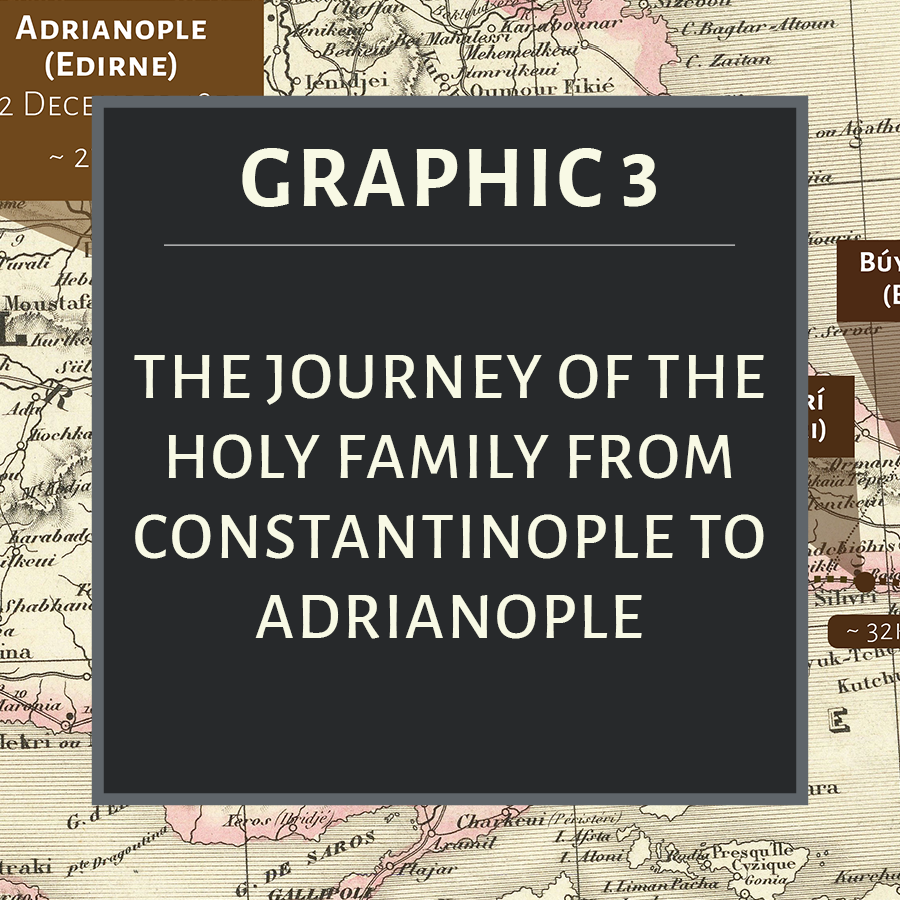
Map of the journey of the Holy Family from Constantinople to Adrianople based on the place names mentioned by Shoghi Effendi in God Passes By, page 161. Original graphic by Violetta Zein. Base map: 1865 map of “Turquie d’Europe” (European Turkey) by Adolphe Hippolyte Dufour. Wikimedia Commons.
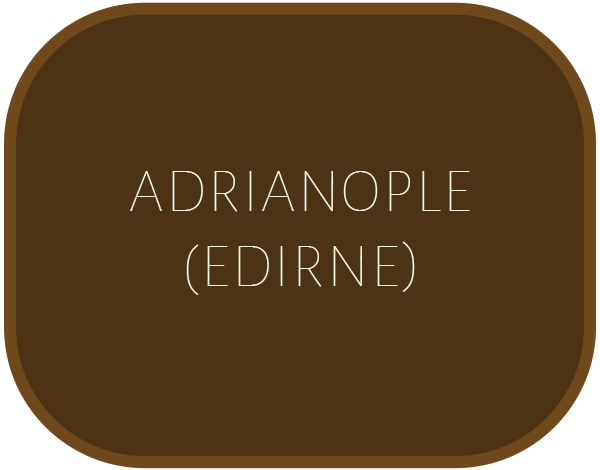
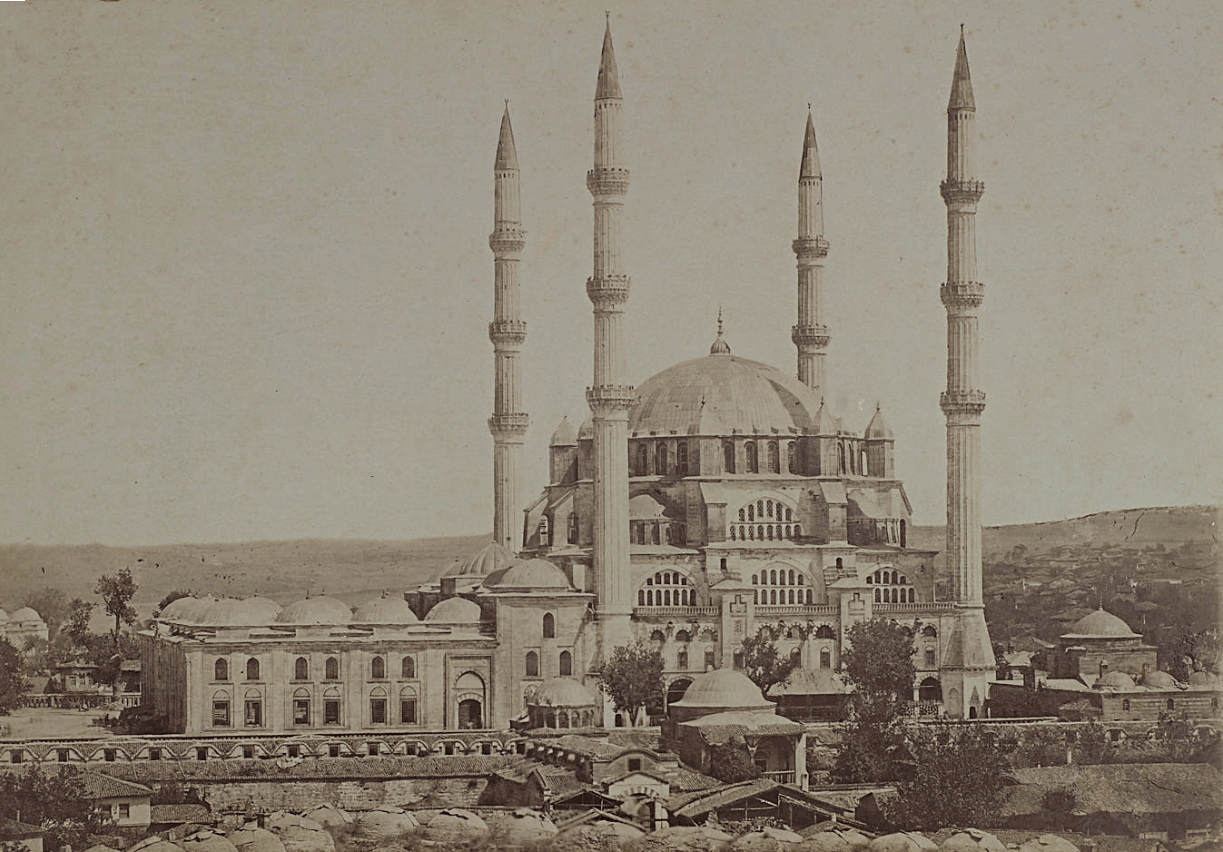
The Mosque of Sultán Salím, across from which is the House of Bahá'u'lláh. The mosque is now known as Selimiye Mosque. Photograph by D. Michaïlides, courtesy of Istanbul Üniversitesi, Nadir Eserler Kütüphanesi.
The exiles’ first three days are spent in a caravanserai outside Adrianople. After being moved into a summer house, unsuited for the bitter winter, they are moved again. The Greatest Holy Leaf remembers early nights in Adrianople when the vermin would make it impossible for anyone to sleep, 'Abdu'l-Bahá lights a lamp, which scares the critters away, and tries to lift His family’s spirits by singing and laughing. Three houses are rented, one for Bahá'u'lláh, another one for the friends, and a third house for Mírzá Músá. The horses are brought to the house of the believers, as it is equipped with a stable. No one in the Family has proper winter clothing, and the weather is so icy that the town’s springs all freeze over. Bahá'u'lláh remains in the house until Spring. During this time, 'Abdu'l-Bahá visits the believers every day at noon and one day informs them Bahá'u'lláh directs them to find a larger house so that they can be together. After a long search, a suitably spacious house is found across from the Mosque of Sultán Salím.
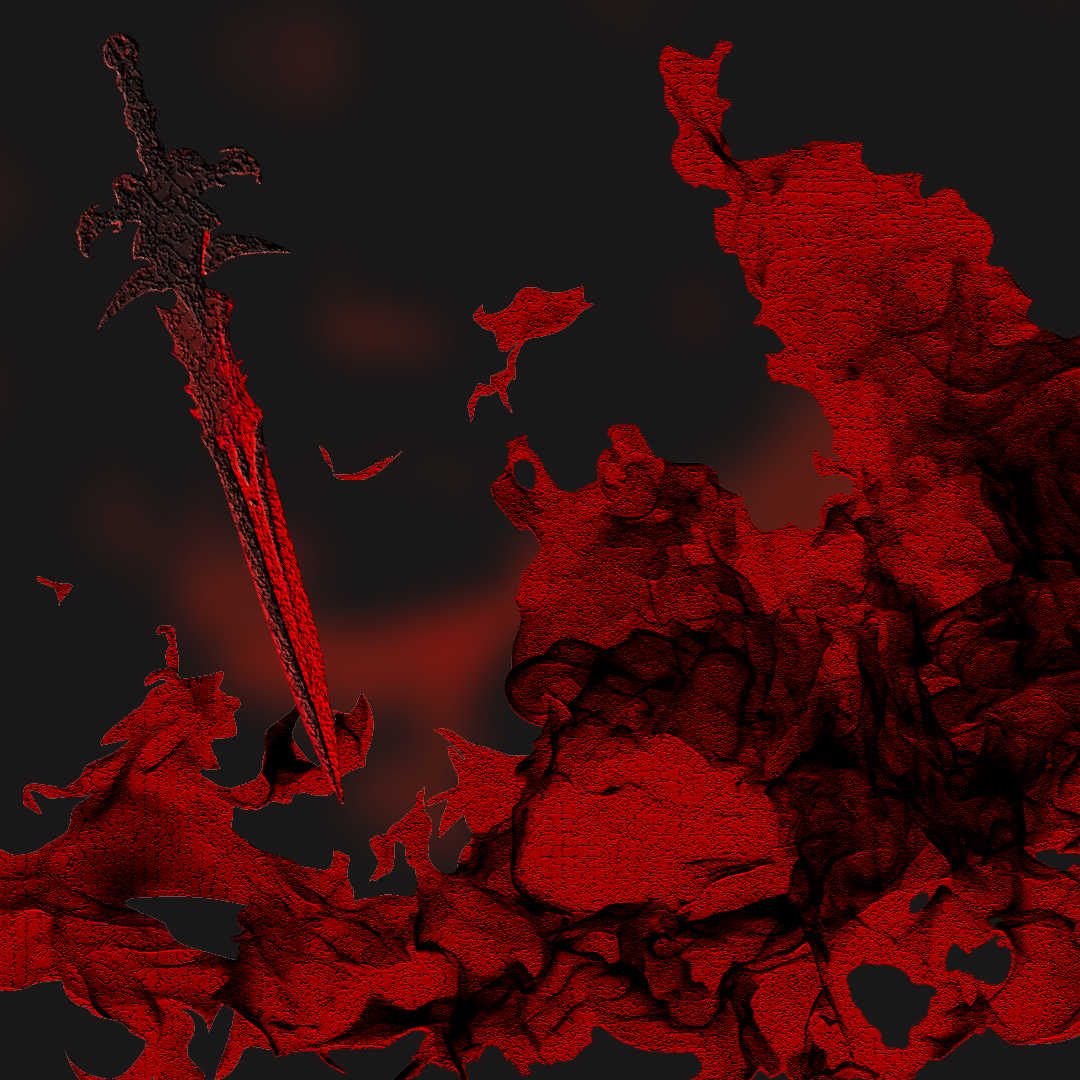
Assassination attempt. © Violetta Zein.
The scheming of the covenant-breakers intensifies until Mirza Yahya attempts to assassinate Bahá'u'lláh by poisoning Him. Shoghi Effendi leaves us with this potent description of their treason:
(...) the monstrous behavior of Mírzá Yaḥyá, one of the half-brothers of Bahá’u’lláh, the nominee of the Báb, and recognized chief of the Bábí community, brought in its wake a period of travail which left its mark on the fortunes of the Faith for no less than half a century
Shoghi Effendi, God Passes By
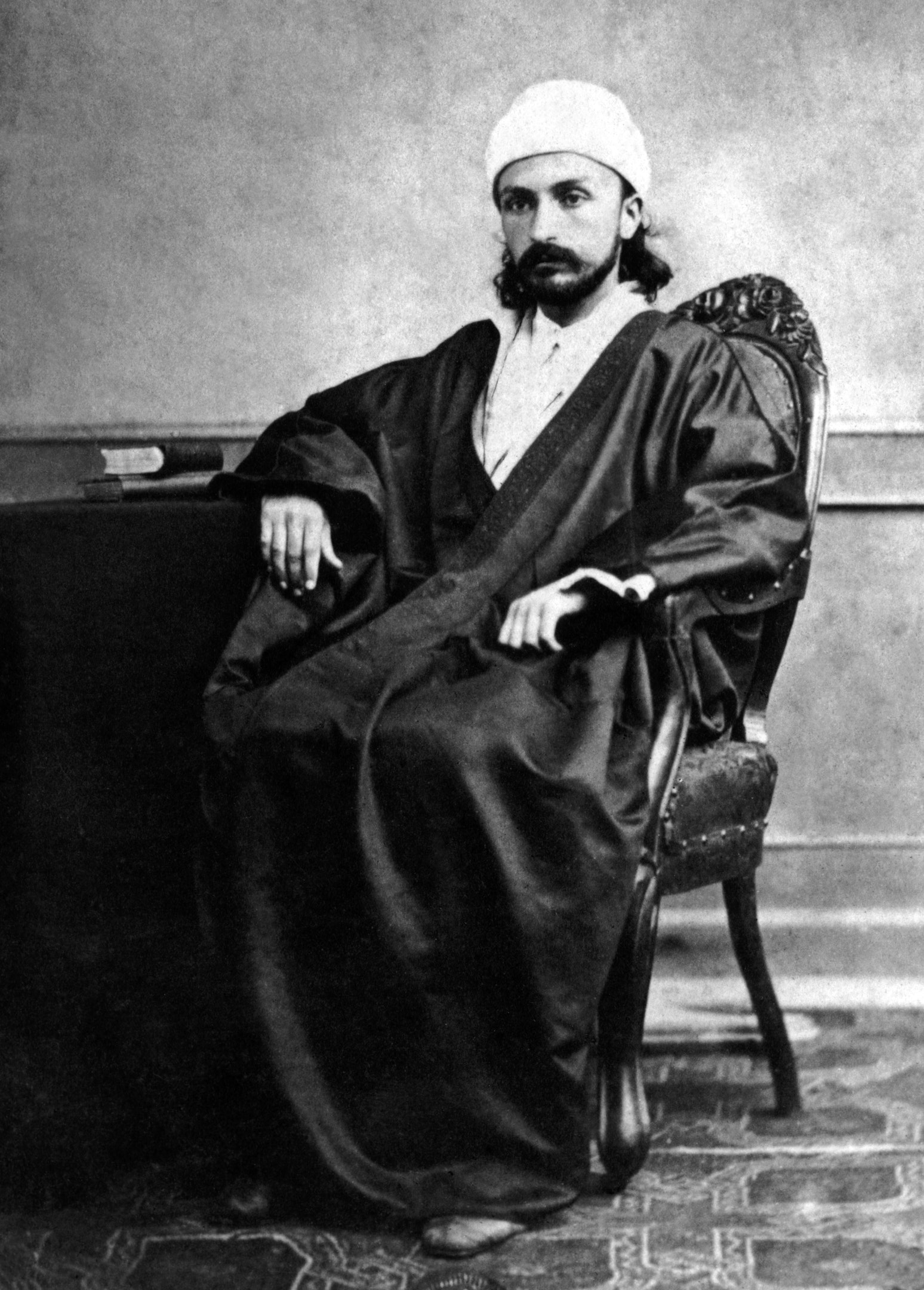
Portrait of ‘Abdu’l-Bahá in Adrianople, c. 1868. Bahá'í Media Bank.
It is in Adrianople that ‘Abdu’l-Bahá enters adulthood. He is now known by the believers almost exclusively as “the Master” (sarkár áqá), and by the general population as ‘Abbás Effendí (“Effendí” meaning “Sir”). According to the Greatest Holy Leaf, during the Adrianople years, as has, in fact, been the case for several years, ‘Abdu’l-Bahá becomes the “chief dependance and comfort of the entire family.” She continues with a beautiful description of 'Abdu'l-Bahá in His mid-twenties:
He had from childhood a remarkable self-sacrificing nature, habitually yielding his own wishes and giving up whatever he had to his brothers and sisters, keeping nothing for himself. He was always gentle; never became angry and never retaliated. The life we were living afforded constantly recurring occasions for the exhibition of these qualities of his character; and his unceasing efforts did a great deal to make its conditions endurable for the other members of the family. For the poor also he had been very tender-hearted, and destitute as we were, he always contrived to find something to give to others who were in greater want.
Phelps, Myron H. The Master in 'Akká Kalimát Press, 1985
During these four years in Adrianople, 'Abdu'l-Bahá learns to speak fluent Turkish. He endears Himself to everyone, high and low alike, Bahá'ís, Bábís, Muslims and others. He teaches everyone, and is widely known as “The Master.” Among His friends is the Governor of Adrianople who enjoys 'Abdu'l-Bahá’s religious discourses, and frequently invites the Master to his palace. At times when 'Abdu'l-Bahá cannot visit him, the Governor comes to 'Abdu'l-Bahá. When he receives the order for a banishment to ‘Akká, the Governor, so affected by this news, is unable to deliver the news in person, gives it to his subordinates, writes a letter of apology to 'Abdu'l-Bahá, and leaves the city temporarily, stating “I cannot see this dreadful thing happen.”
In the earliest photographs we have of Him from His time in Adrianople, we see a noble young man with fine features and jet- black hair.
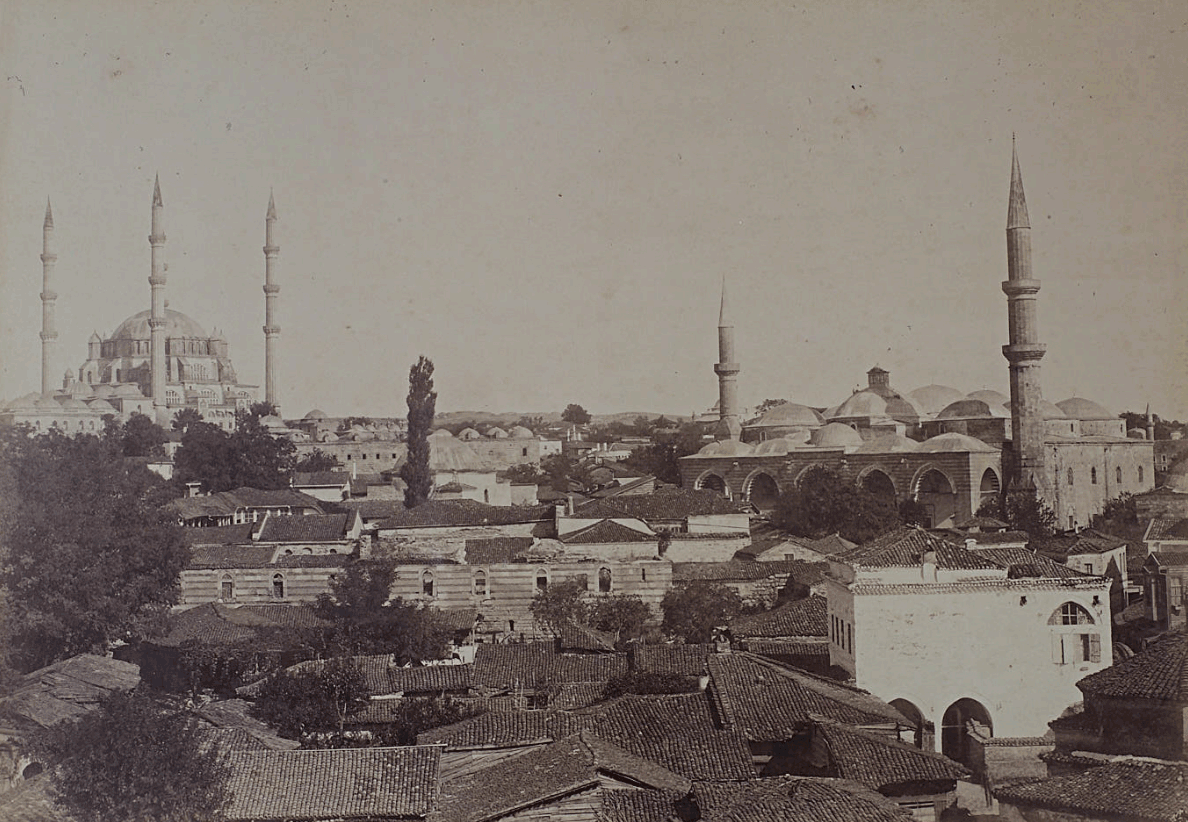
Another view of the Mosque of Sultán Salím (Selimiye Mosque) where you can see a neighborhood of Adrianople around the mosque. Photograph by D. Michaïlides, courtesy of Istanbul Üniversitesi, Nadir Eserler Kütüphanesi.
It is during this time that Bahá’u’lláh begins to unveil the unique station of ‘Abdu’l-Bahá. The most emphatic statement Bahá’u’lláh makes at this time about that station is the Súriy-i-Ghuṣn (Tablet of the Branch):
There hath branched from the Sadratu’l-Muntahá this sacred and glorious Being, this Branch of Holiness; well is it with him that hath sought His shelter and abideth beneath His shadow. Verily the Limb of the Law of God hath sprung forth from this Root which God hath firmly implanted in the Ground of His Will, and Whose Branch hath been so uplifted as to encompass the whole of creation. Magnified be He, therefore, for this sublime, this blessed, this mighty, this exalted Handiwork! (…) Render thanks unto God, O people, for His appearance; for verily He is the most great Favour unto you, the most perfect bounty upon you; and through Him every mouldering bone is quickened.
Bahá'u'lláh - Súriy-i-Ghuṣn
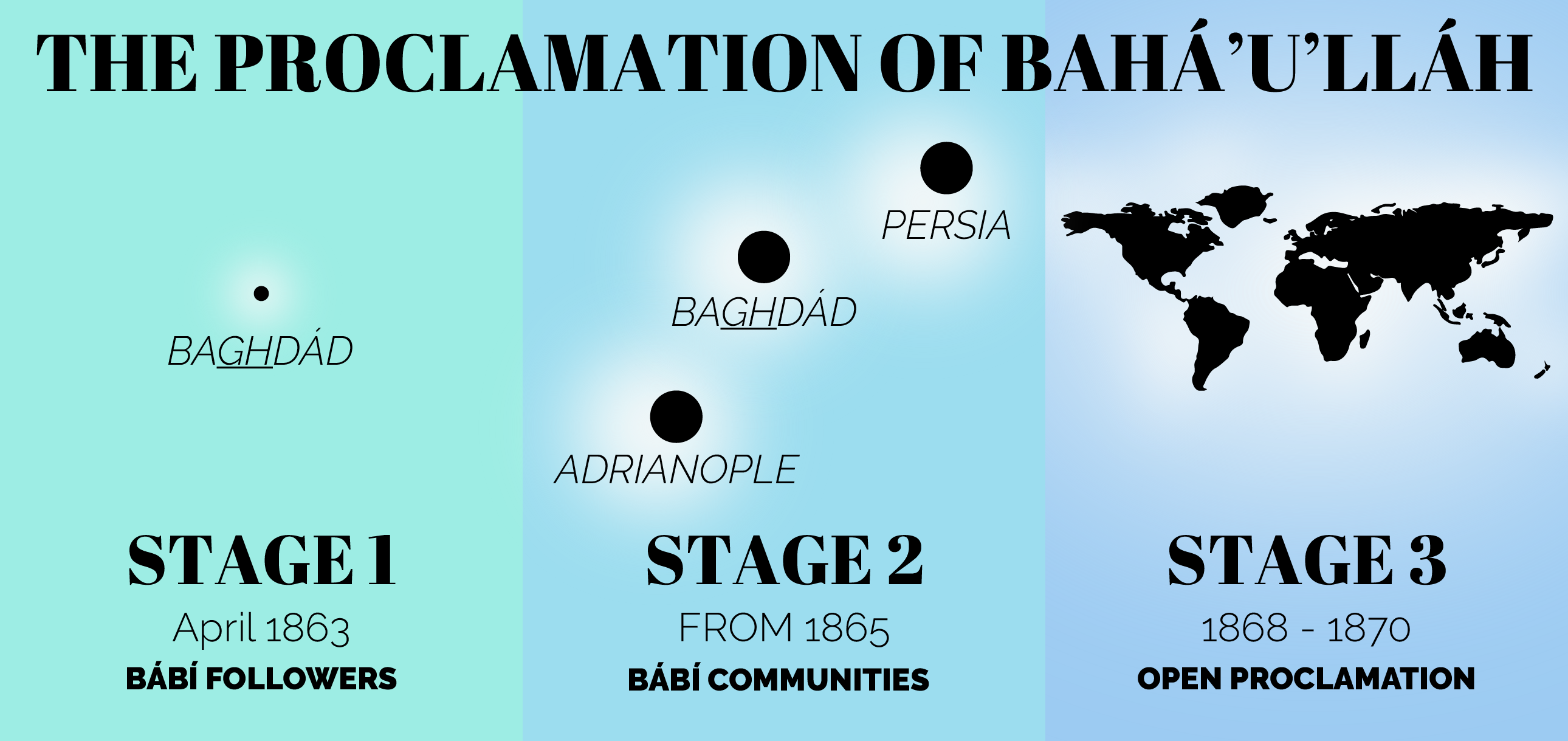
The three stages of the Proclamation of Bahá'u'lláh, from Adib Taherzadeh, The Revelation of Bahá'u'lláh Volume 2, pages 301-303. © Violetta Zein.
The four years in Adrianople are fruitful years despite the machinations of the Covenant-Breakers. Bahá'u'lláh publicly proclaims His mission to the world, and an unprecedented stream of significant Tablets are revealed during this time. 'Abdu'l-Bahá is occupied, day and night, in transcribing these Tablets during the four years in Adrianople. In Adib Taherzadeh's majestic Revelation of Bahá'u'lláh Volume II: Adrianople (1863 - 1868), we can glean, from the table of contents, a partial list of some of the works revealed by Bahá'u'lláh during this period, which 'Abdu'l-Bahá would have been transcribing:
The Súriy-i-Aṣḥáb
The Lawḥ-i-Aḥmad (Persian)
The Lawḥ-i-Bahá
The Lawḥ-i-Rúḥ
The Lawḥ-i-Laylatu'l-Quds
The Súriy-I-Damm
The Súrihs of Ḥajj
The Lawḥ-i-Naṣír
The Lawḥ-i-Khalíl
The Lawḥ-i-Siráj
The Súriy-i-‘Ibád
The First Tablet To Napoleon III
The Kitáb-I-Badí’
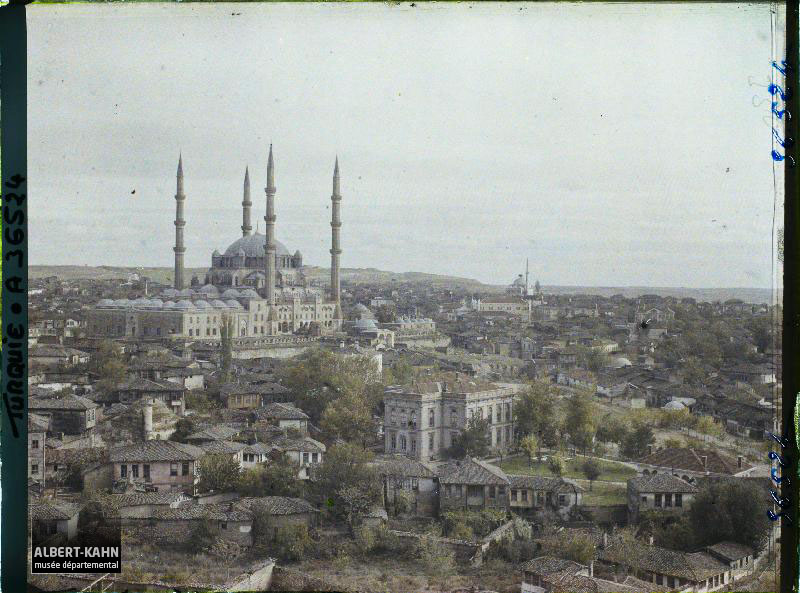
1922 Panorama of the city of Erdine and view of the Selimiye Mosque. Photographer: Frédéric Gadmer, Source: Archives de la Planète - Collection Albert Kahn.
Sometime between the ages of 19 and 24, ‘Abdu’l-Bahá composes an extraordinary 11,000-word commentary on the sacred Hadíth “I was a Hidden Treasure” for a Ṣúfí leader at the request of His father. The work is considered a tour de force, demonstrating profound knowledge, understanding, and mastery of language. It is also the very first major work we have by 'Abdu'l-Bahá.
As the conclusion of His masterful work, 'Abdu'l-Bahá reveals a prayer “O Lord so rich in bounty,” which is, in fact, a prayer-poem originally written in the form of rhyming couplets. The authorized English translation, gifted to us in 2021 by the Research Department of the Universal House of Justice, uses almost exactly the same rhyme scheme as the original Persian.
To listen to this beautiful prayer-poem in the original Persian with English subtitles, click on the graphic below:
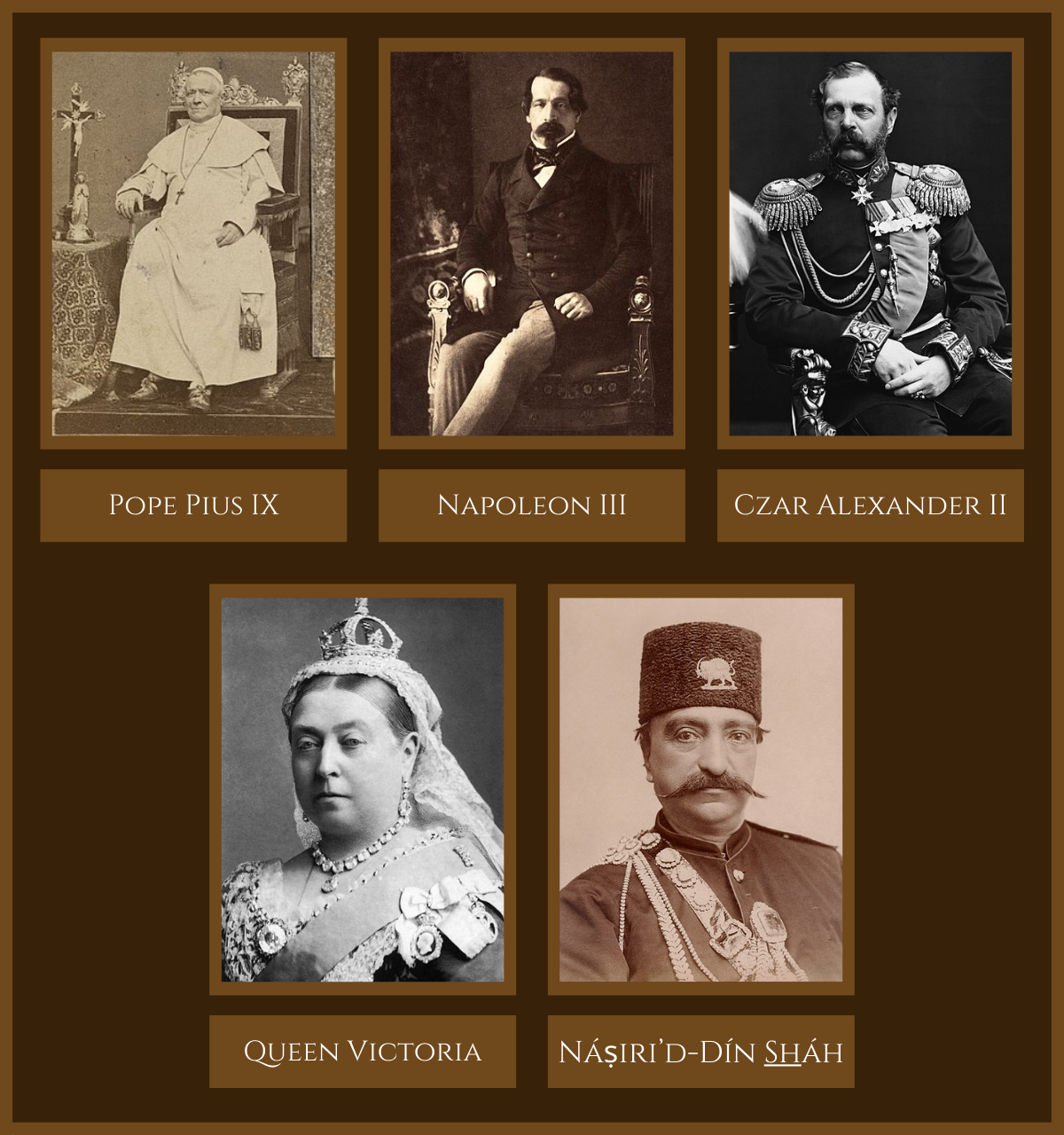
Top row, left to right: Pope Pius IX. Fratelli d’Alessandri Studio. Wikimedia Commons. Napoleon III. Gustave Le Gray. Wikimedia Commons Czar Alexander II. Unknown author. Wikimedia Commons. Bottom row: Queen Victoria. Alexander Bassano. Wikimedia Commons. Náṣiri’d-Dín Sháh. Nadar. Wikimedia Commons.
Bahá’u’lláh publicly proclaims His mission to monarchs and leaders of the world from Europe to Asia in a series of six Tablets, the Súriy-i-Haykal (Tablet of the Temple) and five tablets to monarchs of Europe and Asia. After His proclamation, Bahá’u’lláh withdraws from the general public.
The Proclamation of Bahá'u'lláh
Tablet to Pope Pius IX (Lawḥ-i-Páp)
Tablet to Napoleon III (Lawḥ-i-Napulyún III)
Tablet to Czar Alexander II (Lawḥ-i-Malik-i-Rús)
Tablet to Queen Victoria (Lawḥ-i-Malikih)
Tablet to Náṣiri’d-Dín Sháh (Lawḥ-i-Sulṭán)

These two pages contain the last fifth of Baháʼuʼlláh's Tablet to Czar Alexander II and the first fifth of the Tablet to Queen Victoria. The two Tablets appear back-to-back in the Súriy-i-Haykal. British Library. Baha'u'llah's letter to Queen Victoria, published in Alwāḥ (‘Tablets’) by Baha’u’llah Published in 1893 in Bombay, now Mumbai.
It is important to remember that this takes place only two years after Bahá’u’lláh was poisoned by Mírzá Yaḥyá, His treacherous half-brother. The attempt nearly cost Bahá’u’lláh His life. He was severely ill for one month, but the poisoning left Bahá’u’lláh with a shaking hand to the end of His life. These circumstances lead to an increased prominence in ‘Abdu’l-Bahá’s role during the subsequent stages of the family’s banishment. Bahá’u’lláh now leaves ‘Abdu’l-Bahá to manage the affairs of the family and of the Bahá’í exiles. ‘Abdu’l-Bahá becomes His father’s representative in all matters except those internal to the Bahá’í community. He has already become this man, so eloquently and vividly described by Edward Granville Browne of Cambridge University thirteen years later in ‘Akká, when He meets Bahá’u’lláh:
One more eloquent of speech, more ready of argument, more apt of illustration, more intimately acquainted with the sacred books of the Jews, the Christians, and the Muhammadans, could, I should think, scarcely be found even amongst the eloquent, ready, and subtle race to which he belongs. These qualities, combined with a bearing at once majestic and genial, made me cease to wonder at the influence and esteem which he enjoyed even beyond the circle of his father’s followers.
Edward Granville Browne, A Traveller's Narrative, Volume 2
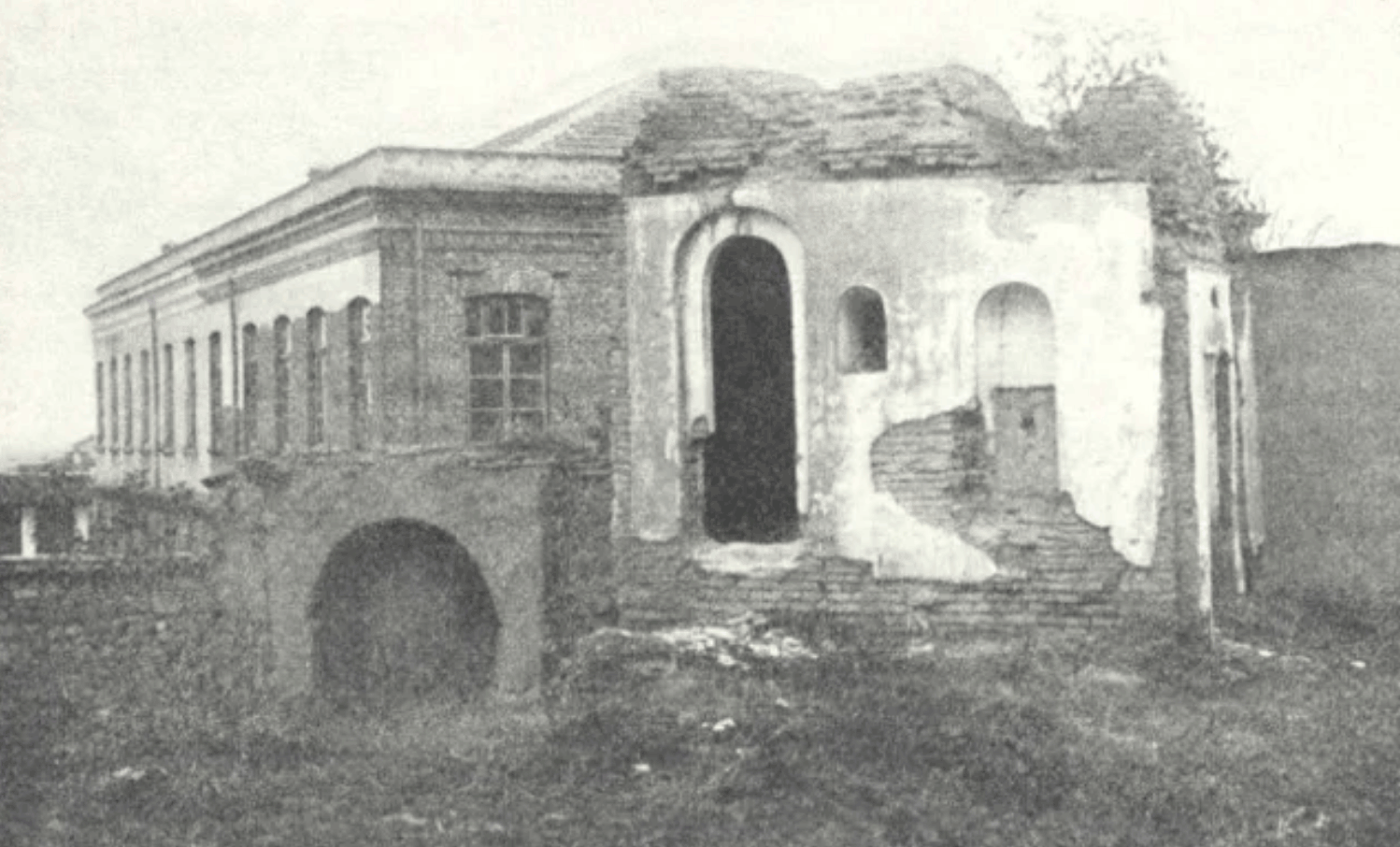
This photo from October 1933 shows the ruins of the House of ‘Izzat Aqa in Edirne, Turkey, the final home of Baha’u’llah in the city. Bahá'í World News Service.
In late summer 1868, the Sulṭán further banishes Bahá’u’lláh to the Ottoman penal colony of ‘Akká (Acre). The Governor of Adrianople is reluctant to tell Bahá’u’lláh that the order has come for still another banishment. He explains this to 'Abdu'l-Bahá and the Family is informed they have three days to prepare for a journey to ‘Akká. It is then they learn they are to be separated: Bahá'u'lláh is to be exiled to one place, 'Abdu'l-Bahá to another, and the believers to a third destination. The Greatest Holy Leaf describes that time:
Here the friends crowded, weeping and wailing, refusing to be comforted. They determined to resist the separation; great was the tumult. Many telegrams were sent to the Government at Constantinople. At length we all started together on the journey to Gallipoli, and in three days we arrived, having travelled in carts and wagons. Here the Governor announced that he had received orders for our separation. He came to see Bahá’u’lláh and the Master, and becoming friendly, he tried to help us in our distress. Again many telegrams were sent to Constantinople; we stayed for a week waiting for the replies. At last permission was given for us all to embark together in a Turkish boat.
Lady Blomfield, The Chosen Highway.
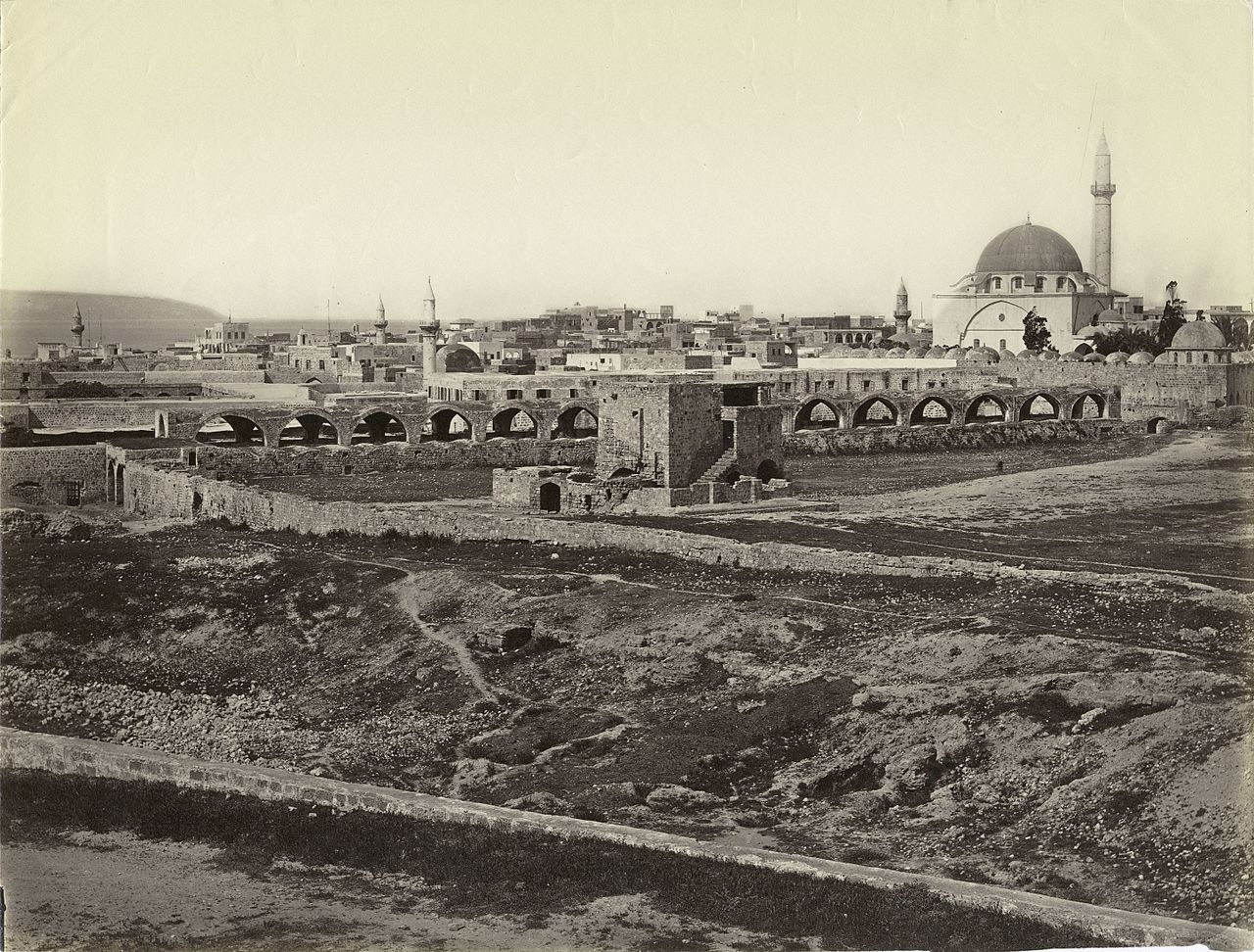
‘Akká, Palestine between 1873 and 1878. Wikimedia Commons.
In the 1800s, ‘Akká is the final destination for the most notorious murderers, highway robbers, and political enemies of the Ottoman regime. A walled city of filthy streets and damp, desolate houses, ‘Akká has no source of fresh water, and its air is exceedingly foul. It was the vain hope of the authorities that Bahá’u’lláh—along with His family, His companions, and His Faith—would all quickly perish in this prison-city. Shoghi Effendi provides us, courtesy of 'Abdu'l-Bahá with an illuminating perspective on the exiles of Bahá'u'lláh.
‘Abdu’l‑Bahá, after enumerating in His “Some Answered Questions” the far-reaching consequences of Abraham’s banishment, significantly affirms that “since the exile of Abraham from Ur to Aleppo in Syria produced this result, we must consider what will be the effect of the exile of Bahá’u’lláh in His several removes from Tihrán to Baghdád, from thence to Constantinople, to Rumelia and to the Holy Land.”
'Abdu'l-Bahá cited in God Passes By
References for Part I
That same night: Shíráz and Ṭihrán
Time of ‘Abdu’l-Bahá’s birth: Balyuzi, H.M. ‘Abdu’l-Bahá: The Centre of the Covenant of Bahá’u’lláh. George Ronald; First Published edition. January 1, 1971.
Detail about ‘Abdu’l-Bahá being the third child: “During the first decade of her marriage, Ásíyih Khánum bore three children: Káẓim, Mihdí and ‘Abbás. The first two died in infancy.” from Maani, Baharieh Rouhani. Leaves of the Twin Divine Trees: an in-depth study of the lives of women closely related to the Báb and Baháʼuʼlláh. Oxford: George Ronald, 2008.
The story about the first Telegraph message: The Electrical Engineer. The First Telegraph Message and its Author. New York, NY, United States, Wednesday, August 19, 1891 vol. 12, no. 172, p. 201-202, col. 1-2. https://reference.insulators.info/publications/view/?id=5436 and Library of Congress. Today in History – May 24. https://www.loc.gov/item/today-in-history/may-24/
The scroll from the Báb: The Dawn-Breakers.
Ṭihrán and Mázindarán
The story of the sheep: Star of the West, Volume XIII, No. 10, pp. 271–72. From the Diary of Ahmad Sohrab, Written in Palestine During the Great War III (A Story of Abdul Baha). Chicago: Bahá’í News Service, 1922-1923. January 1923 and Star of the West, Volume XV, No. 3, p. 74. Jinab-i-Fadil. The Divine Servant – The life of ‘Abdu’l-Bahá. Chicago: Bahá’í News Service, 1924-1925. June 1924.
The story of the mission to the General of the Persian Army: For the story of the mission, see Sohrab, Mirza Ahmad. Unpublished Diary Letters, July 1913 to October 1914. Part 13, page 32. https://bahai-library.com/pdf/s/sohrab_diary_letters_1913-1914_13.pdf
The story about Táhirih: Blomfield, Lady. The Chosen Highway.London: Baháʼí Publishing Trust, 1940 RP Oxford: George Ronald, 2007.
Bahá’u’lláh is bastinadoed and chained in the streets: Bahá’u’lláh being in Afchih when the attempt on the life of the Sháh is made is from God Passes By. Other details from Furútan, ‘Alí-Akbar. Stories of Bahá’u’lláh. George Ronald. 1986 and Lady Blomfield. The Chosen Highway. London: Baháʼí Publishing Trust, 1940 RP Oxford: George Ronald, 2007.
The story about ‘Abdu’l-Bahá surrounded by a mob and details of the Holy Family’s life: For the story of the ruffians: The Dawn-Breakers, p. 616. and for the story of the Holy Family’s gold buttons, Phelps, Myron H. The Master in ‘Akká.
The story of ‘Abdu’l-Bahá visiting the Siyáh-Chál: Balyuzi, H.M. ‘Abdu’l-Bahá: The Centre of the Covenant of Bahá’u’lláh. George Ronald; First Published edition. January 1, 1971 and 239 Days Website.
The story about Bahá’ú’lláh recovering: Taherzadeh, Adib. The Revelation of Bahá’u’lláh, Volume 1 (Baghdád, 1853–1863). George Ronald, June 1, 1975.
Navváb being pregnant during their banishment from Ṭihrán: Blomfield, Lady. The Chosen Highway.London: Baháʼí Publishing Trust, 1940 RP Oxford: George Ronald, 2007.
Baghdád
he Journey to Baghdád: details from Phelps, Myron H. The Master in ‘Akká. Kalimát Press, 1985.
‘Abdu’l-Bahá intuitively recognizes the Station of Bahá’u’lláh: Esslemont, J. E. Bahá’u’lláh and the New Era: An Introduction to the Bahai Faith. Baháʹí Publishing Trust; 4th edition, January 1, 1980.
The details about Bahá’u’lláh’s retreat to Kurdistan: Shoghi Effendi. God Passes By.
The statement by ‘Abdu’l-Bahá that “grief and loneliness so consumed His soul that He had in His boyhood grown old“: Furútan, ‘Alí-Akbar. Stories of Bahá’u’lláh. George Ronald. 1986.
A Sorrowful ‘Abdu’l-Bahá: Esslemont, J. E. Bahá’u’lláh and the New Era: An Introduction to the Bahai Faith. Baháʹí Publishing Trust; 4th edition, January 1, 1980.
The story about the newspaper: Graciously shared by Earl Redman from his historical research. Redman, Earl. The Apostles of Bahá’u’lláh and the Disciples of ‘Abdu’l-Bahá. George Ronald, forthcoming.
Bahá’u’lláh’s return from Kurdistán: Lady Blomfield, The Chosen Highway, pp. 53-54, and Shoghi Effendi, God Passes By, p. 133.
The story about ‘Abdu’l-Bahá having reached the age of maturity: Esslemont, J. E.Bahá’u’lláh and the New Era: An Introduction to the Bahai Faith. Baháʹí Publishing Trust; 4th edition, January 1, 1980.
‘Abdu’l-Bahá in Baghdád: Esslemont, J. E. Bahá’u’lláh and the New Era: An Introduction to the Bahai Faith. Baháʹí Publishing Trust; 4th edition, January 1, 1980.
The story about the Burnt Cake: Juliet Thompson’s diary entry for August 31, 1911. Thompson, Juliet and Marzieh Gail. The Diary of Juliet Thompson. U.S.: Kalimát Press, 1983.
‘Abdu’l-Bahá’s Superhuman Knowledge: Nabíl quoted in Furútan, ‘Alí-Akbar. Stories of Bahá’u’lláh. George Ronald. 1986.
The “Create in Me a Pure Heart” story: Furútan, ‘Alí-Akbar. Stories of Bahá’u’lláh. George Ronald. 1986.
The Story of Námiq-Páshá entertaining ‘Abdu’l-Bahá and Mírzá Músá: Shoghi Effendi, God Passes By.
The Decree for a New Exile: This section is a fusion of three sources: Momen, Moojan, Bahá’u’lláh, A Short Biography, p. 59, Lady Blomfield, The Chosen Highway, p. 82 and Shoghi Effendi, God Passes By, pp. 148.
The crowds’ reactions to Bahá’u’lláh’s departure from Baghdád: Balyuzi, H.M. Bahá’u’lláh: The King of Glory. George Ronald, April 30, 1991.
Baghdád to Constantinople
The Caravan: Furútan, ‘Alí-Akbar. Stories of Bahá’u’lláh. George Ronald.
The Journey: Furútan, ‘Alí-Akbar. Stories of Bahá’u’lláh. George Ronald and The Diary of Ahmad Sohrab, 26 April 1913, pp. 19-22
‘Abdu’l-Bahá and His horse: Phelps, Myron H. The Master in ‘Akká. Kalimát Press, 1985.
The story of Bahá’u’lláh’s recipe: Phelps, Myron H. The Master in ‘Akká. Kalimát Press, 1985.
The story of the lost mule: Nabíl quoted in Furútan, ‘Alí-Akbar. Stories of Bahá’u’lláh. George Ronald. 1986.
Memories of ‘Abdu’l-Bahá: Star of the West,Volume XIII, No. 10, pp. 277–278. “Exiled From Bagdad: A story from the words of Abdul Baha” by Mirza Ahmad Sohrab.
The story of Harput: Star of the West,Volume XIII, No. 10, pp. 277–278. “Exiled From Bagdad: A story from the words of Abdul Baha” by Mirza Ahmad Sohrab.
Constantinople
Arriving in Constantinople: Furútan, ‘Alí-Akbar. Stories of Bahá’u’lláh. George Ronald. 1986.
Settling in Constantinople: Furútan, ‘Alí-Akbar. Stories of Bahá’u’lláh. George Ronald. 1986.
Adrianople
Bitter Winter: This section is a fusion of our sources, Phelps, Myron H. The Master in ‘Akká Kalimát Press, 1985 (for the story of ‘Abdu’l-Bahá and the lamp), Ustád Muḥammad-‘Aliy-i-Salmání, the Barber My Memories of Bahá’u’lláh. Kalimat Press, 1982. pp 42-43 and Shoghi Effendi, God Passes By, pp. 161-62.
For the section on ‘Abdu’l-Bahá: Phelps, Myron H. The Master in ‘Akká Kalimát Press, 1985
Revelation: Taherzadeh, Adib. The Revelation of Bahá’u’lláh, Volume 2 (Adrianople, 1863–1868). George Ronald; Revised ed., December 12, 1996.
I Was A Hidden Treasure: It is commonly believed that ‘Abdu’l-Bahá wrote the commentary on the Hadith “I was a hidden Treasure” in Baghdád but research by Necati Alkan has brought to light a Tablet of Bahá’u’lláh which clearly states the commentary was written in Adrianople:
Passage from a Tablet of Baháʼuʼlláh published in Safíniy-i-ʻIrfán, vol. 6 (Darmstadt, Germany: ʻAṣr-i-Jadíd, 2003), p. 10, available online here: https://oceanoflights.org/file/Publications-02_06.pdf#page=12. A provisional translation can be found here: https://adibmasumian.com/translations/bh04769/
![]()
